More stories
-
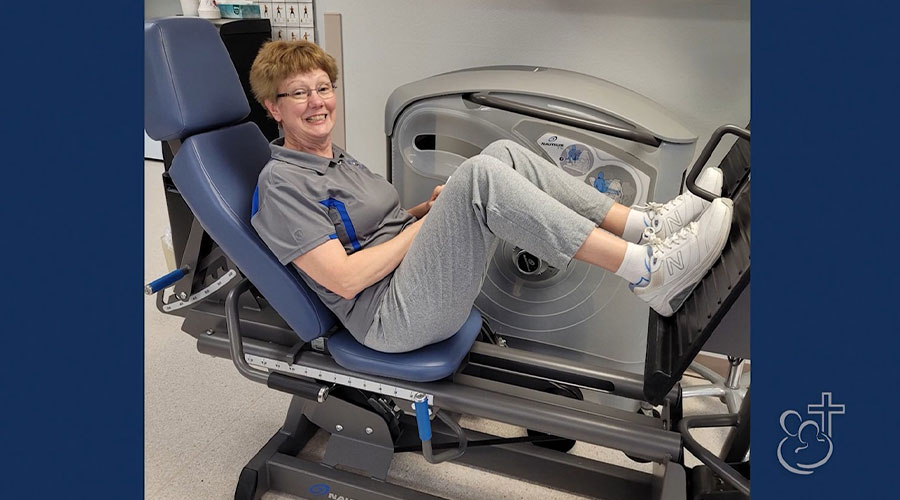 January 10, 2025Watch story
January 10, 2025Watch storyRural Society location is proud to offer rehab therapy to the community
The rehab therapy team at Good Samaritan Society – Bloomfield feels fortunate to be able to offer physical, occupational and speech therapy to their rural Nebraska community. -
 January 07, 2025Watch Story
January 07, 2025Watch StoryMeet a couple who made the move to independent living
The Oppolds moved to Prairie Creek almost two years ago, and they couldn’t be happier with the senior living community and their independent living twin home.
-
 December 30, 2024Watch story
December 30, 2024Watch storyIowa administrator pursues passions as caregiver and coach
Good Samaritan Society and local schools benefit from Joe Bartolo’s leadership.
-
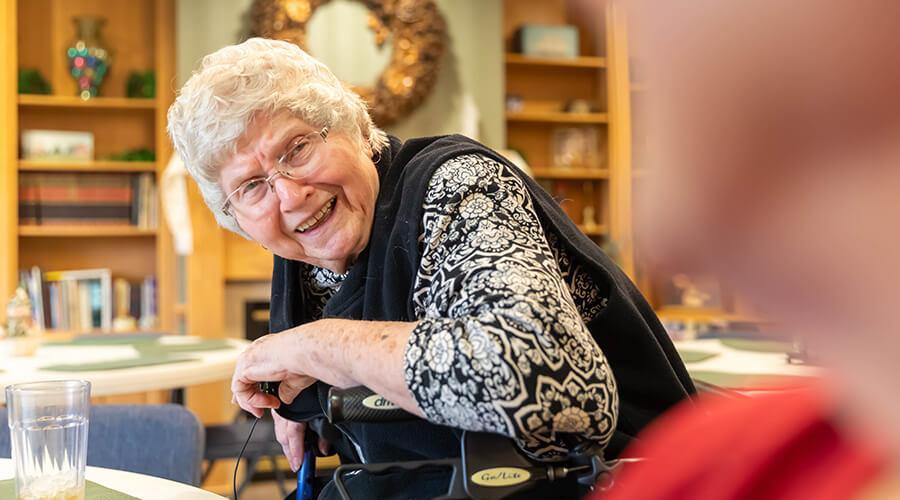 December 16, 2024Watch story
December 16, 2024Watch storySociety residents celebrate Christmas as a family in Iowa
Cooking from all over the country brings friends together when relatives are far away. -
 December 06, 2024Watch story
December 06, 2024Watch storyVirtual and outpatient therapy strengthens stroke survivor
Hurdling through physical therapy at Good Samaritan Society – Waukon in Iowa, stroke survivor Marcia Kruse is turning things around after a scary incident.
-
 November 25, 2024Watch story
November 25, 2024Watch storySpectrum of care is a gift to hospice patient's daughter
Care team helped guide family from independent living through hospice in Minnesota.
-
 October 29, 2024Watch story
October 29, 2024Watch storyScreenings help prevent falls in older adults
Falling can have serious consequences, especially for older adults. Being screened annually is an important tool to help prevent falls.
-
 October 28, 2024Watch story
October 28, 2024Watch storyA second chance at romance at Estes Park Village
Jay Grooters and Marianne Bednarz weren’t expecting to find love at Good Samaritan Society – Estes Park Village, but their romance kindled.
-
 October 23, 2024Read story
October 23, 2024Read storyGBS survivor now caring for others in Nebraska nursing home
Hanna Searcy, office manager at Good Samaritan Society – Millard in Omaha, Nebraska, knows what it's like to be in skilled nursing care because she's been a resident herself.
-
 October 08, 2024Watch story
October 08, 2024Watch storyChildhood friends marry, later find help with memory care assisted living
Charlie and Peggy Stoneback were childhood friends who lost touch, but married decades later. Peggy’s health needs meant Charlie became her caregiver, but it was stressful for both of them. They’re grateful for the help they found with memory care assisted living at the Good Samaritan Society.
-
 October 07, 2024Watch story
October 07, 2024Watch storySanford breaks ground on ‘blueprint’ of senior care
With the ground officially broken on the up-and-coming Good Samaritan Society - Founder’s Crossing campus, Sanford Health is changing the landscape of long-term care.
-
 September 13, 2024Read story
September 13, 2024Read storyWoman pleasantly surprised after moving to assisted living
The nice atmosphere, friendly neighbors and supportive staff members have helped Velda Roe blossom after moving to assisted living.
-
 September 12, 2024Read story
September 12, 2024Read storyFull spectrum of care helps 97-year-old stay in one place
After retiring from farming, Gladys Lewis and her husband knew that the Good Samaritan Society was the only place for them. When Gladys’ health declined, she was able to receive the support she needed and stay living on campus after she recovered – thanks to the continuum of care offered by the Society.
-
 September 12, 2024Read story
September 12, 2024Read storyMan with a traumatic brain injury finds second chance
Larry Heiserman had nowhere to go, even when his sister tried to find a nursing home for him. But then Valley Vista in Wamego, Kansas, took a chance on Larry. Now he’s home. -
 August 28, 2024Watch story
August 28, 2024Watch storyMobile outpatient therapy helps resident after knee surgery
Rehabilitation can start at home then move to on-campus gym in Colorado.
-
 August 12, 2024Watch story
August 12, 2024Watch storyNoodle ball, trivia and more keeping residents active
Games and socializing help enrich lives at Good Samaritan Society beyond day-to-day care.
-
 July 22, 2024Read story
July 22, 2024Read storyThree generations love getting to know residents
Tiffany Kuznia was the first to work for the Good Samaritan Society and recruited her dad and daughter to join her. All of them love interacting with residents and working together.
-
 July 08, 2024Watch story
July 08, 2024Watch storyCaregiver champion breaks into song after surprise honor
Residents say Good Samaritan Society CNA Patience Russell lives up to her name.
-
 July 08, 2024Watch story
July 08, 2024Watch storyDoctoral student brings mindfulness to residents in Fargo
Yufang Tu studies human development and healthy aging at NDSU.
-
 July 08, 2024Watch story
July 08, 2024Watch storyNurse’s care, dedication to snowed-in client recognized
LPN Taelor ‘Wonder’ Wimmer is National Ever Forward Caregiver Champion.
-
 July 03, 2024Watch story
July 03, 2024Watch storyNebraska long-term care nurse earns leadership award
Leanne Atwood is Good Samaritan Society’s National Ever Forward Leader Champion.
-
 July 01, 2024Watch story
July 01, 2024Watch storyAssisted living aide couldn’t imagine working elsewhere
Good Samaritan Society residents feel at home with caregivers like Julie Oaks. -
 July 01, 2024Watch story
July 01, 2024Watch storyFrom CNA to nursing director, Kansas RN earns national honor
Amy Davis is the National Ever Forward Director of Nursing Champion.
-
 July 01, 2024Watch story
July 01, 2024Watch storyMaintenance employee cares for residents and their homes
National Ever Forward Champion Jerry Kelch is ‘an angel’ to those who know him.
-
 July 01, 2024Watch story
July 01, 2024Watch storyMN nursing home is a hub of intergenerational activities
Administrator is a community builder, leader, and National Ever Forward Champion.
-
 June 24, 2024Watch story
June 24, 2024Watch storyNorth Dakota girl with a goat wins volunteer of the year
Every Friday during the school year, Peyton Marquart hops off the bus in rural North Dakota and strolls into Good Samaritan Society – Lakota hoping to help.
-
 June 21, 2024Watch story
June 21, 2024Watch storyYoung CNA brings heart to her job while advancing her career
Sade Chester dreamed of becoming a nurse. Now, she’s making it happen. And with financial assistance from the Good Samaritan Society, she’s attending college to get an LPN degree.
-
 June 17, 2024Read story
June 17, 2024Read story‘Unrealistic’ staffing mandate threatens access to care
Leaders from the Evangelical Lutheran Good Samaritan Society say a federal staffing requirement could have damaging effects across the country.
-
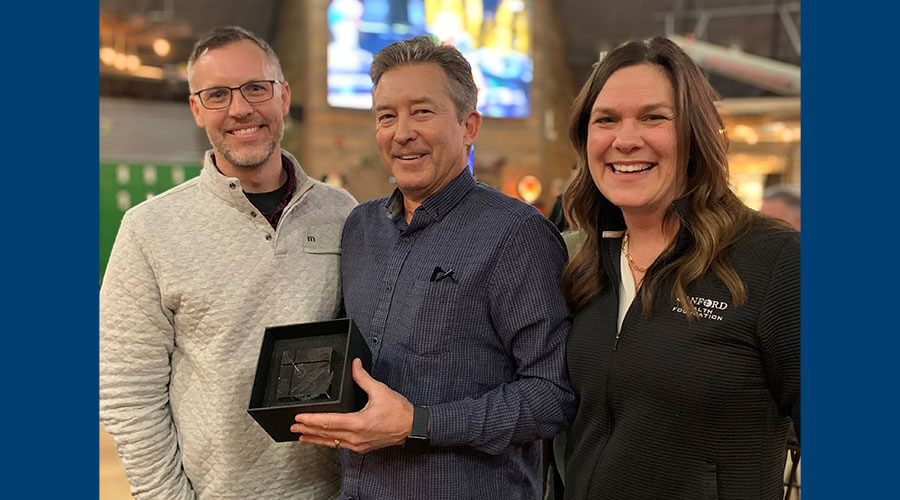 May 07, 2024Read story
May 07, 2024Read storyAnother Way to Care: Society Leader Recognized for Lifetime Giving
Randy Fitzgerald was recognized as a new member of the Good Samaritan Foundation’s Honors Society, a community of donors who have given significant gifts over their lifetimes to the Good Samaritan Foundation. -
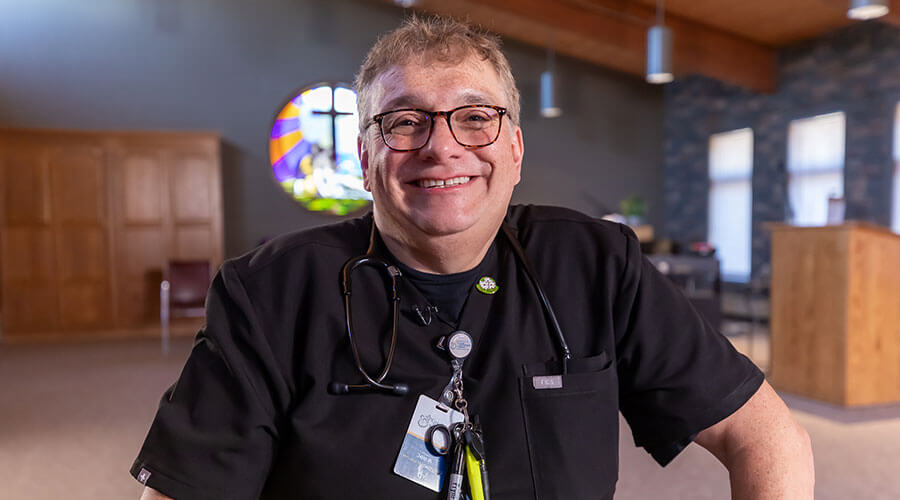 May 03, 2024Watch story
May 03, 2024Watch storyPutting residents first earns Minnesota nurse a DAISY Award
Joe Abrego, RN, found a second career at the Good Samaritan Society. -
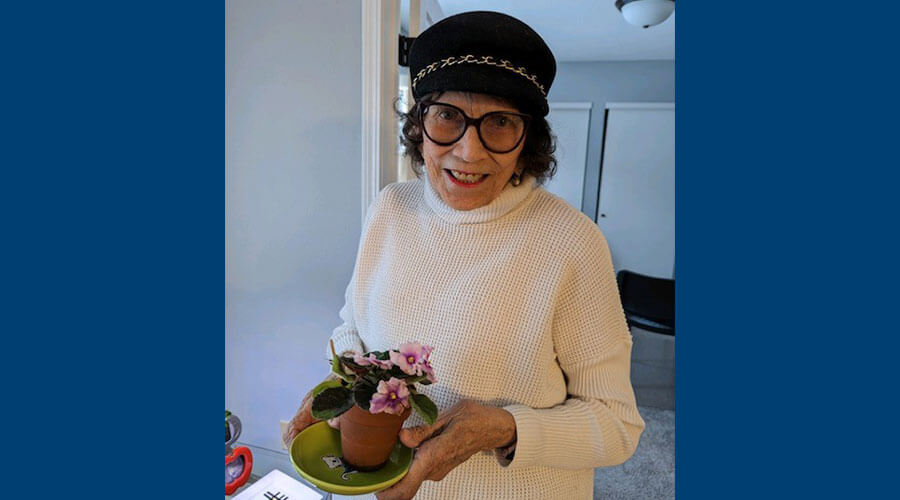 April 29, 2024Read story
April 29, 2024Read storyPainting enthusiast loves her senior living community
Painting brings joy to Leona Russell, an independent living resident at Good Samaritan Society – Heritage Place of Roseville in the Twin Cities. -
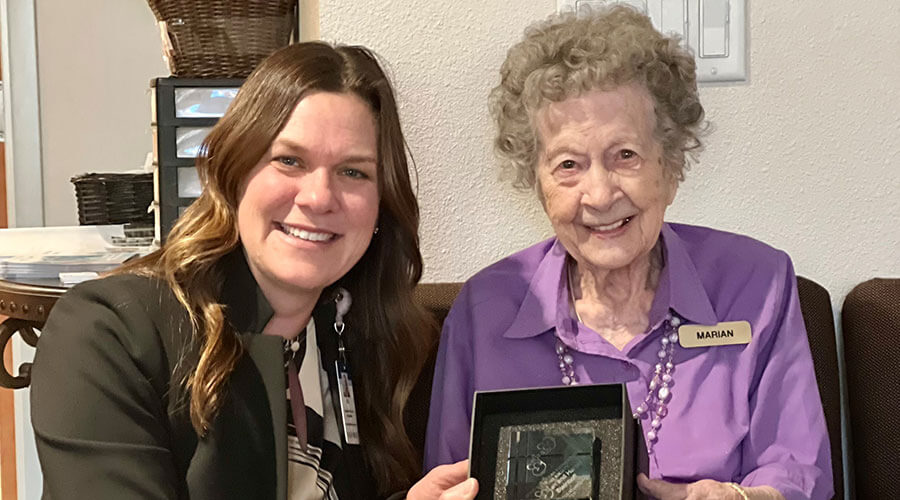 April 26, 2024Read story
April 26, 2024Read storyGod and Giving: 103-Year-Old Resident Reflects on the Secret to a Long and Healthy Life
As Marian Steinhoff prepares to celebrate her 103rd birthday, she was asked about the secret ingredient for a long and healthy life. -
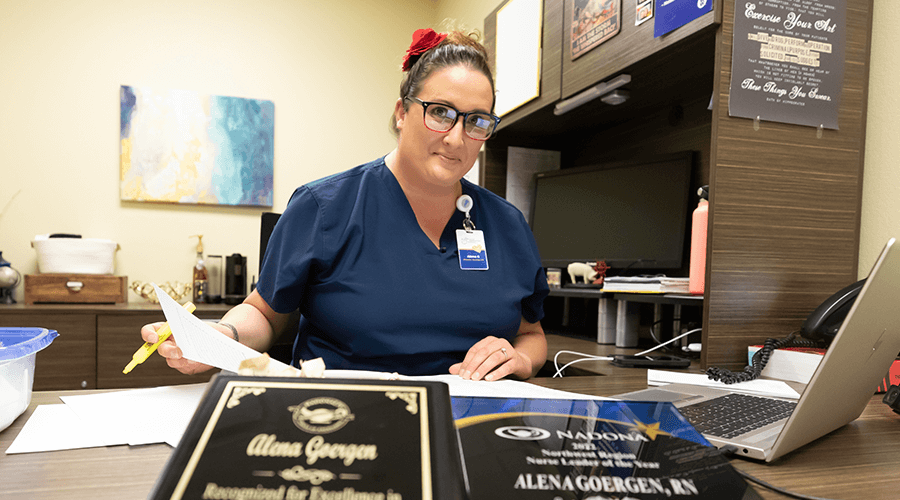 April 24, 2024Watch story
April 24, 2024Watch storySociety nurse recognized nationally for her leadership
Crafting birthday cards with residents during activity time is a treat these days for Alena Goergen, RN, BSN, at Good Samaritan Society – Miller Pointe in Mandan, North Dakota. -
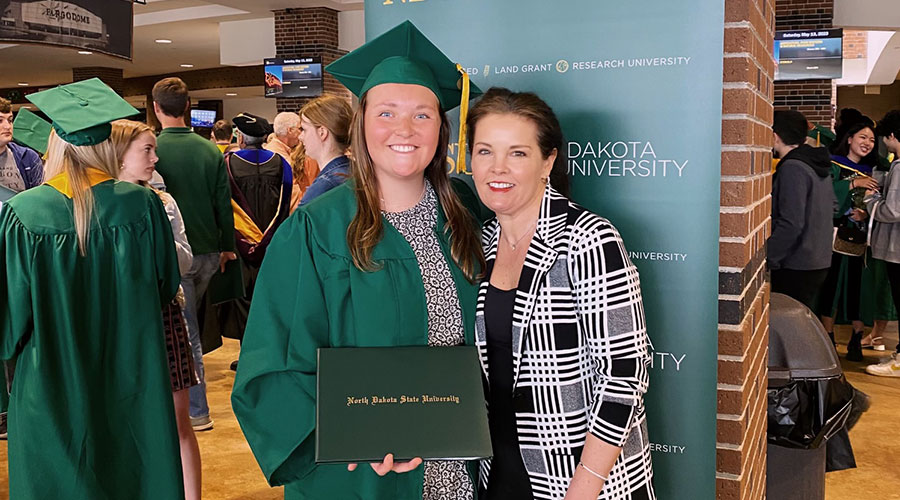 April 16, 2024Read story
April 16, 2024Read storyRetired hospice worker now a hospice volunteer
For Nicolle Aukland, caring for hospice patients is a lifelong passion. “There has always been instilled in myself and my siblings this real effort to always focus on those elders in your family. So from a very early age, we were brought to the nursing home to see great grandparents,” said Aukland. “It was sometimes daily. And so that was my comfort zone.” -
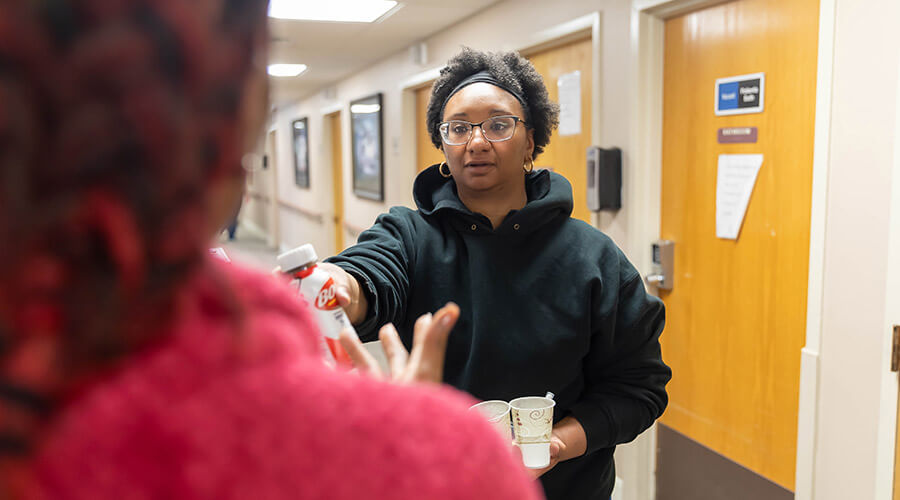 April 15, 2024Watch story
April 15, 2024Watch storyMedication aide spreads joy and knowledge in Nebraska
A Good Samaritan Society caregiver and trainer for eight years, Janisea Shields is now pursuing a nursing degree. -
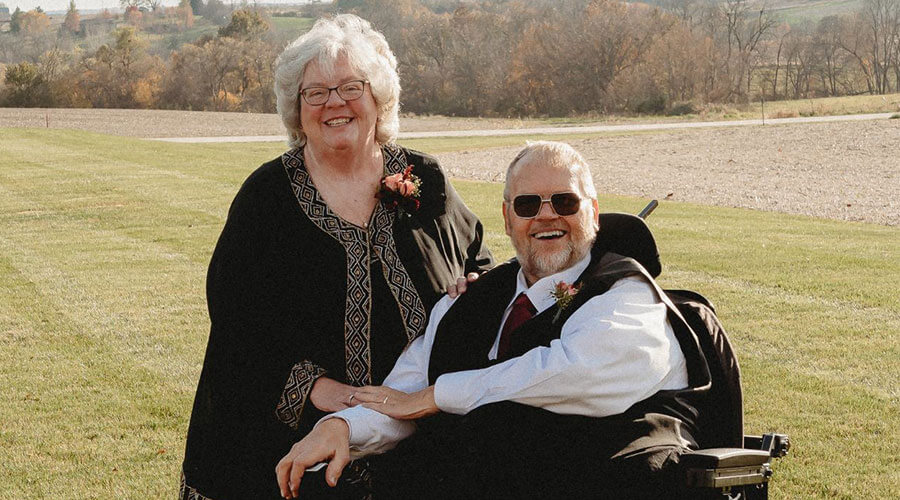 March 05, 2024Read story
March 05, 2024Read storyMemorial Gift to Good Samaritan Society – Ottumwa Celebrates Extraordinary Care
To express his gratitude for the care he received during his rehabilitation and to celebrate the life and legacy of his beloved wife, who passed away in 2023, Jerry Kjer made a $50,000 gift to the Good Samaritan Foundation to benefit residents and families who need care close to home in Ottumwa. -
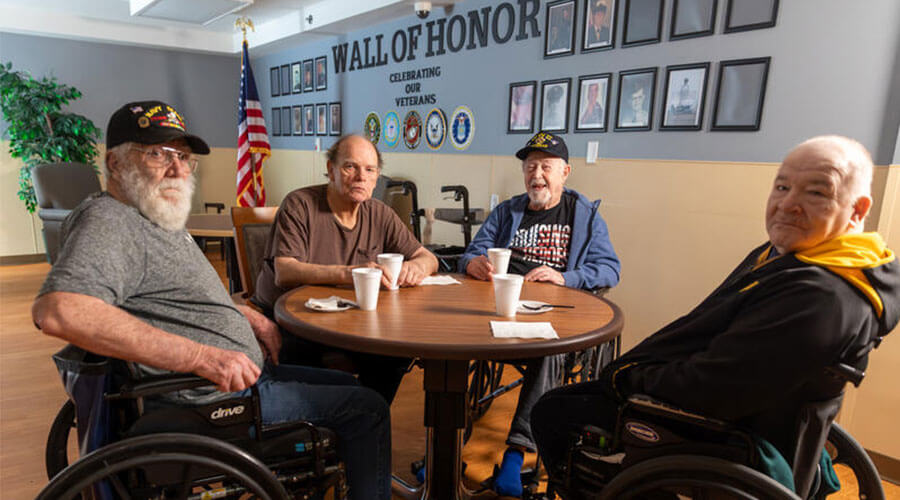 March 04, 2024Watch story
March 04, 2024Watch storySociety strives to be top veterans’ employer, care provider
Half of residents at Iowa long-term care location served in the military. -
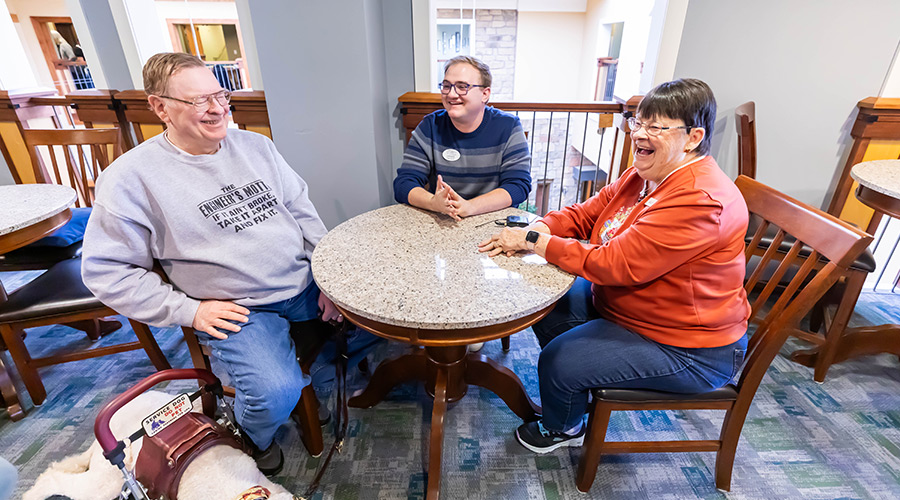 January 16, 2024Watch story
January 16, 2024Watch storyYoung man leaves delivery job for senior center family
Admin assistant started his Good Samaritan Society career while still in high school. -
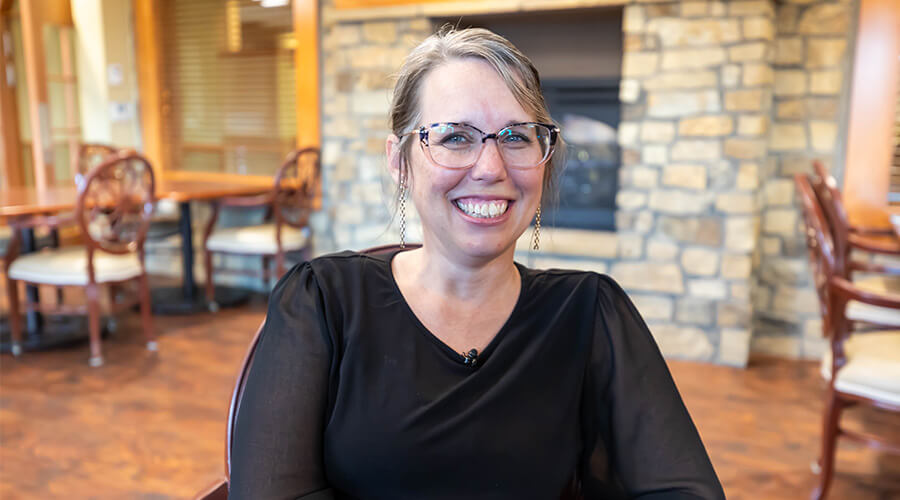 January 12, 2024Watch story
January 12, 2024Watch storyNurse finds calling as senior living administrator
Good Samaritan Society is where caring people choose to work, says Amanda Kerr. -
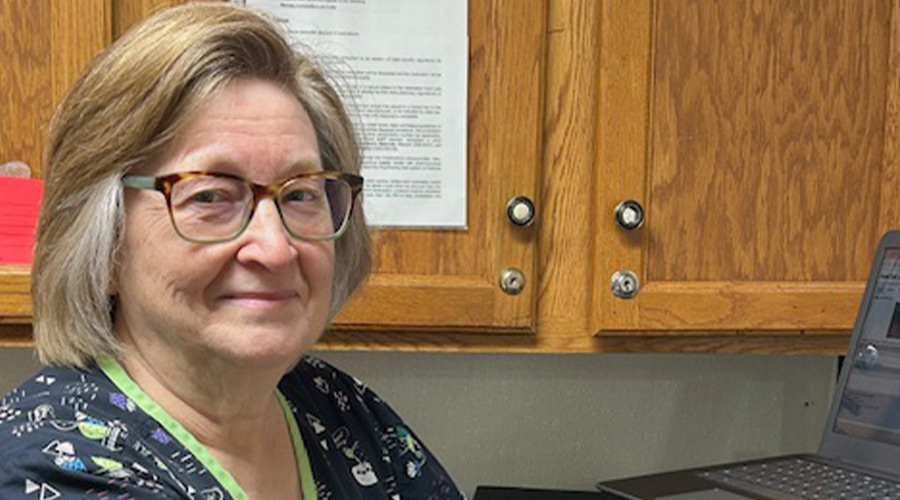 January 05, 2024Read story
January 05, 2024Read storySmall-town nurse deeply rooted in the Society, Sanford
When Ann Lee, a long-time nurse at Good Samaritan Society – Howard in Howard, South Dakota, was deciding on a career, she followed in her mother’s steps and chose nursing. -
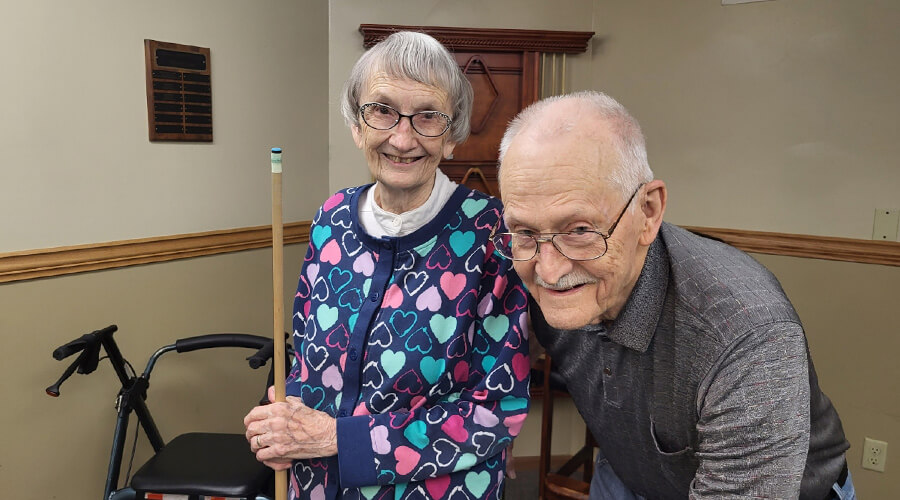 December 18, 2023Read story
December 18, 2023Read story96-year-old newlyweds thrive in independent living
For Carl and Doris Kruse, living in an independent senior living community lets them focus less on their responsibilities and more on the activities and relationships that make them happy. -
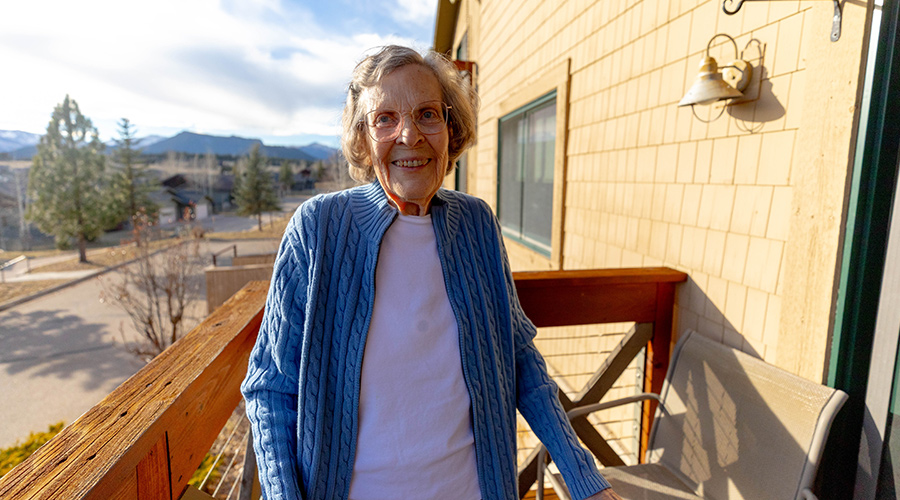 December 11, 2023Watch story
December 11, 2023Watch storyReasons to try respite care at the Good Samaritan Society
Respite provides continuous care for patients, break for caregivers.
-
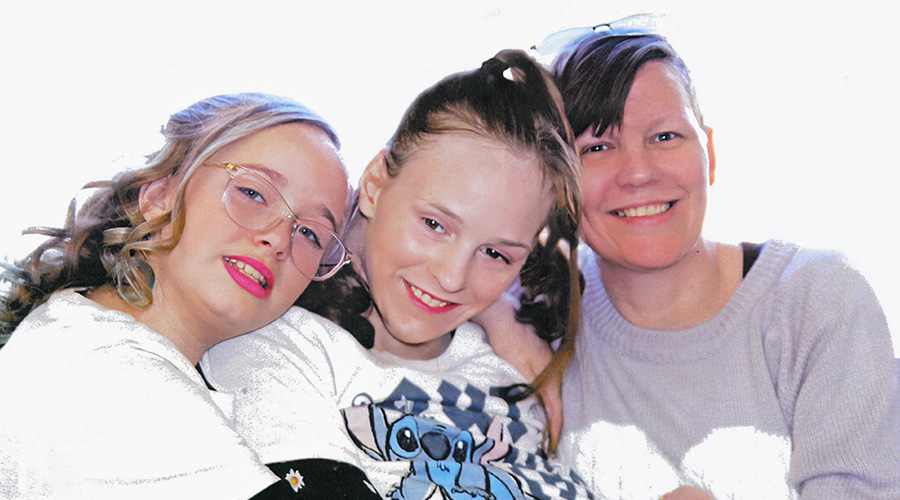 December 11, 2023Read story
December 11, 2023Read storyYoung woman finds the care she needs at the Good Samaritan Society
When Katelyn Sandbulte moved to Good Samaritan Society – George, Iowa, at the end of 2022, she and her mother, Tara Hansen immediately felt at peace.
-
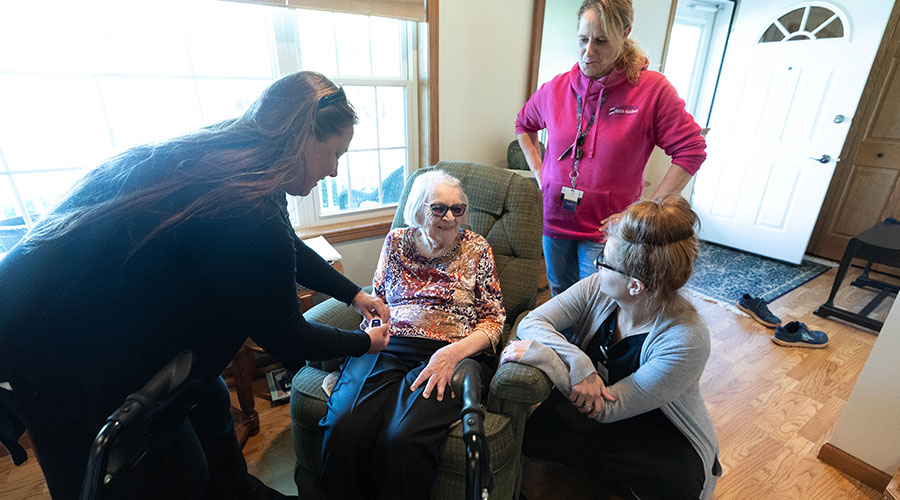 November 29, 2023Read story
November 29, 2023Read storyHome care team in Minnesota is 'part of our family'
Good Samaritan Society’s in-home therapy helps keep people out of the hospital. -
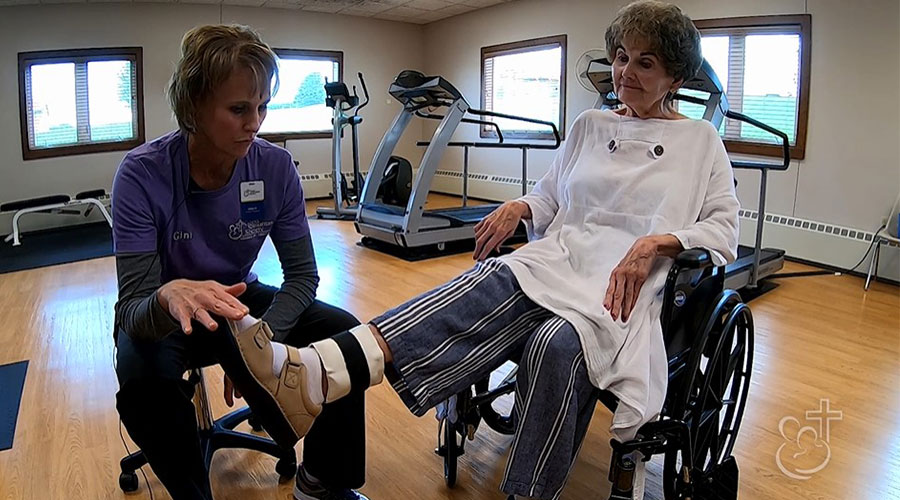 November 14, 2023Watch story
November 14, 2023Watch storyRegaining independence with rehab therapy
After a year of rehabilitation therapy, Ruth Rann made impressive progress. -
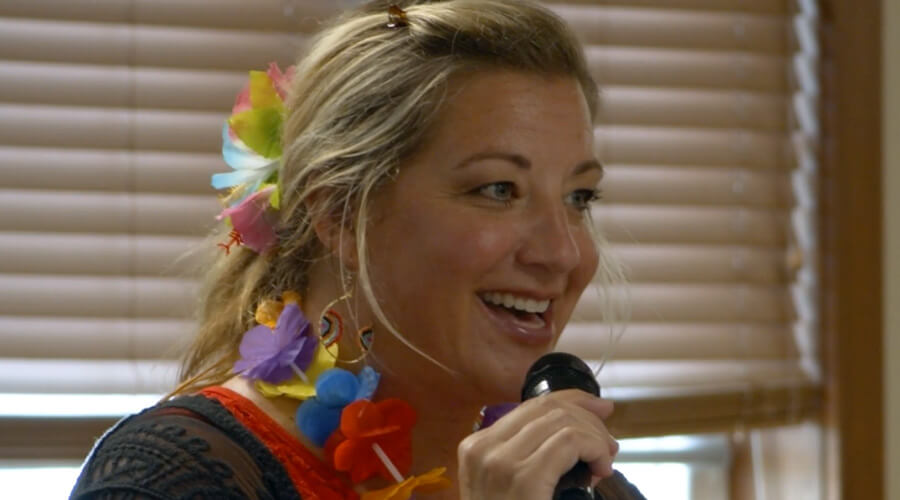 November 01, 2023Watch story
November 01, 2023Watch storyEmily Toering helps create connections one activity at a time
Emily likes to plan activities that give residents purpose and help them feel special. -
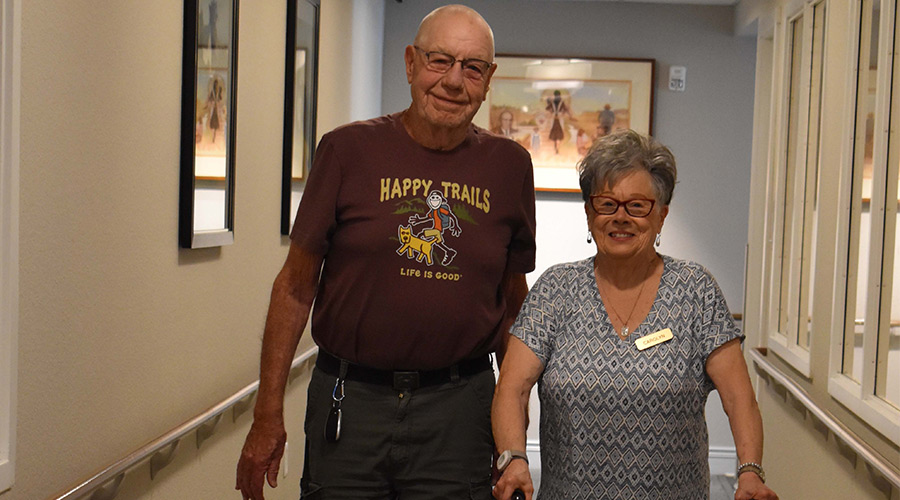 November 01, 2023Watch story
November 01, 2023Watch storyRespite care helps a family discover the benefits of senior living
A short stay as a respite care resident helped Carolyn and her family decide if senior living was right for her. -
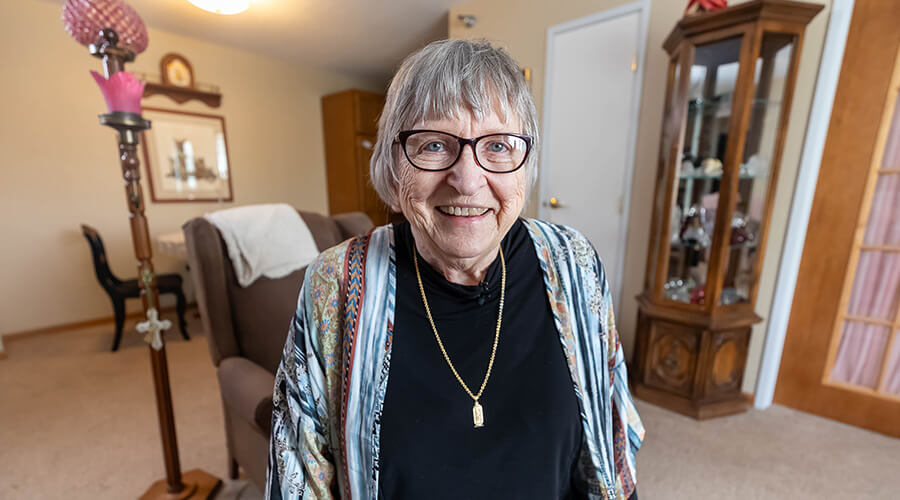 November 01, 2023Watch story
November 01, 2023Watch storyRetired missionary, author graduates to independent living
Cancer survivor moves from nursing home to assisted living to independent apartment. -
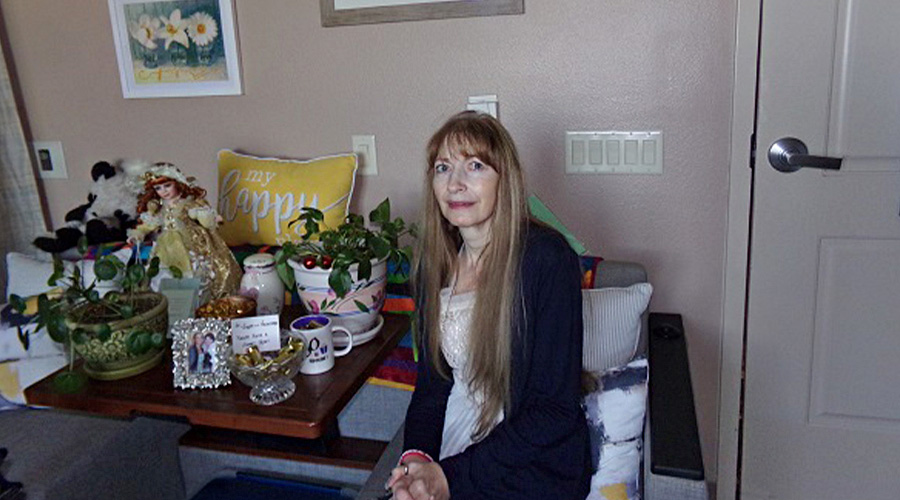 October 10, 2023Read story
October 10, 2023Read storyALS patient finds comfort and care in Serenity Suites
Looking out the window from her new home at Good Samaritan Society – Sunset Drive in Mandan, North Dakota, Candace Frohlich is taking in what she describes as her “dream view.”
-
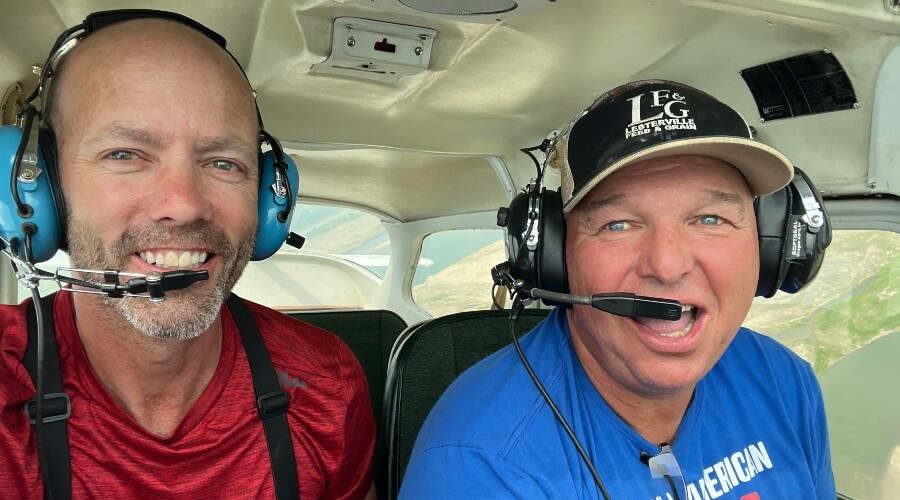 October 05, 2023Watch story
October 05, 2023Watch storyKayak rescue is a Good Samaritan story
Father-son duo lose – then find – their handmade boat on a Missouri River trip. -
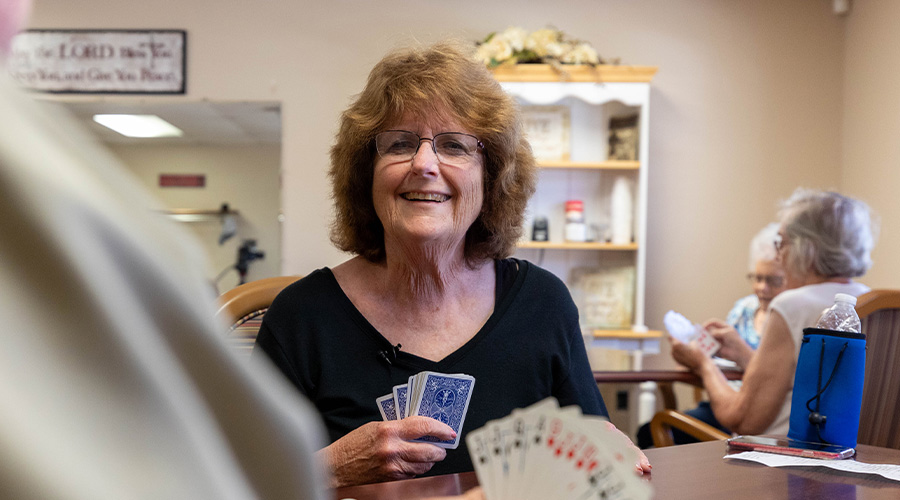 September 28, 2023Watch story
September 28, 2023Watch storyHow to make the most of independent living
Melding people and activities, Good Samaritan Society – Hastings is a hub of residents who are the kings and queens of the Nebraska campus.
-
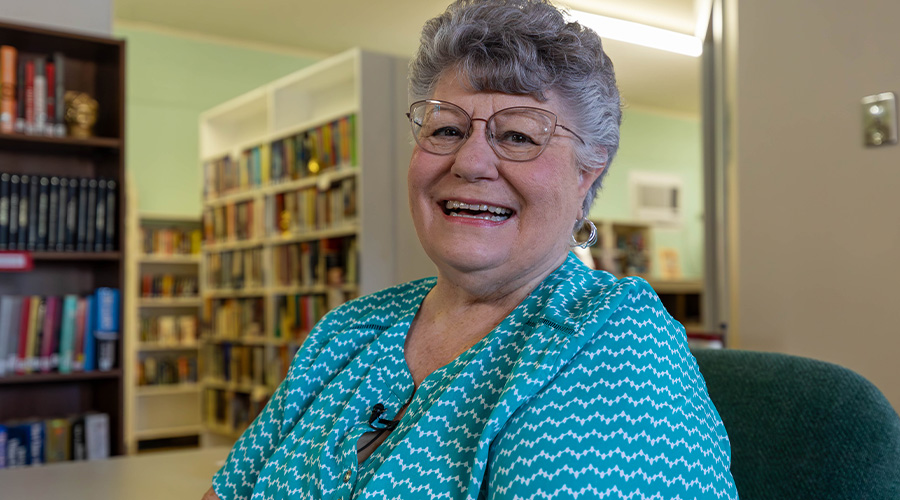 September 19, 2023Watch story
September 19, 2023Watch storyActive resident enjoys ‘the village life’ in Nebraska
After 37 years in the banking industry, Bev Frerichs is cruising into the next stage of life at Good Samaritan Society – Hastings Village in Nebraska. -
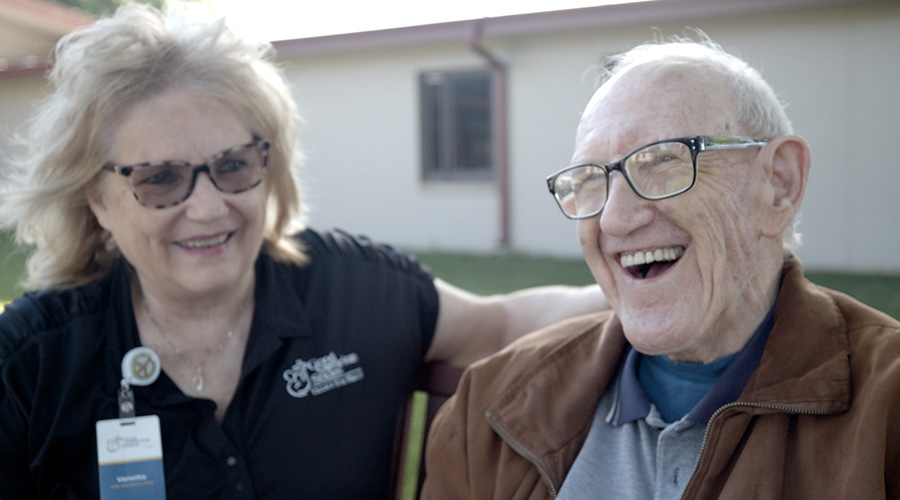 September 18, 2023Watch story
September 18, 2023Watch story85-year-old returns to beloved community after serious fall
Back on his feet after a serious fall, 85-year-old Chuck Stowers is stepping out of The Villa, an assisted living building, at Good Samaritan Society – Hastings Village in Nebraska. -
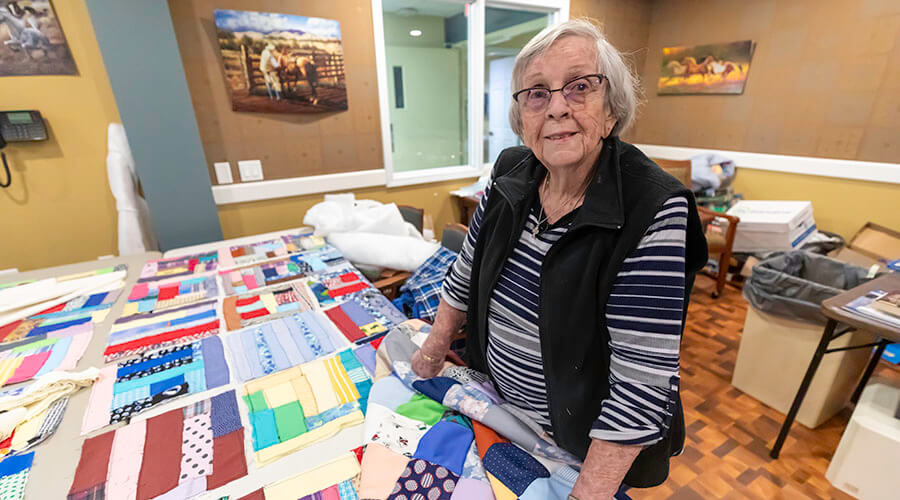 August 11, 2023Watch story
August 11, 2023Watch storyCompanionship a common thread at assisted living location
Friends have turned seldom-used space into busy crafting room -
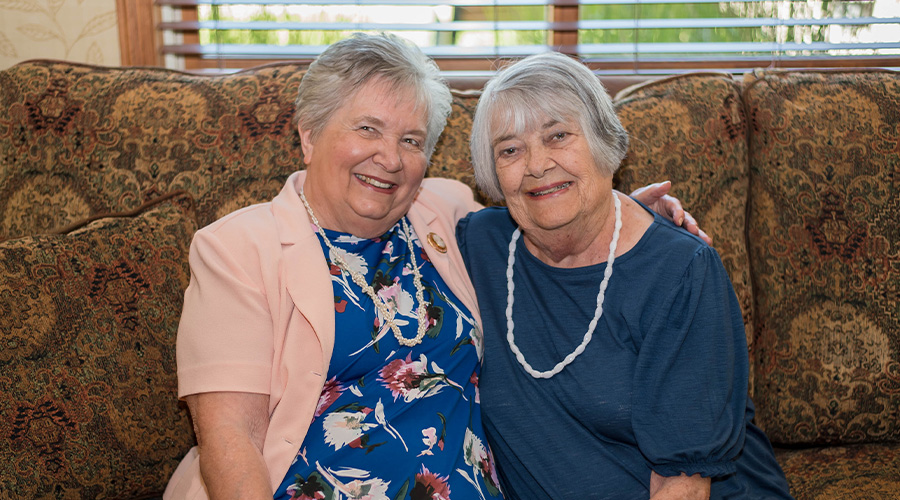 July 27, 2023Read story
July 27, 2023Read storyFriends bring the fun at Fox Run Senior Living
One of the aspects residents love about Good Samaritan Society – Fox Run Senior Living is the family atmosphere.
-
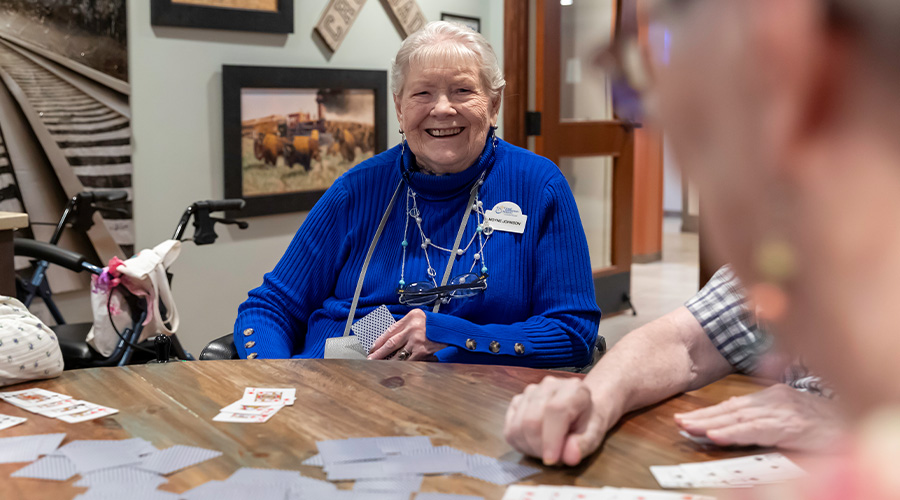 July 27, 2023Watch story
July 27, 2023Watch storyHow to thrive in long-term care
At this point of sale, you’ll find resident Moyne Johnson making it a point to volunteer.
-
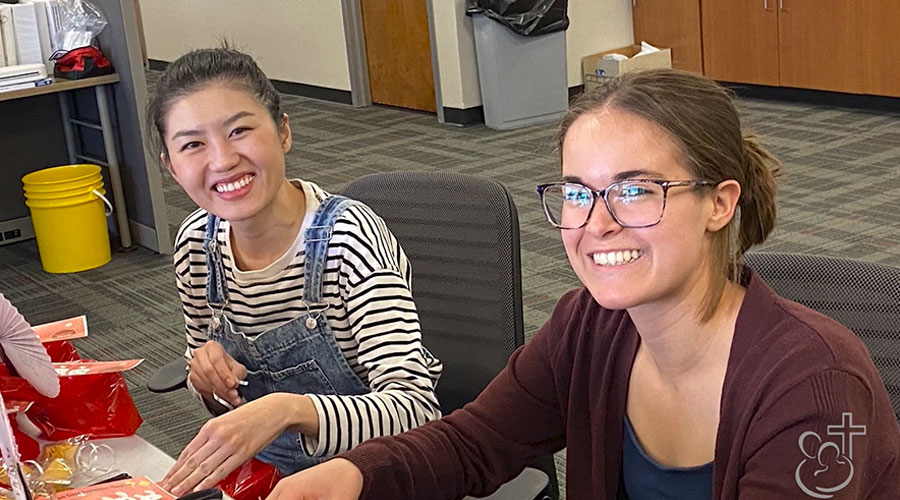 July 20, 2023Watch story
July 20, 2023Watch storyHospice volunteers fill a unique role
A committed group of volunteers is helping fill a need at Good Samaritan Society – Home Care in Albuquerque, New Mexico. -
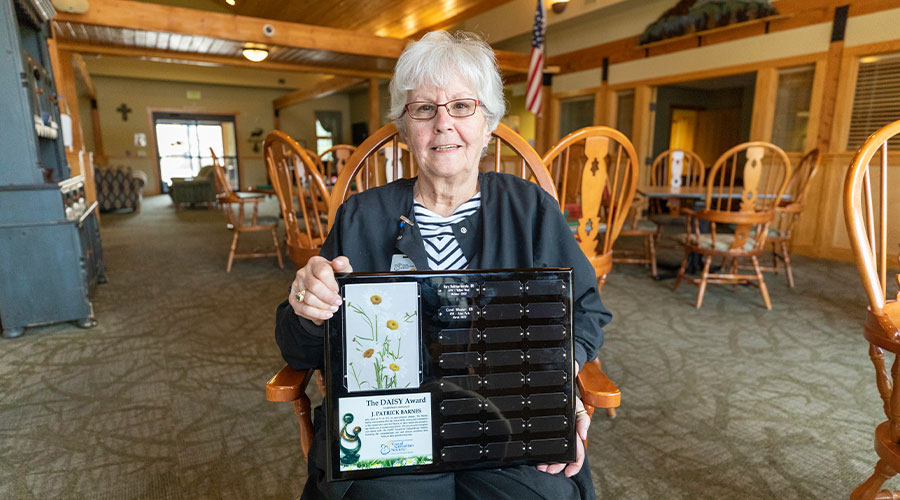 July 11, 2023Watch story
July 11, 2023Watch storyNurse wins award before retiring with 60 years of service
After 60 years of caring for others, Carol Wheeler, RN, is taking the final sip of what’s been an incredible nursing career.
-
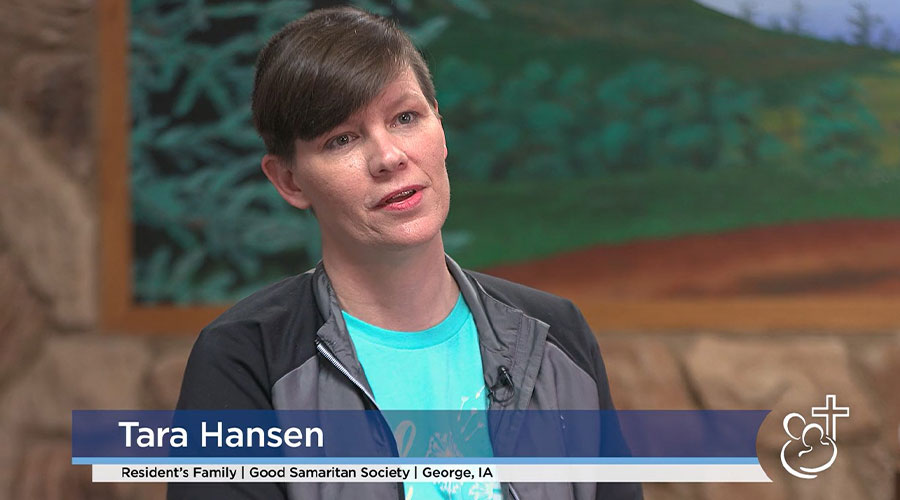 June 26, 2023Watch story
June 26, 2023Watch storyFamily atmosphere sets location apart
Ask anyone associated with Good Samaritan Society – George how they feel about this small-town nursing home and you’ll hear the same response. It has a friendly, welcoming environment. -
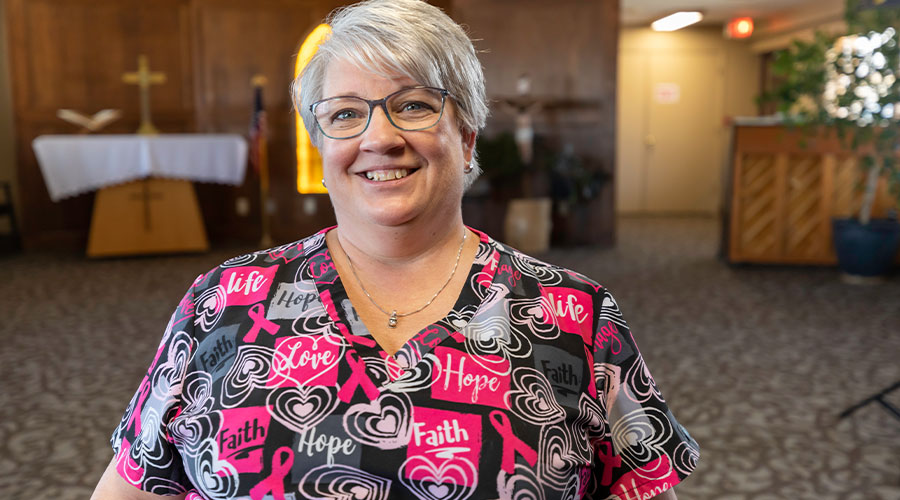 June 16, 2023Watch story
June 16, 2023Watch storySocial services staffer wins hearts for pairing seniors and animals
Her golden retriever Gracie got national attention for comforting long-term care residents at Good Samaritan Society – Scotland in South Dakota. Now, Pam Stewart is earning recognition of her own.
-
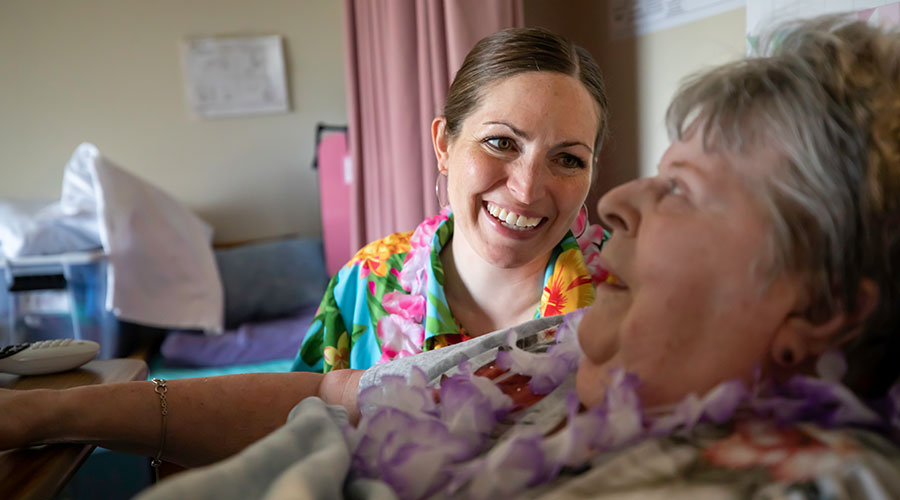 June 15, 2023Watch story
June 15, 2023Watch storyAdministrator inspires staff, residents to ‘be who you are’
Fruity drinks, flowery-dressed staff members and the relaxing sounds of a steel guitar are turning Good Samaritan Society – Howard Lake into a virtual Hawaii for lei-adorned residents. Creating quite the party in rural Minnesota.
-
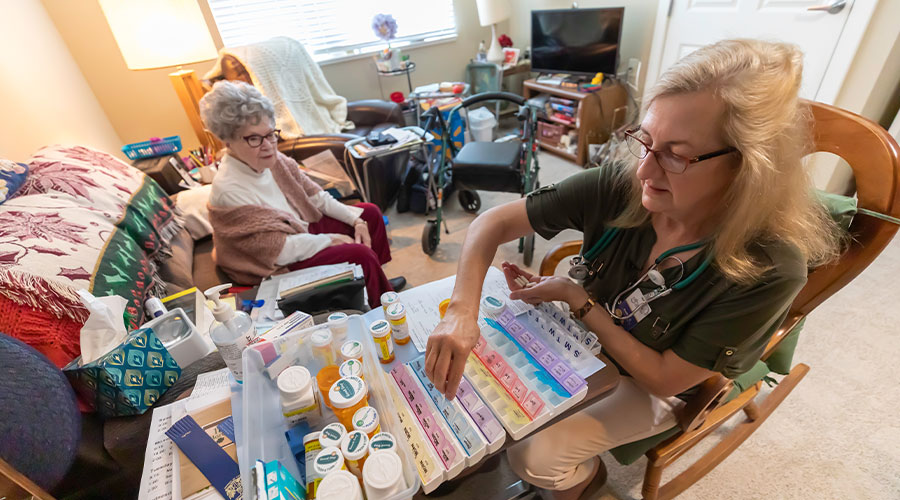 June 15, 2023Watch story
June 15, 2023Watch storyHome care nurse is ‘primary reason’ clients stay independent
Twice a month, 85-year-old Phyllis L. Hayworth gets a visit from one of her favorite people, nurse Audrey Cheadle.
-
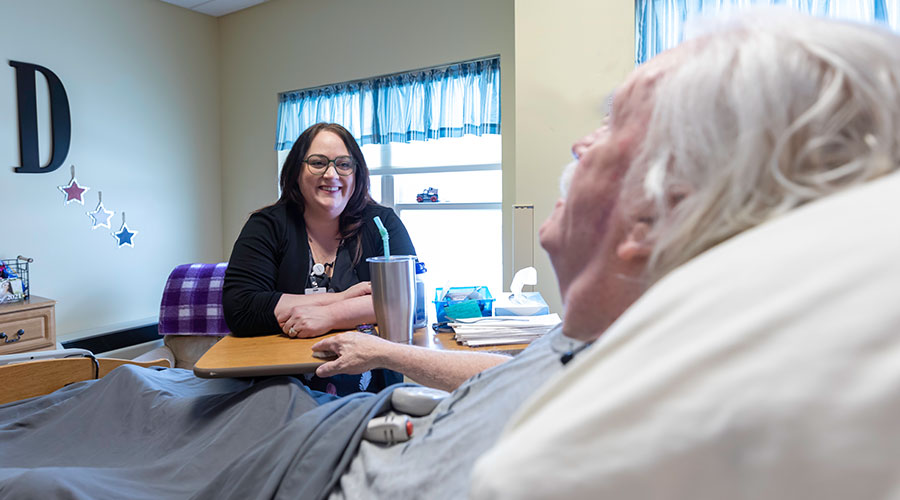 June 15, 2023Watch story
June 15, 2023Watch storyNursing director honors father after winning national award
About as far north as you can go and still be in the United States is where you’ll find Good Samaritan Society – International Falls in Minnesota. Jennifer Burchell is the long-term care center's director of nursing. She’s also this year’s National Ever Forward Director of Nursing Services Champion.
-
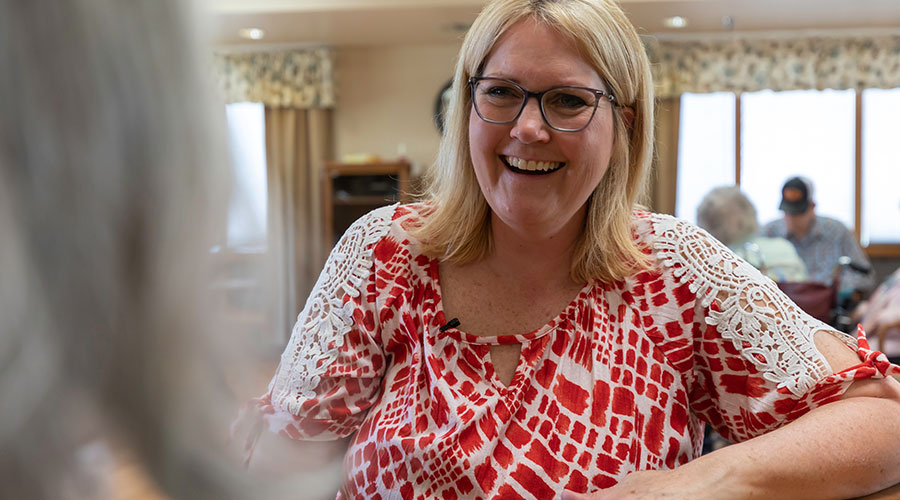 June 14, 2023Watch story
June 14, 2023Watch storyEmployee does it all, from resident care to driving bus
Officially a driver for Good Samaritan Society – Albion in Nebraska, Traci Gragert is known to guide much more than the rural long-term care center’s bus.
-
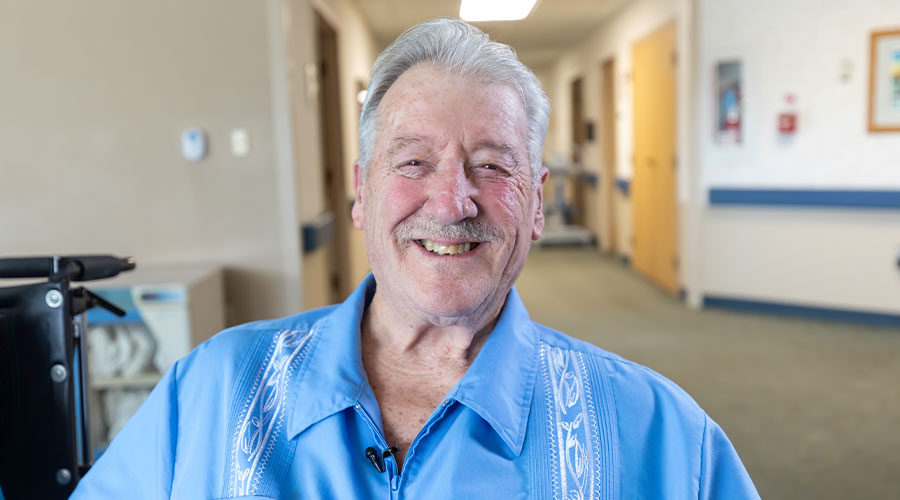 June 13, 2023Watch story
June 13, 2023Watch storyDedicated husband, volunteer perks up long-term care center
Ten years ago, Howard Lacey’s wife Marilyn suffered a stroke and went into cardiac arrest while on the job as a CNA at Good Samaritan Society – Algona in Iowa.
-
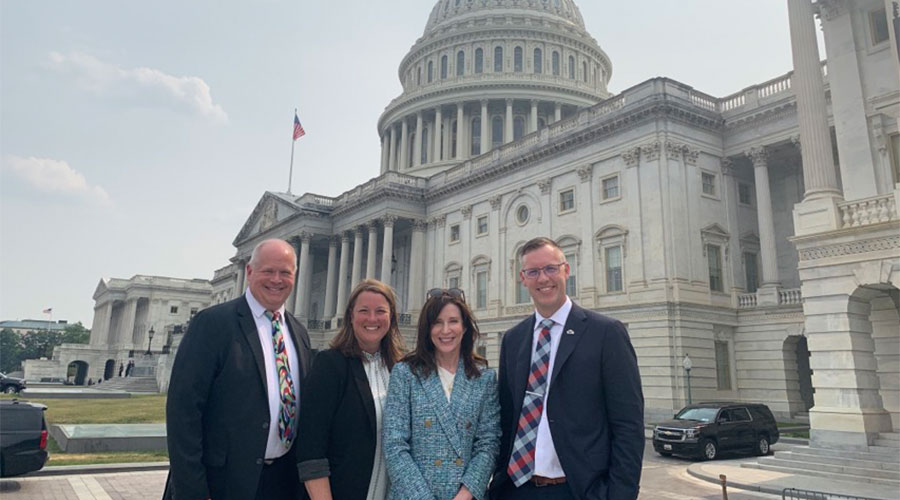 June 13, 2023Read story
June 13, 2023Read storyHealth care staffing challenges persist past COVID crisis
The Evangelical Lutheran Good Samaritan Society – the nation’s largest provider of senior care and services – is sharing solutions with national elected officials in hopes of helping to address long-term care’s workforce challenges. -
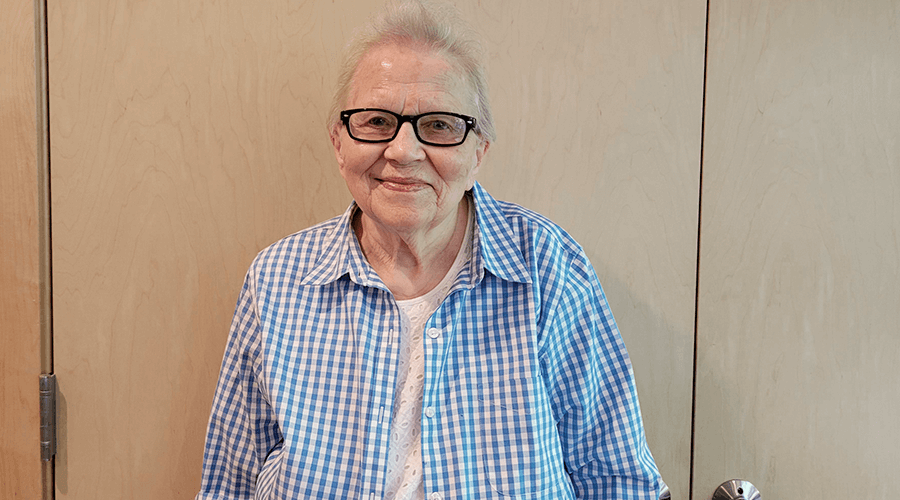 May 18, 2023Read story
May 18, 2023Read storyDevoted Society nurse later becomes a resident
In the decades since Marian Johnson worked for the Good Samaritan Society in St. James, Minnesota, she still has fond memories of her time there. -
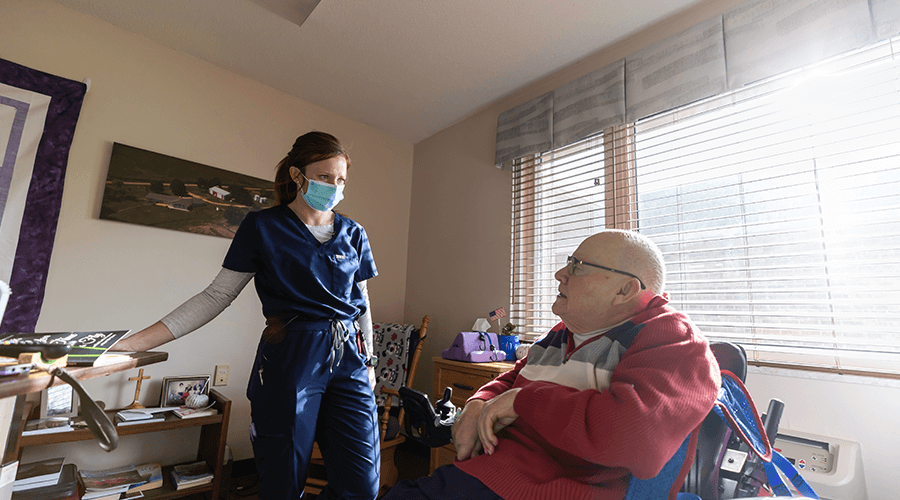 May 17, 2023Watch story
May 17, 2023Watch storyLong-term care nurse surprised with DAISY Award
It “takes a village” to provide high quality care for residents and patients.
One of those caregivers, Kayla Finzen, LPN, at Good Samaritan Society – Sioux Falls Village in South Dakota, is getting a well-deserved surprise for her efforts.
-
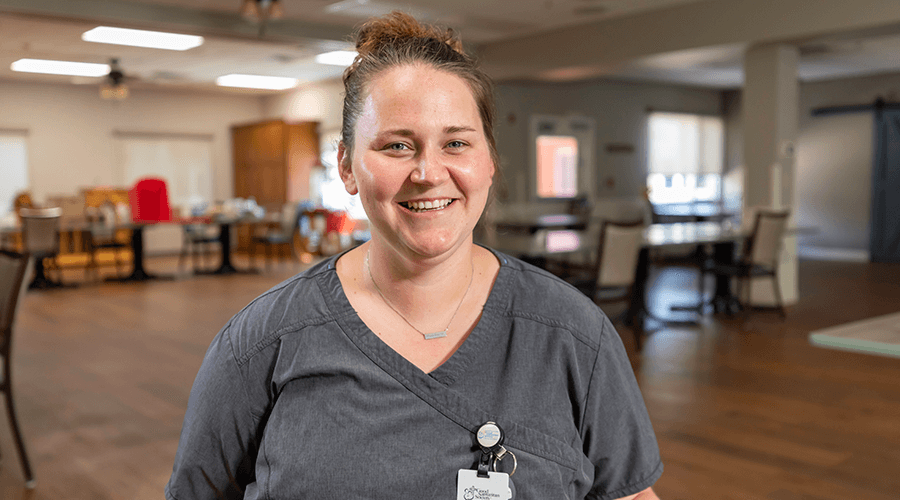 May 16, 2023Watch story
May 16, 2023Watch storyNursing staff thanks LPN, a caregiver at home and work
“She was diagnosed in March and not even three weeks later my husband was diagnosed with bladder cancer," Kayla Rowan, LPN, says about her mother and significant other. The Good Samaritan Society - Waukon nurse is being honored with The DAISY Award for her hard work at the nursing home despite personal tragedy. -
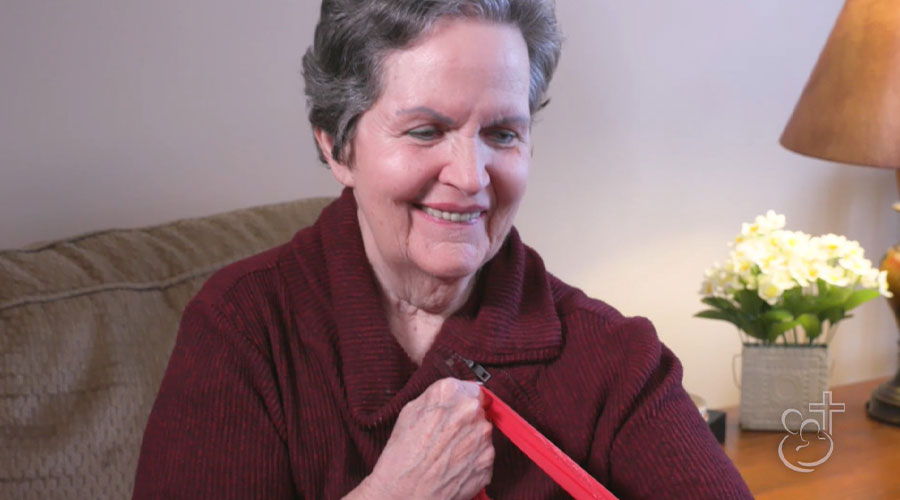 May 08, 2023Watch story
May 08, 2023Watch storyMiracle recovery after rehab therapy
A serious fall that caused a traumatic brain injury brought Ruth Wallig to rehab therapy at the Good Samaritan Society. -
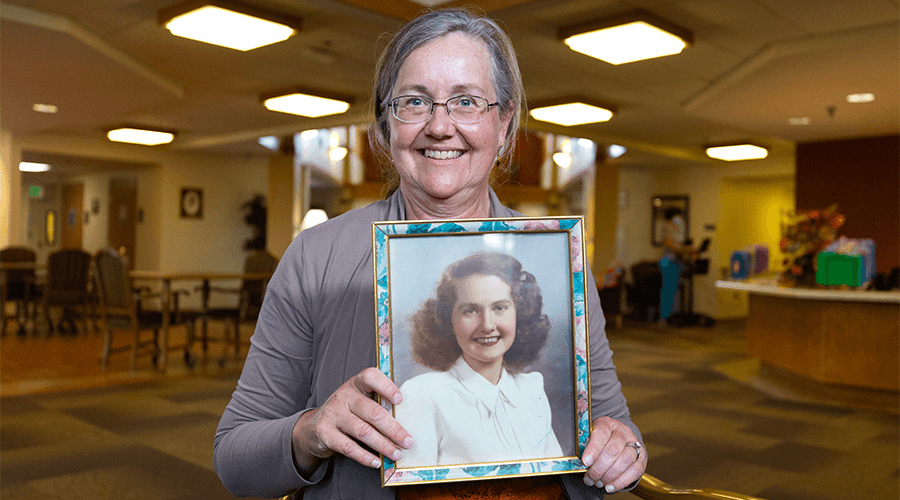 March 16, 2023Watch story
March 16, 2023Watch storyRespite care provides family a much-needed break
After years of taking care of her mother in Colorado, Mary Clark and her family needed a breather. That's where respite care helped. -
 February 16, 2023Read story
February 16, 2023Read storyPost-Pandemic Rehabilitative Services Program gets patients back on their feet
The Good Samaritan Society developed an outpatient rehabilitation therapy program to help any patient post-pandemic. -
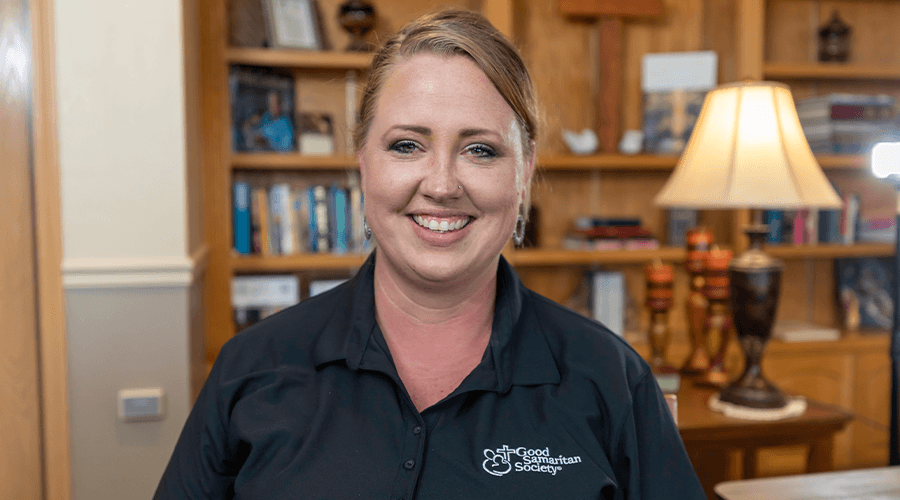 February 09, 2023Watch story
February 09, 2023Watch storyAssisted living admin helps shape the future of senior living
It’s hard to find anyone as faithful to her community as Melissa McCorquodale. She’s an administrator at Good Samaritan Society assisted living locations in Luverne and Pipestone, Minnesota. -
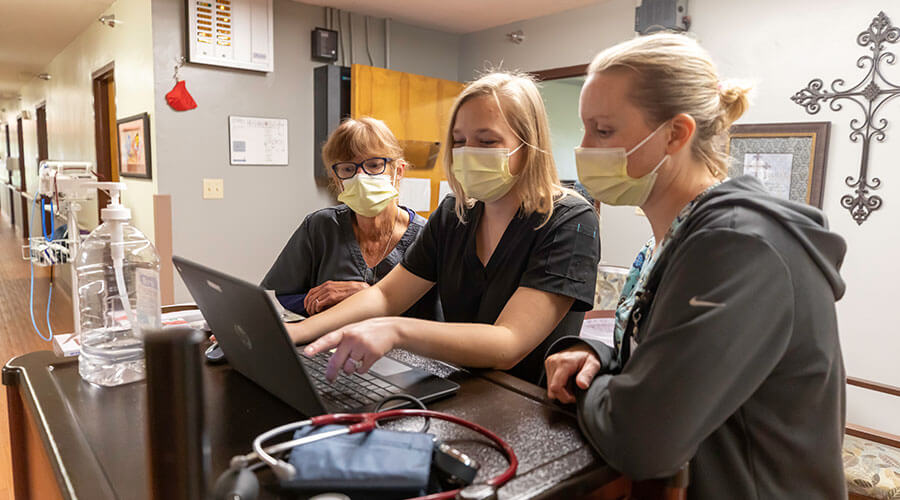 February 02, 2023Read story
February 02, 2023Read storyScholarship helps nurse advance long-term care career
Serving residents in Scotland, South Dakota, since she was 16, Good Samaritan Society nurse Anna Struck is developing quite the fan club.
-
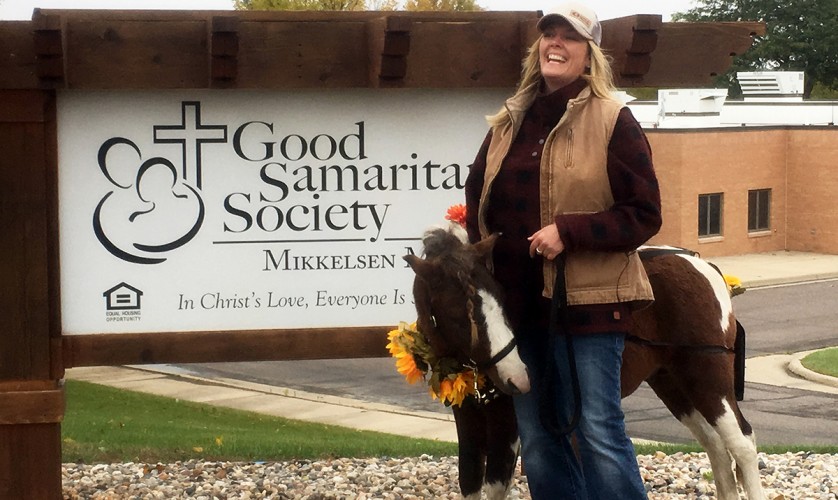 December 02, 2022Read story
December 02, 2022Read storyTherapy horse unlocks memories
Shirlene Hvinden of Heritage Horses farm, who has a background in long-term care, loves to see people's faces come alive when therapy horse, Toby struts into the room. -
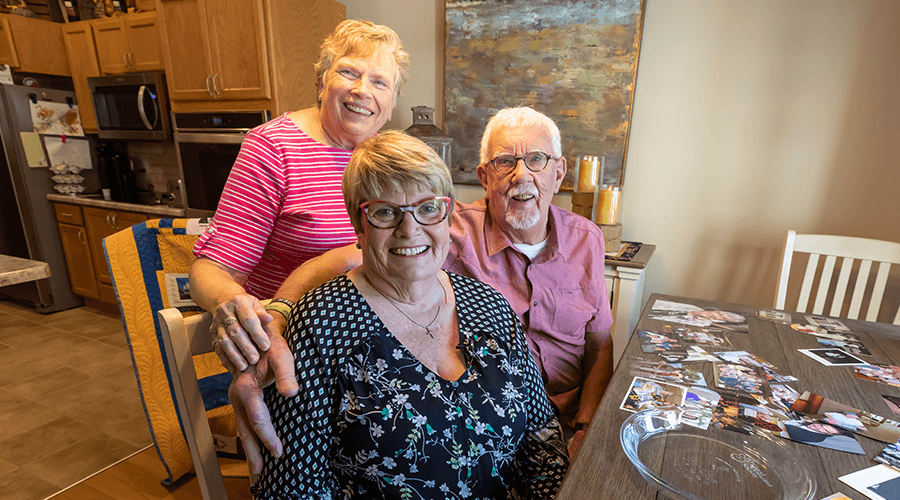 December 01, 2022Watch story
December 01, 2022Watch storyGenerations of same family serve Good Samaritan Society
Flipping through old photo albums at a Good Samaritan Society – Prairie Creek twin home in Sioux Falls, South Dakota, Cindy Moegenburg is realizing many aspects of her life are filled with memories made at the Society.
-
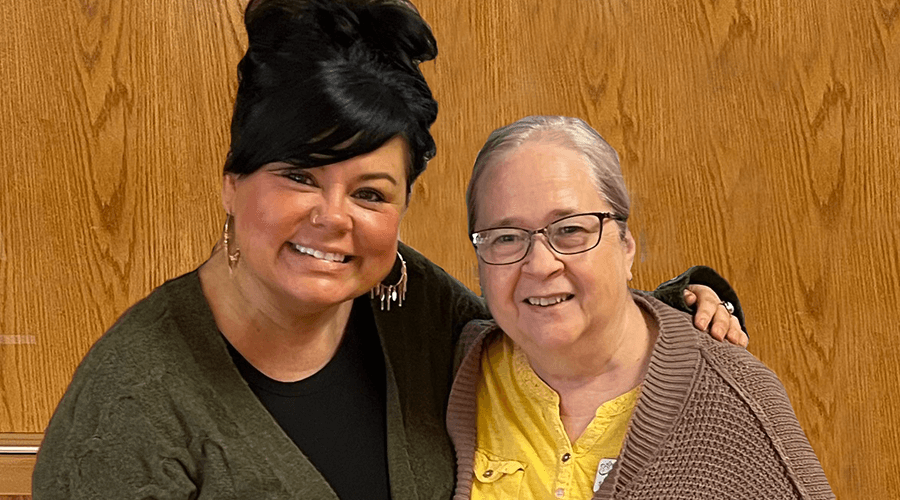 November 21, 2022Read story
November 21, 2022Read storyGranting one last wish
Fulfilling the wishes of hospice patients has become a calling for Sherelyn Hornick and Sarah Meeker. Sherelyn is a hospice nurse, and Sarah is the activities director at Good Samaritan Society – Ottumwa in Ottumwa, Iowa.
-
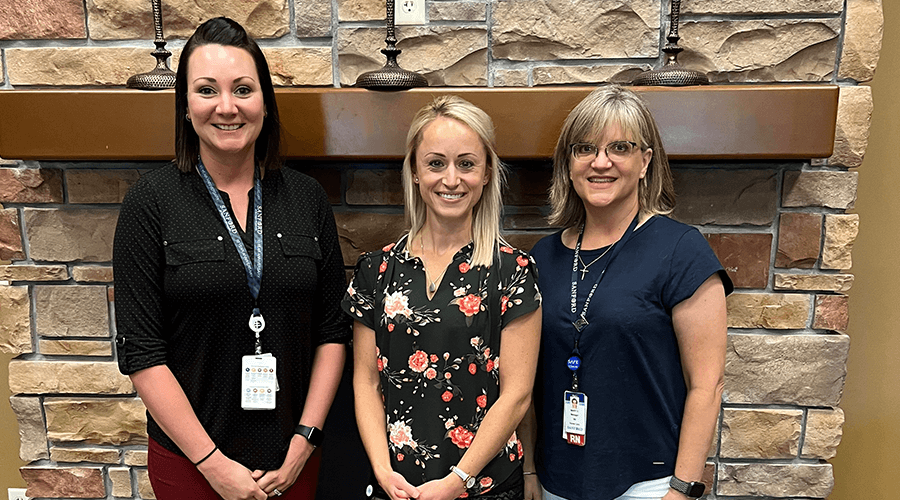 October 26, 2022Read story
October 26, 2022Read storyFormer client and family call OT their guardian angel
Whenever Sandy Sundin and her family need therapy and rehabilitation services, they search out Cassie Thompson and her team in International Falls, Minnesota. -
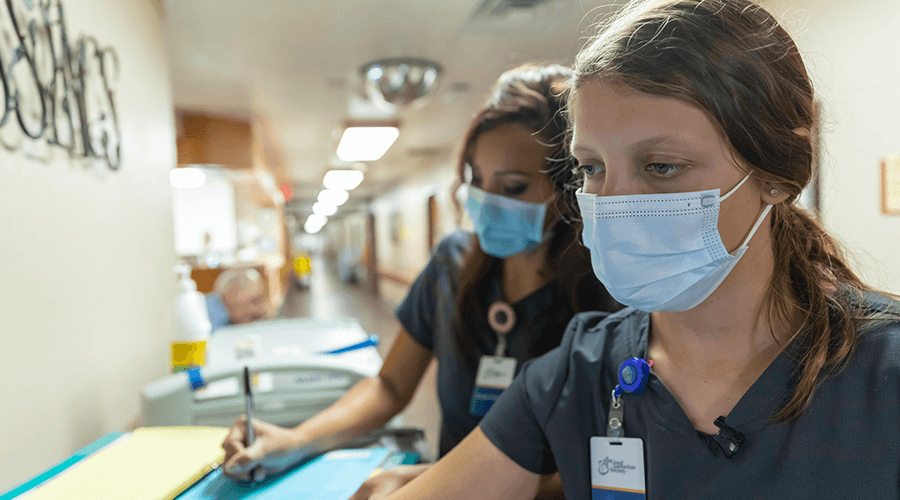 October 25, 2022Watch story
October 25, 2022Watch storyDirector of nursing honored with Patriot Award
Good Samaritan Society CNA and National Guard member nominated her supportive supervisor. -
 October 12, 2022Watch story
October 12, 2022Watch storyFounder’s Day Celebration
This year, the Good Samaritan Society is marking a significant milestone – our 100th Anniversary! -
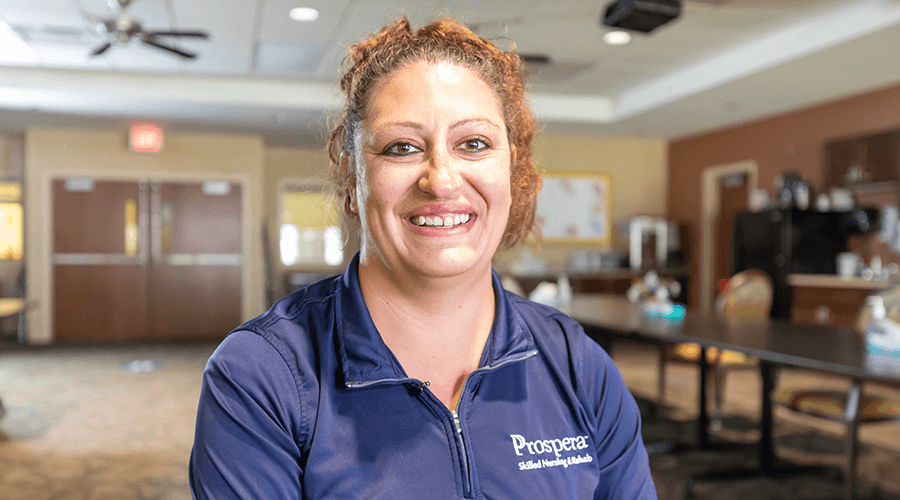 October 06, 2022Watch story
October 06, 2022Watch storyCOVID-19 infection preventionist honored for efforts
An infection preventionist at Good Samaritan Society – Miller Pointe in Mandan, North Dakota, Savannah Boltz, RN, has been very busy during the COVID-19 pandemic. -
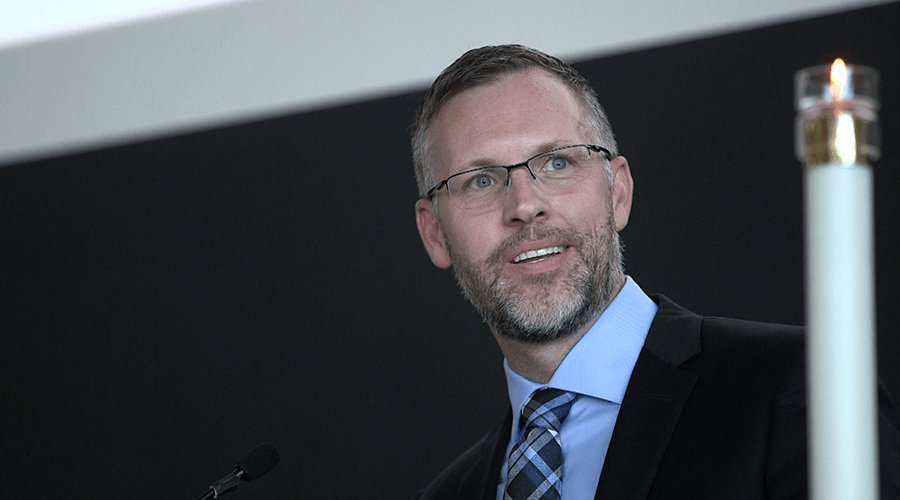 October 06, 2022Watch story
October 06, 2022Watch storyGood Samaritan Society Founder's Day Recap
On Thursday, September 29, 2022, the Good Samaritan Society celebrated Founder’s Day in the Great Room at its national campus in Sioux Falls, South Dakota. -
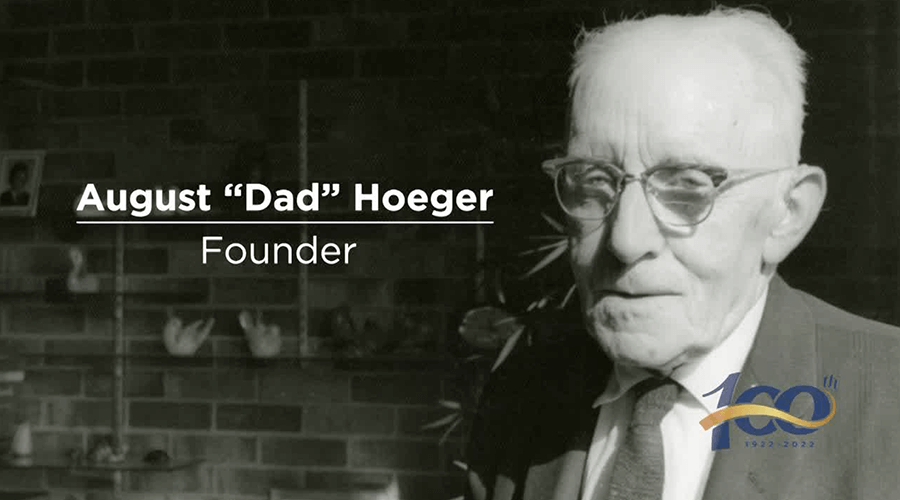 September 29, 2022Watch story
September 29, 2022Watch storyShowing appreciation during Founder’s Day
-
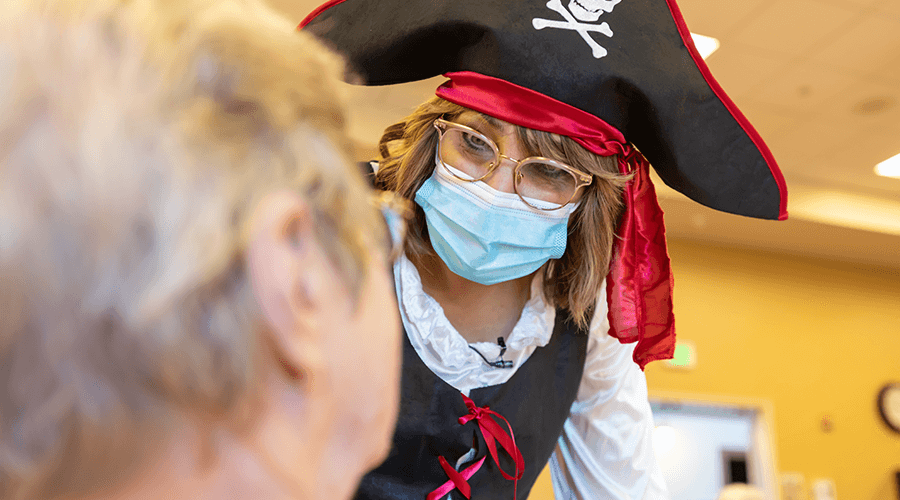 September 15, 2022Watch story
September 15, 2022Watch storyNursing home activity director becomes characters on stage
Dressing up is just part of a typical day for activities director Julie Schwab at Good Samaritan Society – Sunset Drive in Mandan, North Dakota. -
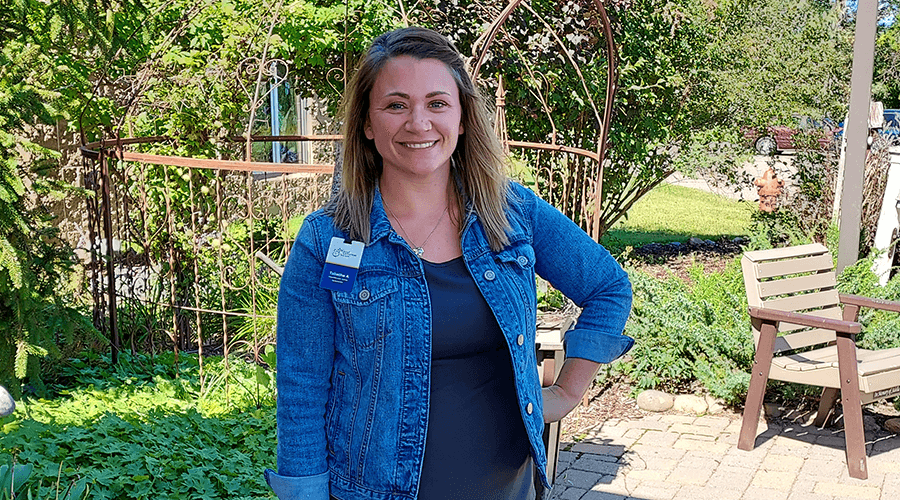 September 08, 2022Read story
September 08, 2022Read storySocial worker grateful to serve
When Tabatha Anderson went to college, she never dreamed it would be for social work. What started as a passion for teaching quickly turned into a passion for serving older adults. -
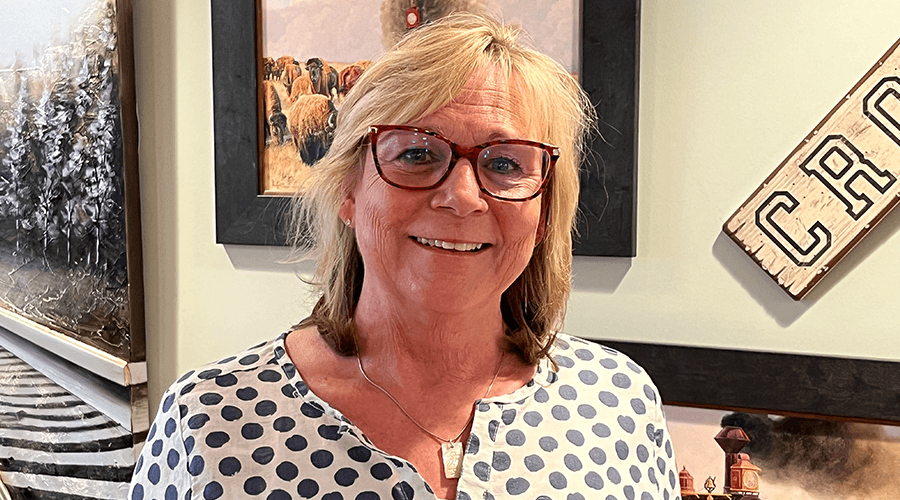 September 04, 2022Read story
September 04, 2022Read storyFriend's recommendation leads to fulfilling career
Holly Turner loves being able to greet residents with a smile and assist them with their needs in her role as senior living manager at Good Samaritan Society – Loveland. She’s also thankful for the care her family members have received there. -
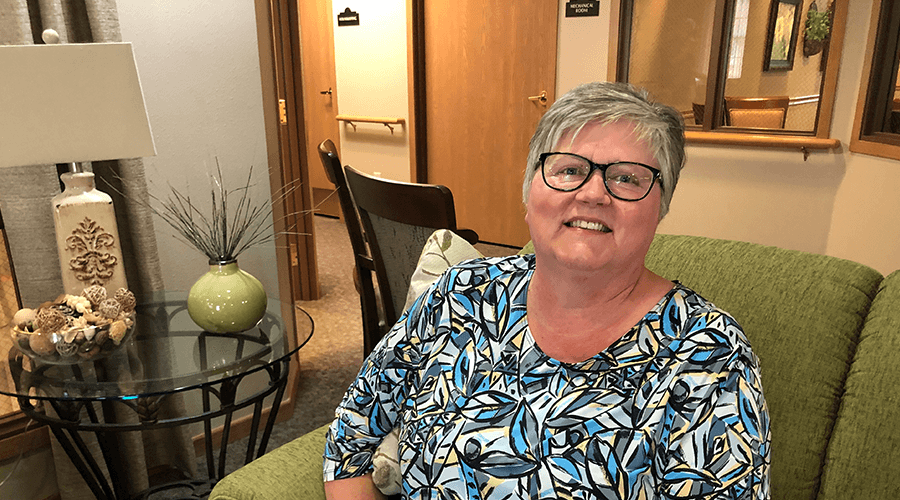 September 01, 2022Read story
September 01, 2022Read storyDedicated career spans four decades
A close relationship with her grandparents led Jo Planting to pursue a career in long-term care. Right out of high school, she decided to take a job as a nurse aide at Good Samaritan Society – Estherville in Estherville, Iowa. The feeling she got serving seniors confirmed that it was the right choice. -
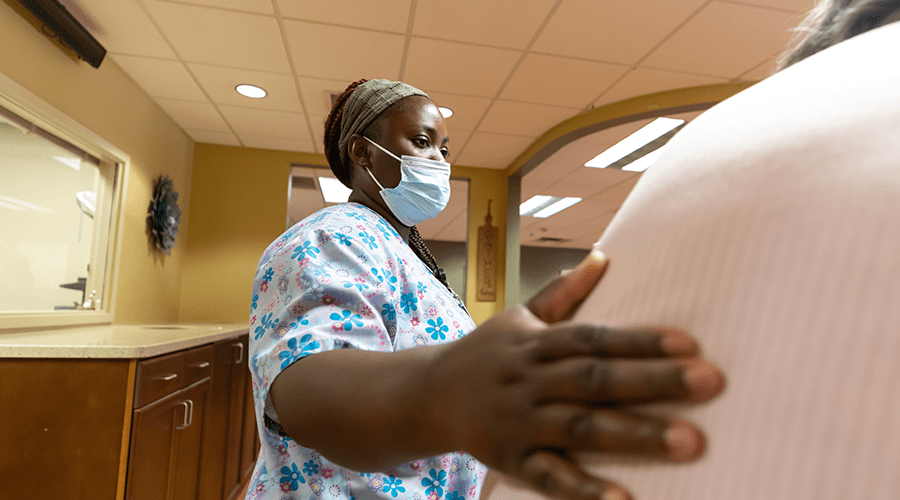 August 25, 2022Read story
August 25, 2022Read story100 acts of kindness celebrate 100 years of care
100 acts of kindness are taking place at Good Samaritan Society – Ottumwa in Iowa. Staff and residents are giving back this year to celebrate the 100 years the Good Samaritan Society has been blessing communities with much-needed health care. -
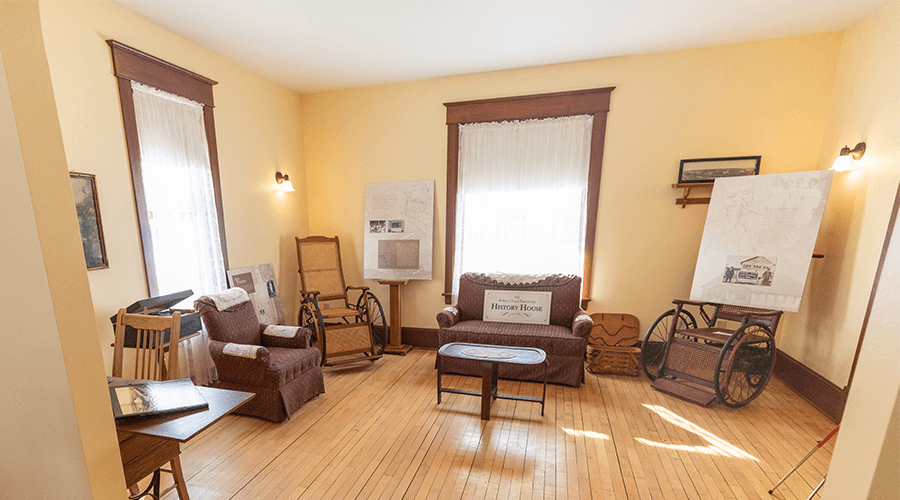 August 08, 2022Watch story
August 08, 2022Watch storyHistory House provides inspiration for future caregivers
Providing inspiration for future caregivers, the Arthur History House sits next to a prayer garden in Arthur, North Dakota. This home, rented for $20 a month in 1923, is the founding location of the Good Samaritan Society. -
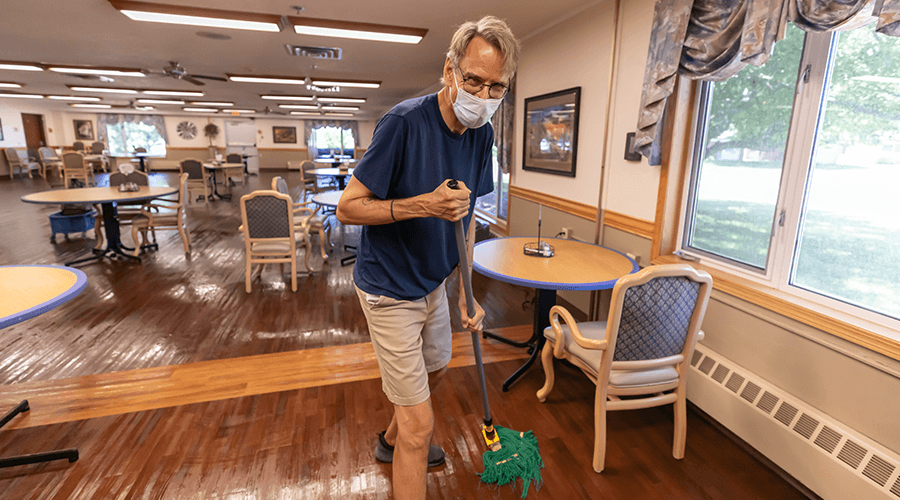 August 02, 2022Watch story
August 02, 2022Watch storyServing in environmental services is ‘pure blessing’
“I was very diligently trying to drink myself to death. I was very diligent about that," Stuart Twite, an environmental services technician at Good Samaritan Society - De Smet, says. After getting help five years ago and surrendering to God, the former history teacher is now finding fulfillment cleaning residents' rooms, doing laundry and leading chapel. -
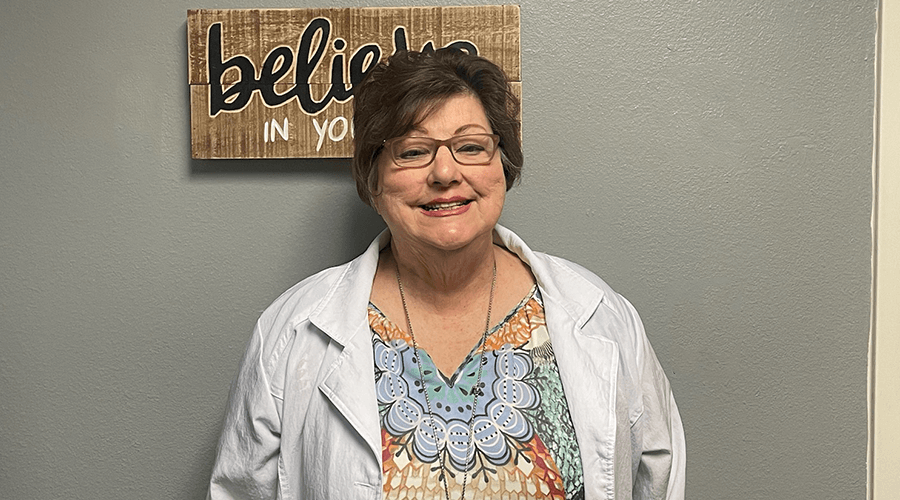 July 13, 2022Read story
July 13, 2022Read storyNurse “comes home” to the Good Samaritan Society
As a young woman, Millie Sexton started her nursing career at the Good Samaritan Society. Decades later, she’s delighted to be back as an interim director of nursing and thankful that the organization continues to put residents first. -
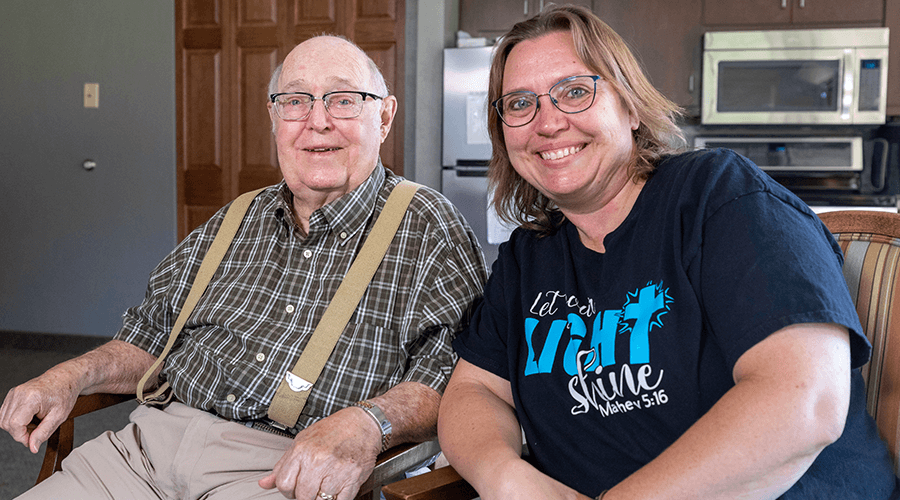 July 12, 2022Watch story
July 12, 2022Watch storyNurse carries on dad’s legacy in De Smet
From growing up at the Good Samaritan Society's De Smet location to getting married in its chapel, Darcy Miller's family has quite a few meaningful connections to the location in rural South Dakota. Now, she's carrying on her dad's legacy at the nursing home with quality care. -
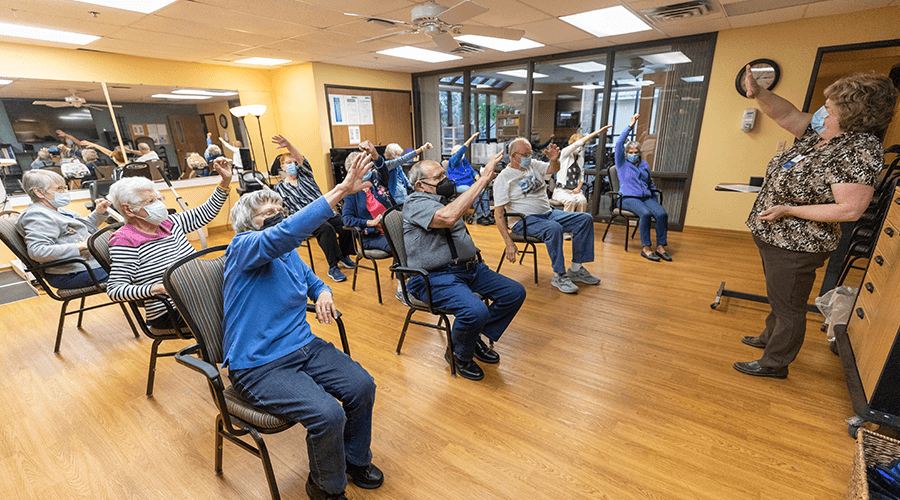 July 03, 2022Watch story
July 03, 2022Watch storyCounty partnership improves life in long-term care
The Good Samaritan Society in Waconia, Minnesota, is partnering with Carver County Public Health to improve the quality of life of its residents. Life enrichment director Denise Leonhardt and her team work with county officials to bring engaging activities, healthy food offerings and education to campus. -
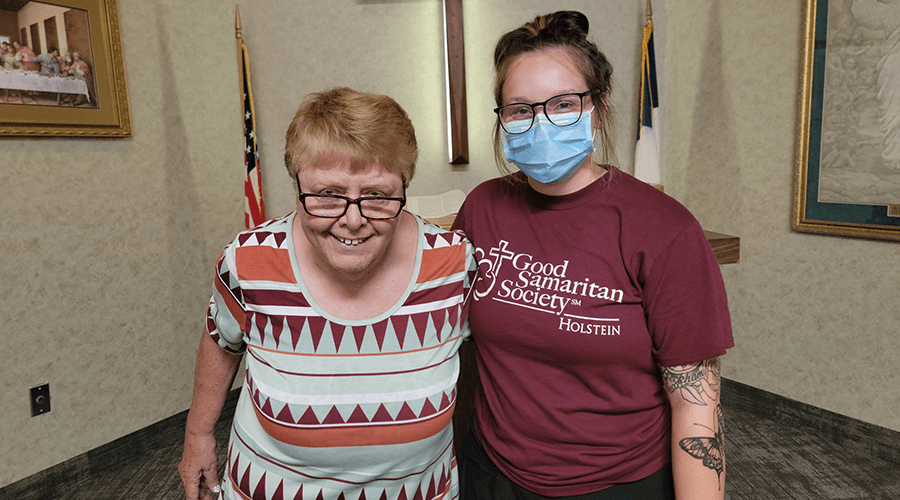 July 01, 2022Read story
July 01, 2022Read storyMcKenzie Hauptmann finds her niche as a CNA
Certified nursing assistants like McKenzie Hauptmann hold a special place in the hearts of residents at the Good Samaritan Society. -
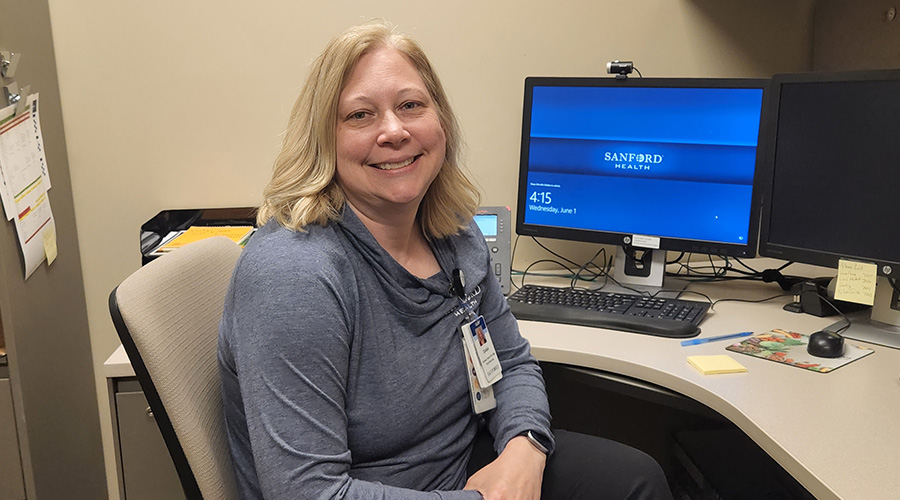 June 21, 2022Read story
June 21, 2022Read storySociety holds a special place in Diana Orn’s heart
Diana Orn’s career has come full circle. She began working for the Good Samaritan Society in 2003. Her team supported her during a difficult time. Years later, she works for Sanford Fargo Medical Center where she uses the skills she learned at the Society to lead her team. -
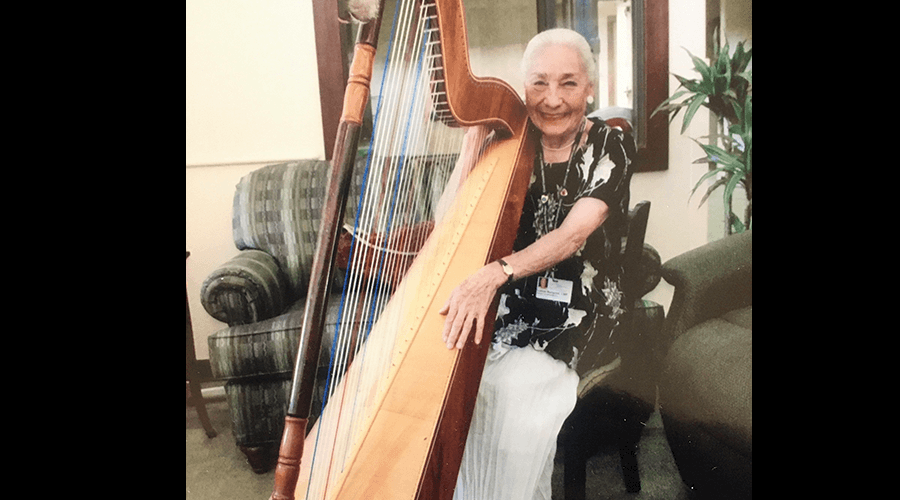 June 17, 2022Watch Story
June 17, 2022Watch Story87-year-old harpist plays for patients in hospice
Professional harpist Luana Mangold is retiring after years of comforting patients and families at Good Samaritan Society - Prescott Hospice and Marley House in Arizona. Before she can hang up her harp, Luana is being recognized for her efforts as the National Ever Forward Volunteer Champion. -
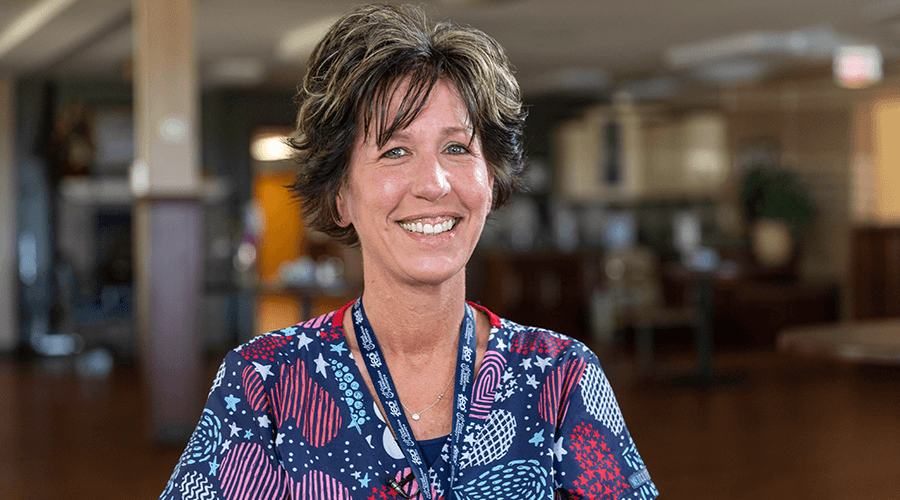 June 17, 2022Watch Story
June 17, 2022Watch StoryNurse’s leadership is critical during community crisis
“She is the rock that holds this place together,” Darla Scribner, RN, says about Good Samaritan Society - Scotland nursing leader Rebecca Pedersen. “Her whole heart is in this business. And it’s not a Monday-Friday type of situation. We’ve been through a lot of hard times in the last few months. She was there for us all.” -
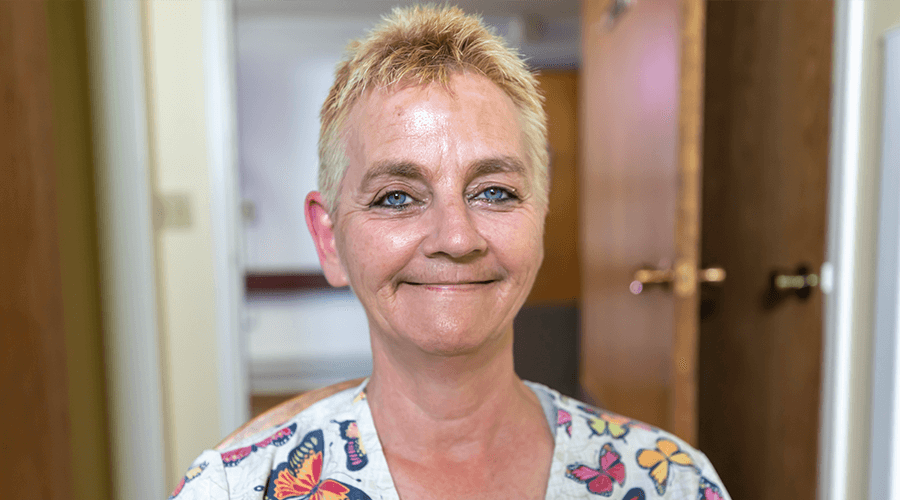 June 16, 2022Watch Story
June 16, 2022Watch StoryCNA earns national award for 30-plus years of caregiving
Good Samaritan Society CNA Denise Huddleson is marking 33 years with the organization this June with a major award. Denise is gaining recognition as the Society's National Ever Forward Caregiver Champion. -
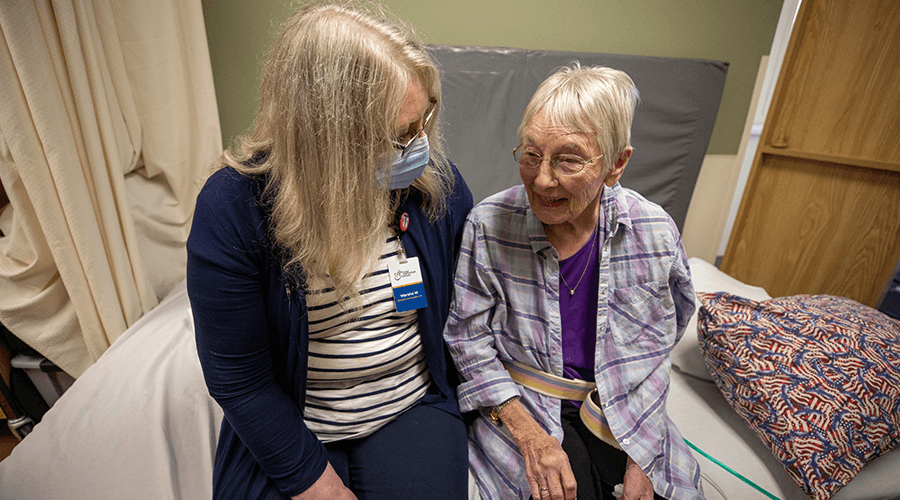 June 15, 2022Watch Story
June 15, 2022Watch StoryAfter broken foot, then COVID, RN finds way to help others
After 37 years with the Good Samaritan Society, Marsha Moestchen, RN, is still passionate about serving residents and her teammates. Despite breaking her foot and coming down with COVID-19 in early 2021, Marsha still found ways to help her center from home. Her dedication is gaining her recognition as the National Ever Forward Leadership Champion. -
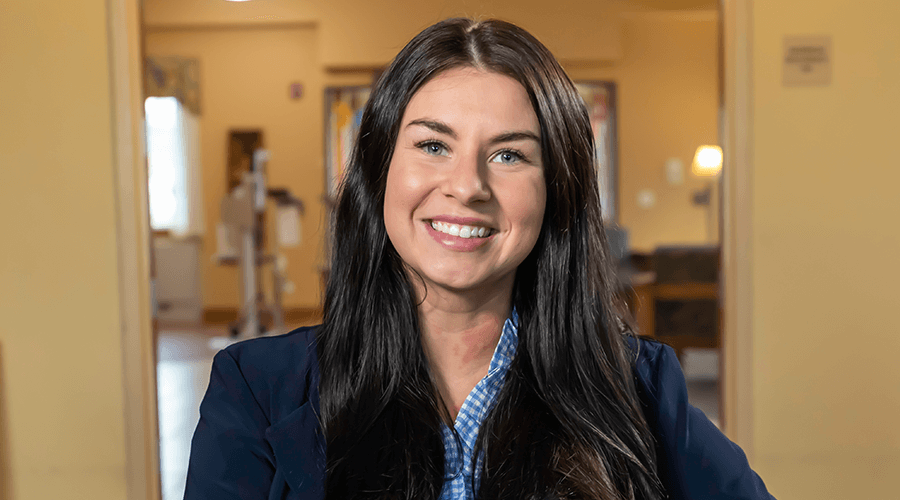 June 15, 2022Watch Story
June 15, 2022Watch Story‘I would never guess she’s a new administrator’
Clara Palm got her start at the Good Samaritan Society as a certified nursing assistant when she was in high school. Her love for the elderly led her to the Society's administrator-in-training program and her first leadership role at the Society's center in Austin, Minnesota. At 23, she's already making a huge impact on the lives of residents and staff members. -
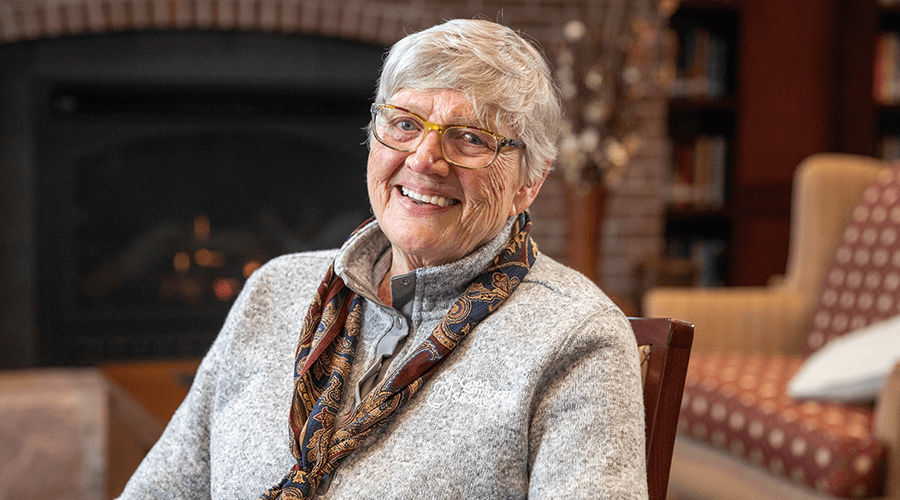 June 14, 2022Watch Story
June 14, 2022Watch StoryJudy Ryan instilled a focus on quality care and education
The fifth president and CEO of the Good Samaritan Society (1998-2003) hasn’t really left the organization. Judy Ryan, RN, PhD, FAAN, lives across the street from National Campus at Good Samaritan Society – Prairie Creek in Sioux Falls, South Dakota. -
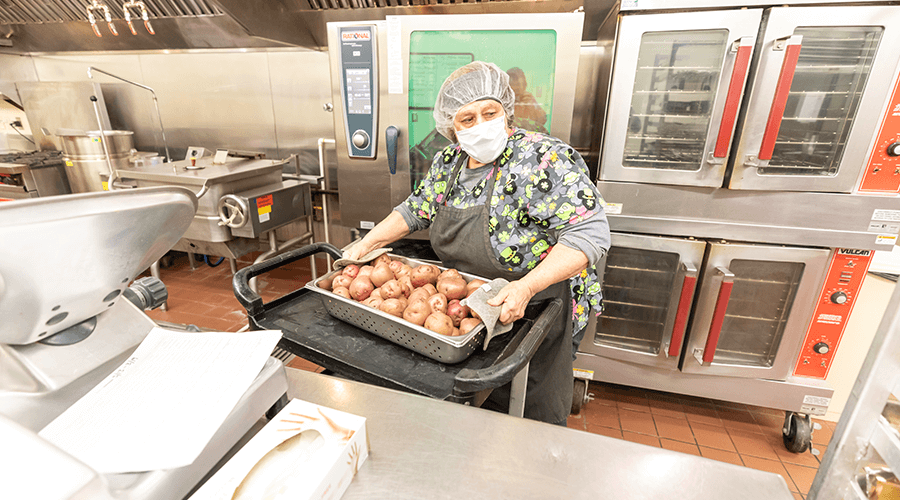 May 25, 2022Watch Story
May 25, 2022Watch StorySpecialty care workers live legacy of Good Samaritan Society
Six employees with more than 40 years of service help lead an experienced team at the Good Samaritan Society - Specialty Care in Robbinsdale, Minnesota. Meet a few of our incredible team members. -
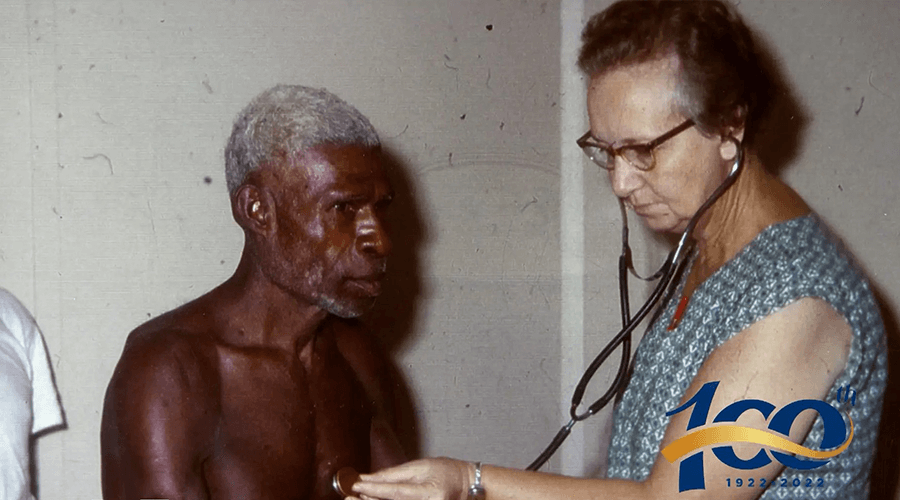 May 24, 2022Watch Videos
May 24, 2022Watch VideosBetty Hoeger remembers her father-in-law and the early days of the Society
Learn about the early days of the Good Samaritan Society from someone who was there. Betty Hoeger is the daughter-in-law of the Rev. August “Dad” Hoeger, the Society’s founder. Watch the videos to hear her story. -
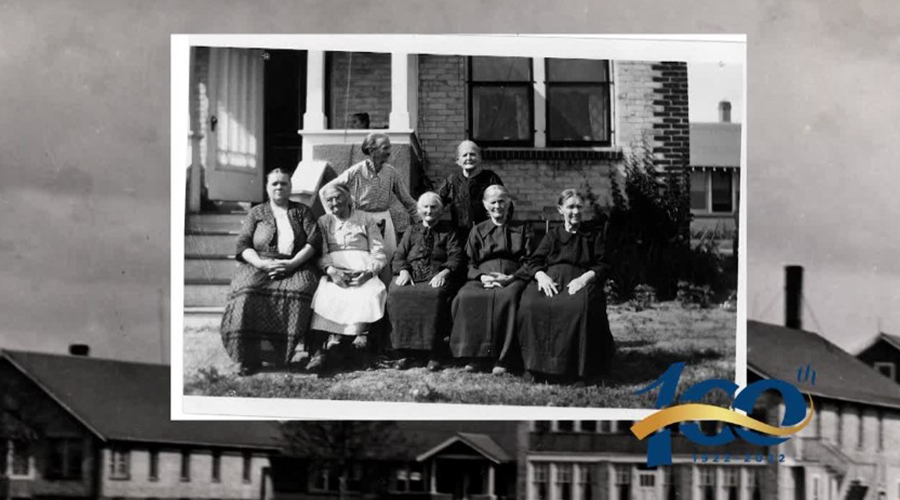 May 24, 2022Watch Videos
May 24, 2022Watch VideosLaura Jerstad remembers her dad and the Society
Laura Jerstad is the daughter of the Society’s founder, the Rev. August “Dad” Hoeger. Watch the videos to learn about the early days of the Good Samaritan Society and her memories of her father. -
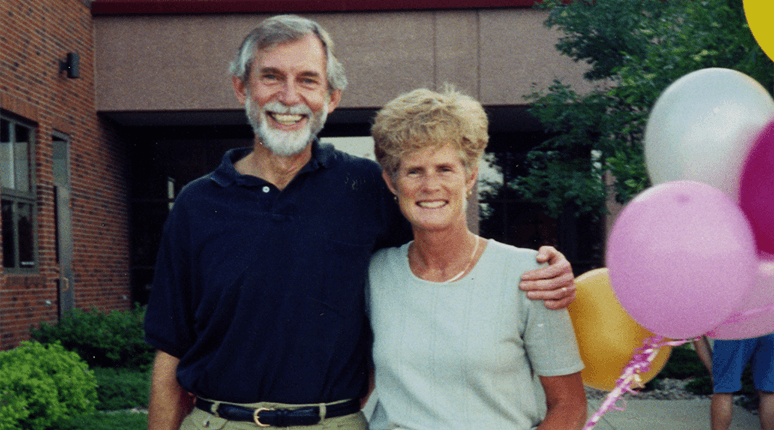 May 17, 2022Read story
May 17, 2022Read storyLeading the Society was 'dream job' for Mark Jerstad
Grandson of the Good Samaritan Society’s founder August “Dad” Hoeger, Mark Jerstad grew up with the Society’s mission of serving others in his heart. Earning his dream job as the organization’s president and CEO in 1989, Mark cherished the role to the day he died from colon cancer in 1997 at the age of 54.
-
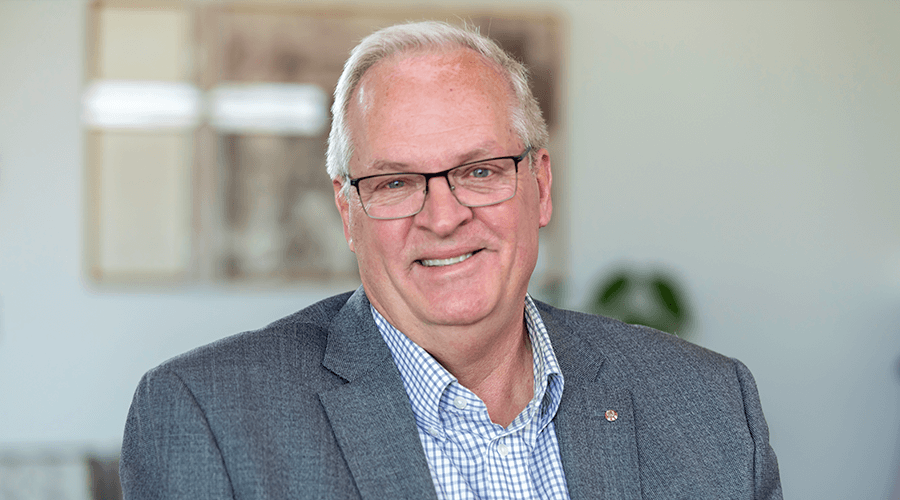 May 13, 2022Watch Story
May 13, 2022Watch StoryFormer Society leader proud to be part of 100-year history
Dave Horazdovsky retired after 42 years serving residents in many roles, including CEO of the Good Samaritan Society. -
 May 09, 2022Watch Story
May 09, 2022Watch StoryVeteran scholarship helps Society nurse continue education
The Good Samaritan Society and Sanford Health are proud to hire veterans such as Kalli Koepplin. The integrated health system believes hiring or developing nurses who have a military background enhances workplace culture. -
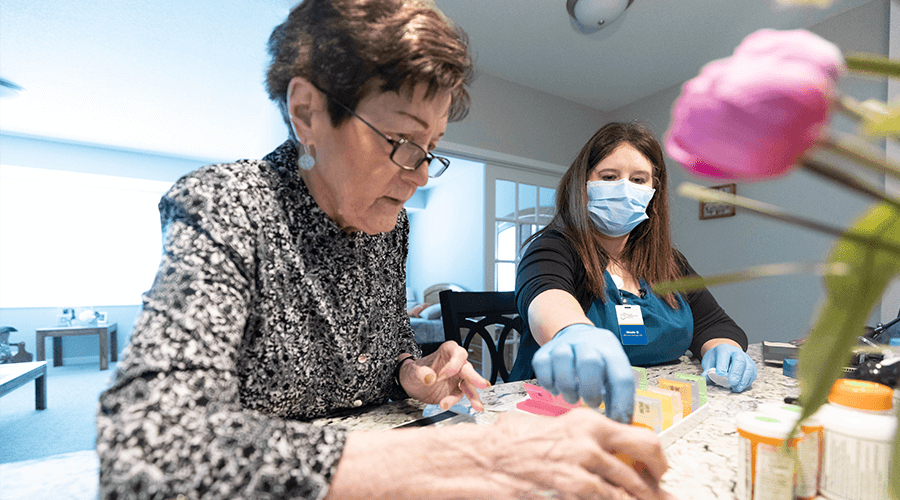 May 04, 2022Watch Story
May 04, 2022Watch StoryRN pivoted from photojournalist to award-winning nurse
After a four-year degree in photojournalism provided few career opportunities, Nicole Bock, RN, is pivoting to a passion for nursing. Her hard work is being honored with The DAISY Award for Extraordinary Nurses. -
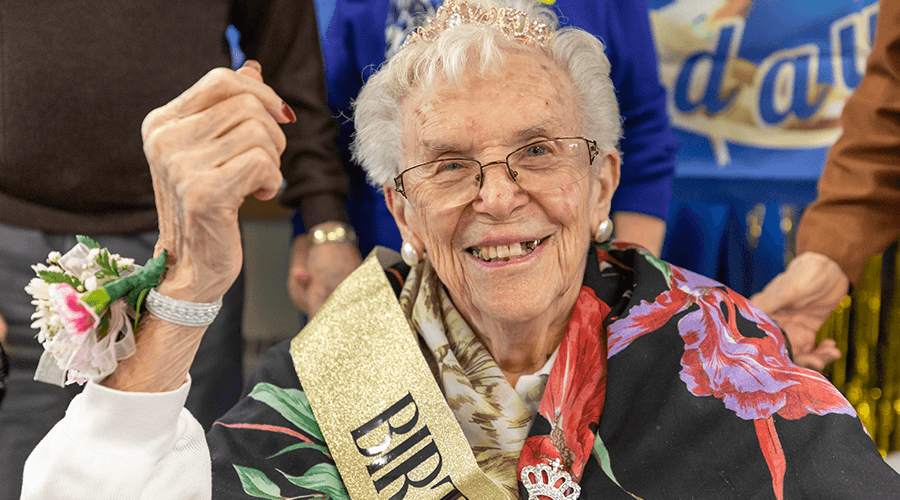 April 29, 2022Watch Story
April 29, 2022Watch StoryNursing home hosts ‘century march’ for 100-year-olds
100 years is a crowning achievement and a good excuse for the parade of the century at Good Samaritan Society – Windom in Minnesota. -
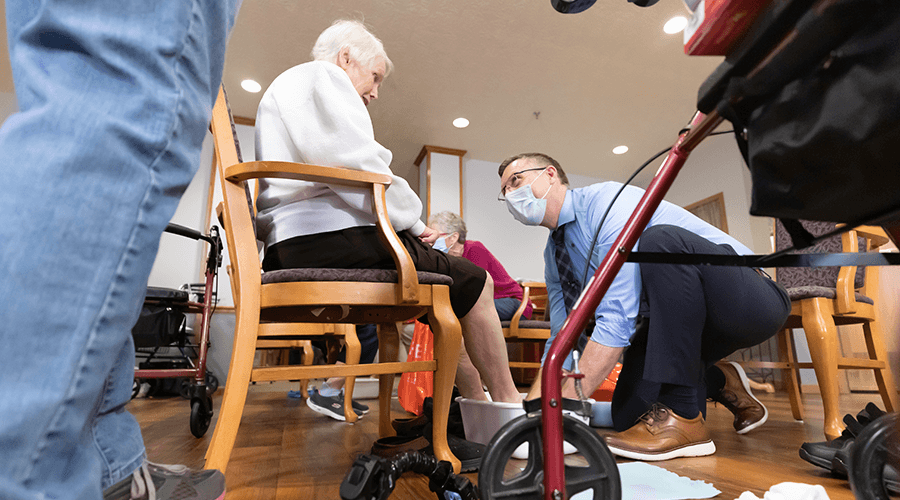 April 28, 2022Watch Story
April 28, 2022Watch StorySamaritan’s Feet treats seniors to foot washing & footwear
The Good Samaritan Society and Samaritan’s Feet International. Sounds like perfect partners for providing seniors with proper footwear. -
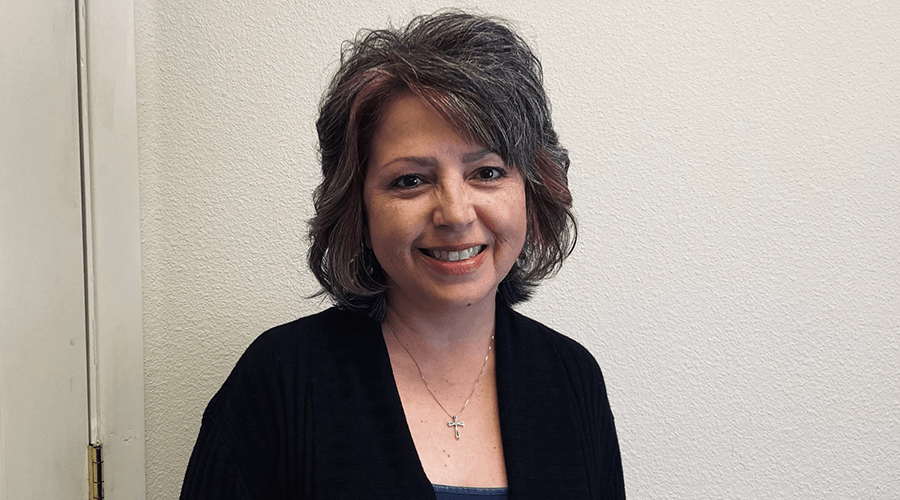 April 20, 2022Read story
April 20, 2022Read storySociety mission trip inspires employee to give back
After returning from a Society mission trip, employee Paula Sedillo decided to start a non-profit that supplies shoes to small children. -
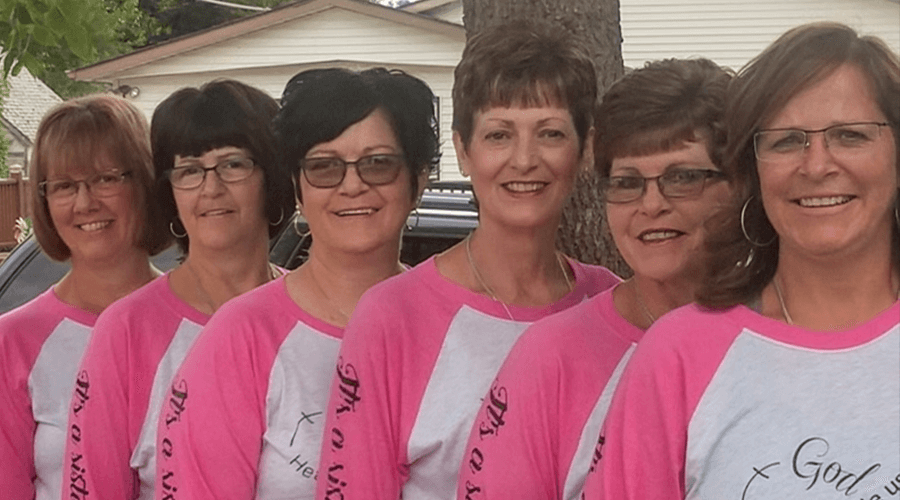 April 19, 2022Read story
April 19, 2022Read storySisters with a connection to the Society
A close bond brought Shari Buettner and her sisters to work at Good Samaritan Society – Albion. Decades later, Shari continues to serve residents. -
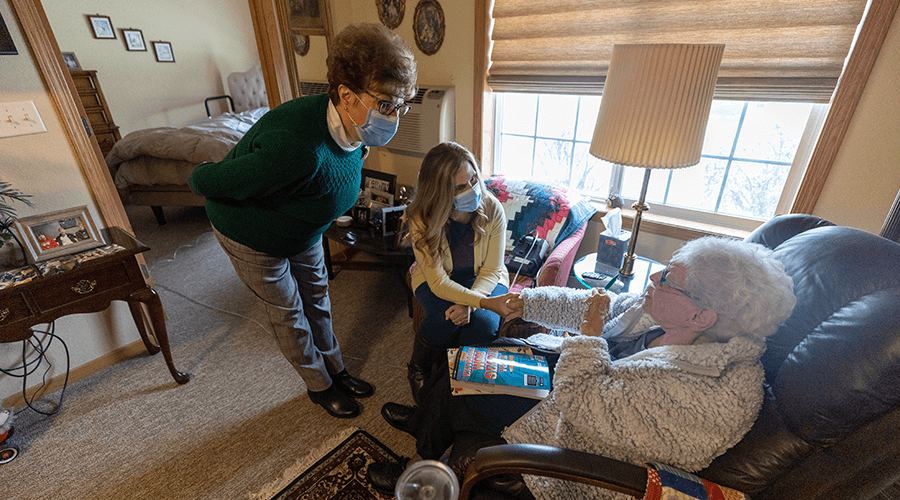 April 13, 2022Watch Story
April 13, 2022Watch StoryNebraska nurse a third-generation ‘Good Samaritan’
When Abby Stukenholtz father, Darrold Nies, died, her family and the community of Auburn, Nebraska, were devastated. Darrold, a Good Samaritan Society administrator, was a fixture in the rural town. Abby is honoring his memory through her service at the Society. She's far from the only family member with ties to the Good Samaritan Society's nearly 100 year history. -
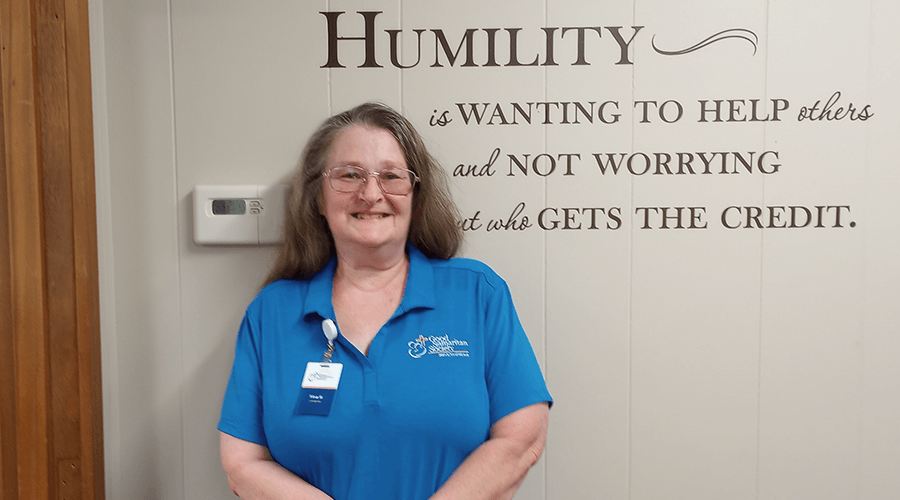 April 11, 2022Read story
April 11, 2022Read storyHome-based caregiver helps seniors share legacies
In its hundredth year, the Good Samaritan Society is celebrating the people who make it a great place to live and work. -
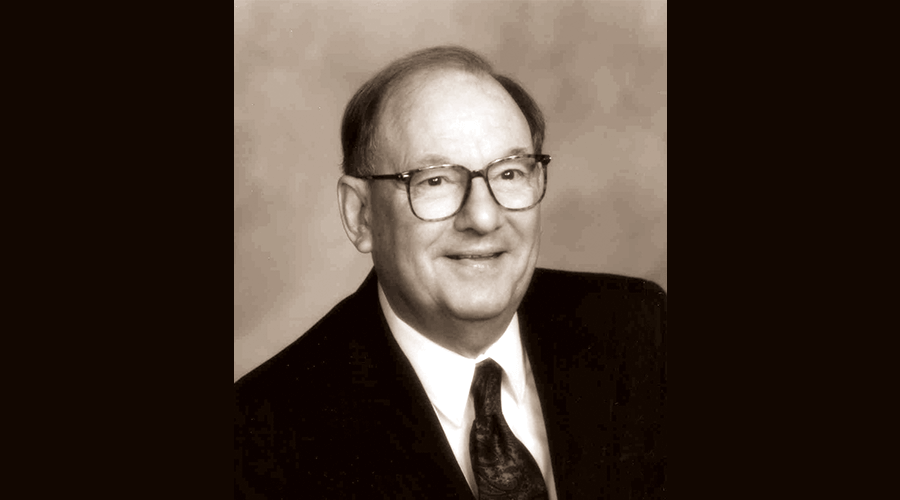 April 11, 2022Read story
April 11, 2022Read storyInterim Society president filled role at a crucial time
Charles Balcer played an important role in the Society’s history when he stepped in as interim president in 1997 -
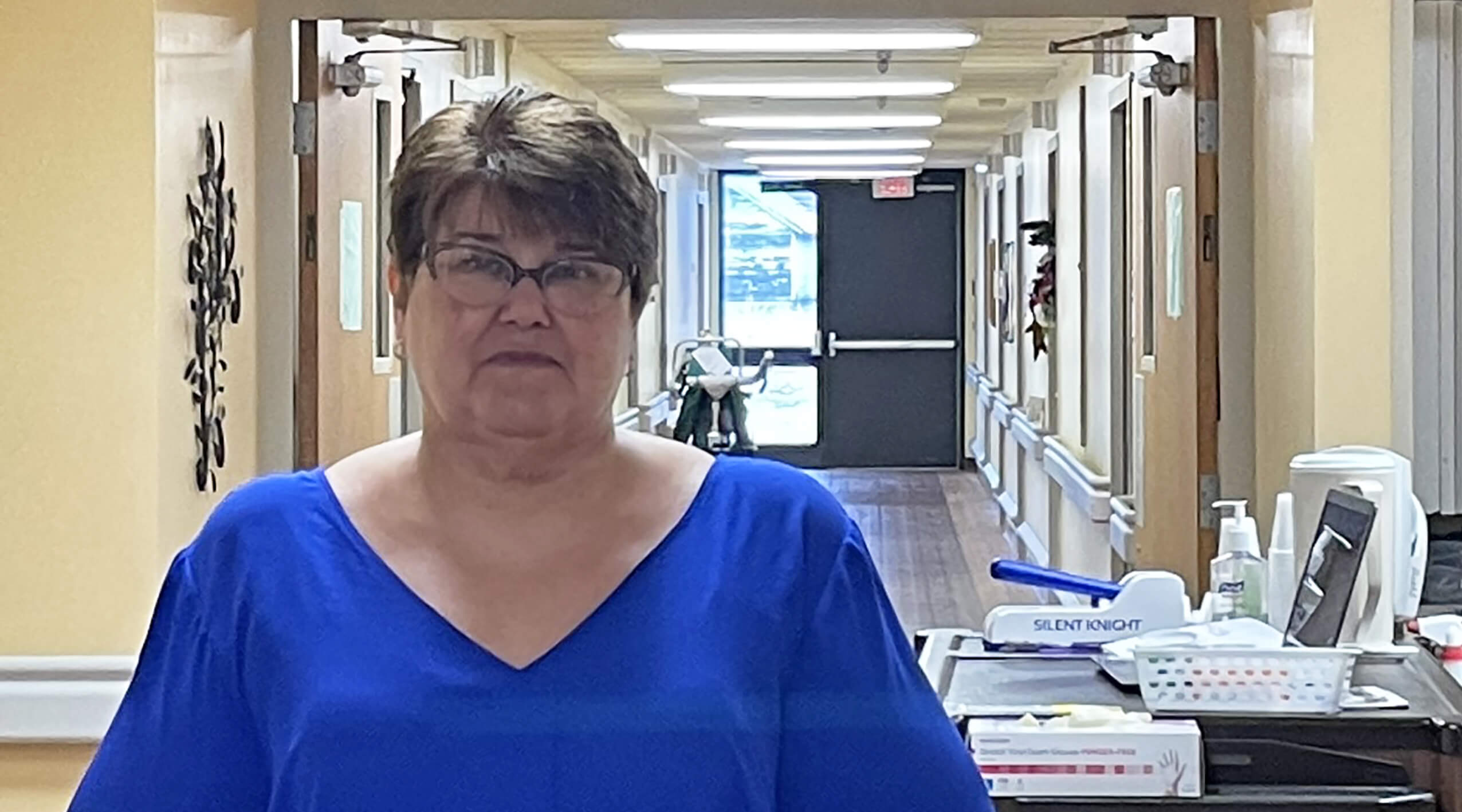 April 07, 2022Read story
April 07, 2022Read storyNurse remembers Society founder's calling and her own
Five years ago, Judy Parvin heard a fascinating story while sitting at a resident's bedside. It sounded all too familiar to her. -
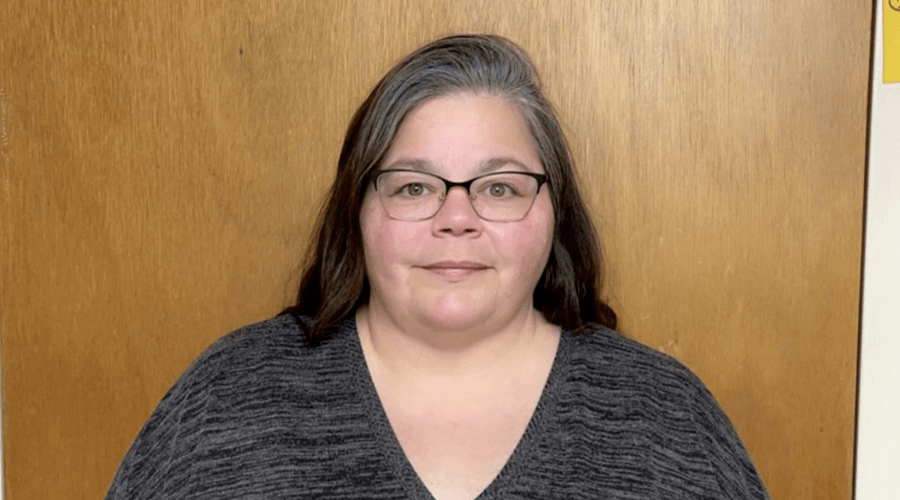 March 31, 2022Read story
March 31, 2022Read storyExceptional technician at the Society always takes on more
As the Society turns 100, we’re shining a spotlight on the people who make the organization exceptional. Meet Amanda Frazier and her tireless dedication. -
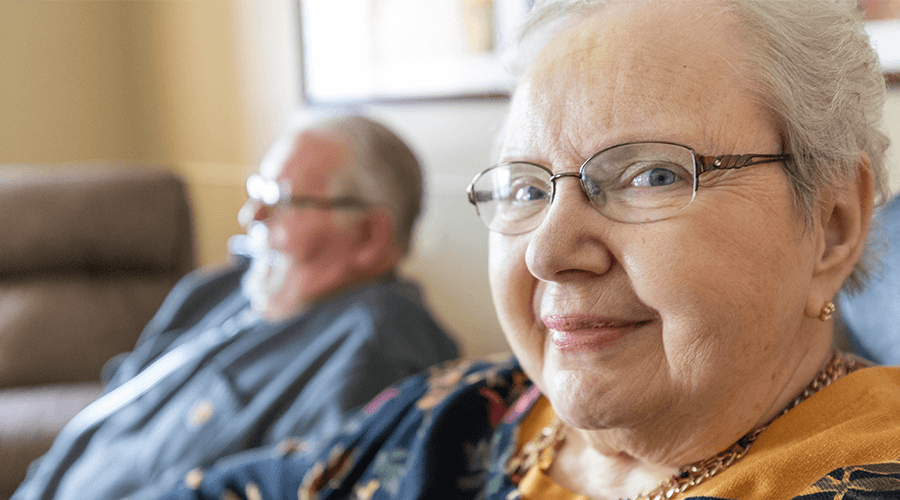 March 30, 2022Watch story
March 30, 2022Watch storyNursing home provides room for later-in-life love story
After falling in love, a pandemic and physical separation couldn't sink Peggy and Doug's relationship. Hear how the two met at the Good Samaritan Society and are sticking together to this day. -
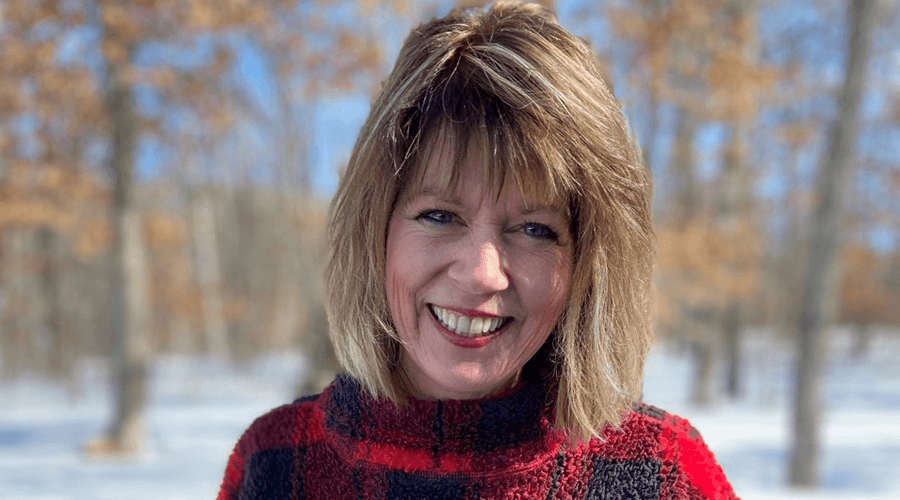 March 16, 2022Read story
March 16, 2022Read storyGrandmother's love spurs a lifelong career with the Society
Read how an encouraging word from her grandmother led one Good Samaritan Society employee into a life of service. -
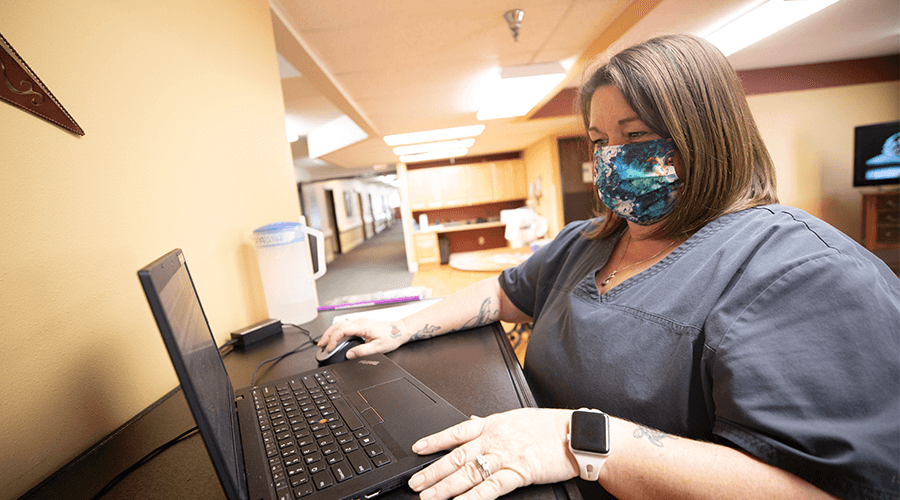 March 15, 2022Watch story
March 15, 2022Watch storyOriginal North Dakota location provides pandemic relief
The Good Samaritan Society is returning to its roots in Arthur, North Dakota, to provide care to those in need during the pandemic. -
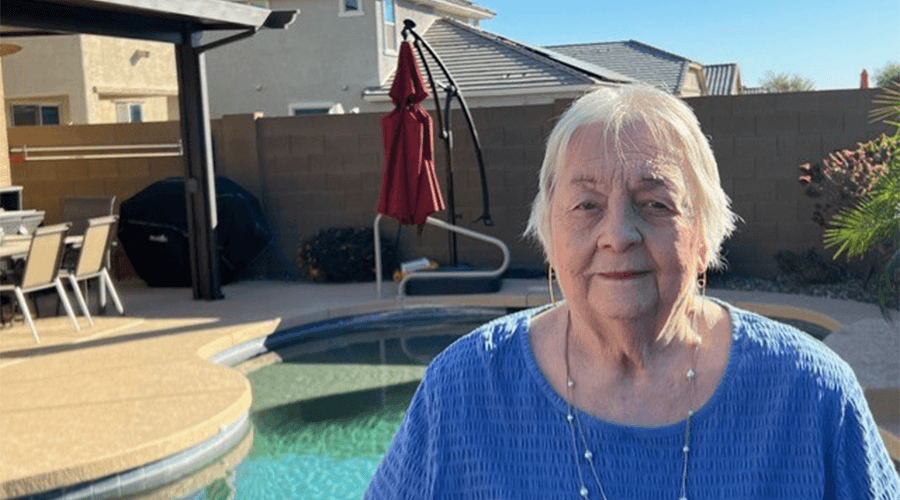 March 04, 2022Read story
March 04, 2022Read storyNurse remembers dream job at the Society
Lynn Assimacopoulos didn’t realize it at the time, but being laid off from her job as a hospital staff nurse would be one of the best things that could’ve happened to her. -
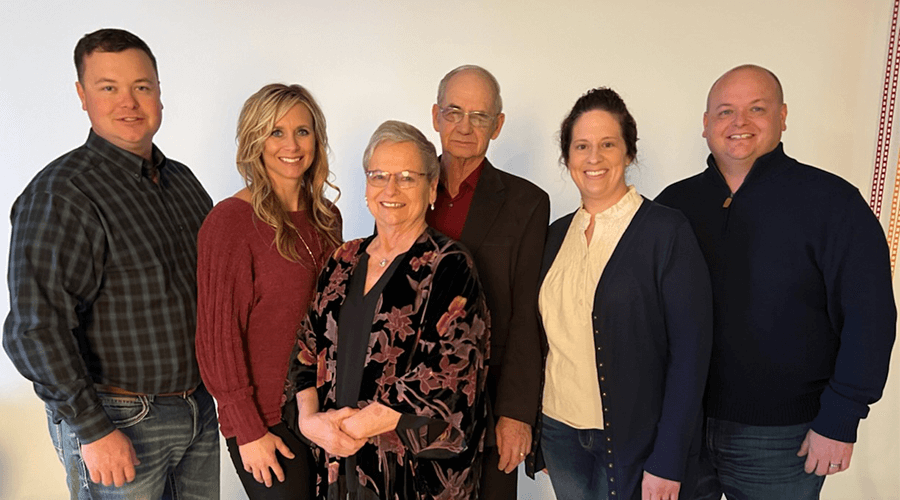 March 02, 2022Watch story
March 02, 2022Watch storyService is generational for Scholz family
Mary Ellen Scholz is nearing 44 years of service at the Society. She shares a passion for residents with her husband and three children. All have worked at Good Samaritan Society - Atkinson in Nebraska. -
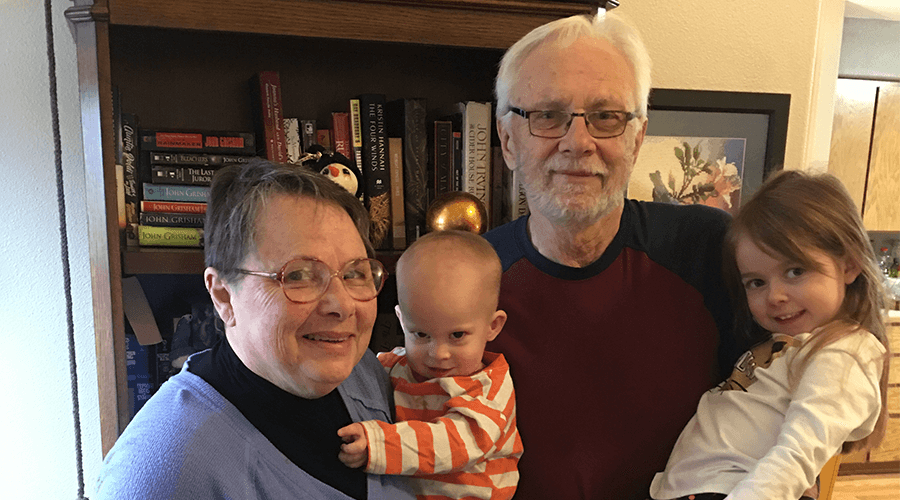 March 01, 2022Read story
March 01, 2022Read storyReinfelds family plays an important role in the Society's history
As a 5-year-old, Uldis Reinfelds and his family were sponsored by the Good Samaritan Society to come to the U.S. His parents served as administrators for the next 31 years. Uldis also worked for the Society for several decades until retiring in 2010. -
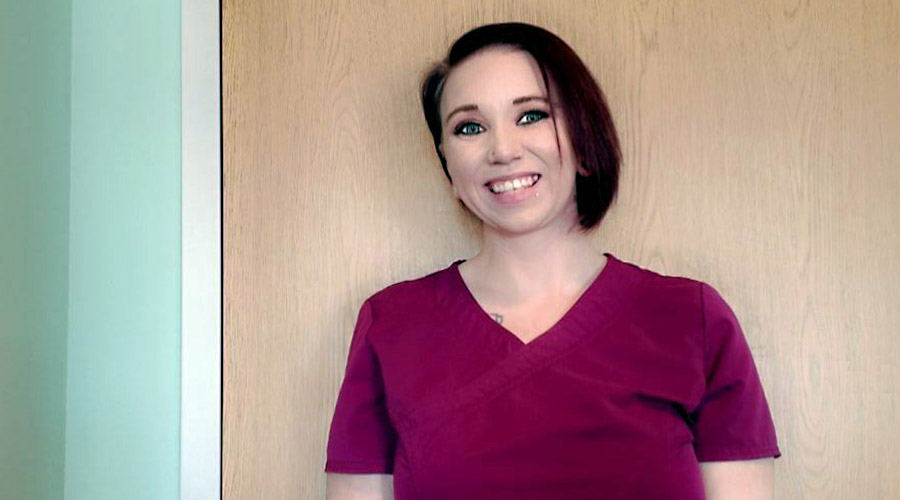 February 17, 2022Read story
February 17, 2022Read storyHousekeeping supervisor embodies Society’s century-old values
In year 100, we’re recognizing employees who help make the Society a great place to live and work. Kori Madche is one of many. -
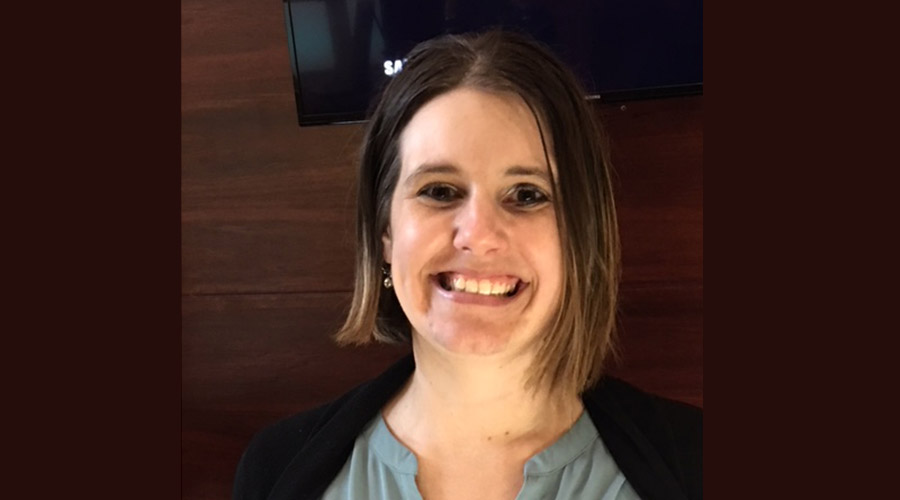 February 16, 2022Read story
February 16, 2022Read storyChildhood passion leads to compassionate career
When Lindsey Kitchen was a child, a friendship sparked her interest in senior care. Now, she’s an exceptional team member at the Good Samaritan Society. -
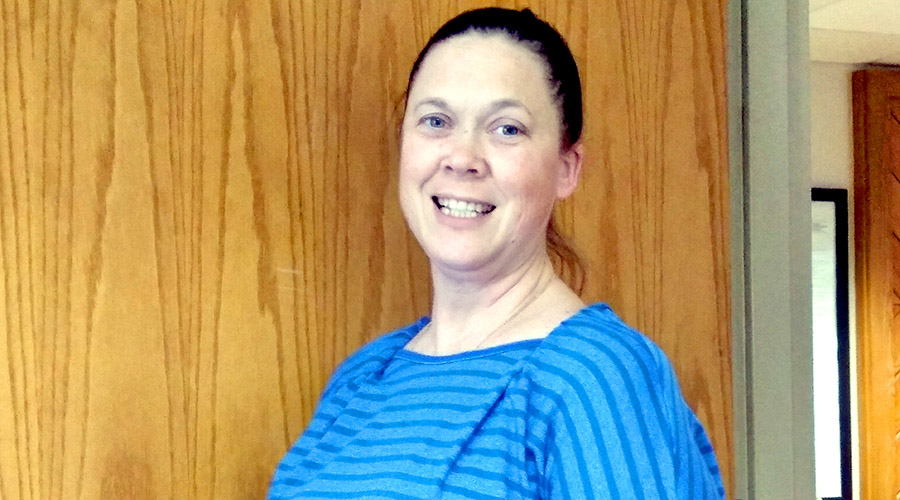 February 08, 2022Read story
February 08, 2022Read storyActivities assistant makes a difference one smile at a time
As the Society turns 100, we’re shining a spotlight on the people who make the organization exceptional. Meet Kimberly Burns and her infectious energy. -
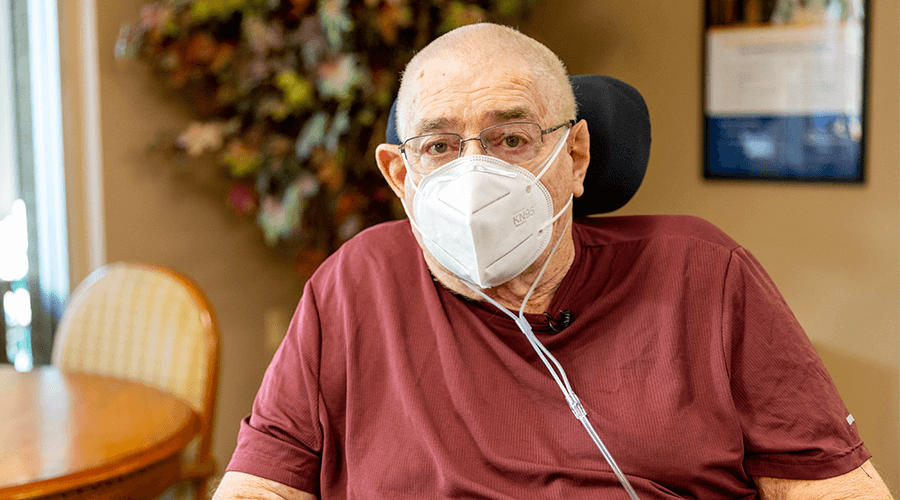 January 31, 2022Watch story
January 31, 2022Watch storyHigh COVID booster rates help residents stay safer
From day one, residents at the Good Samaritan Society have been early adopters of COVID-19 vaccines. Right now, more than 90% of Society residents are fully vaccinated and nearly 90% have received their booster shot. -
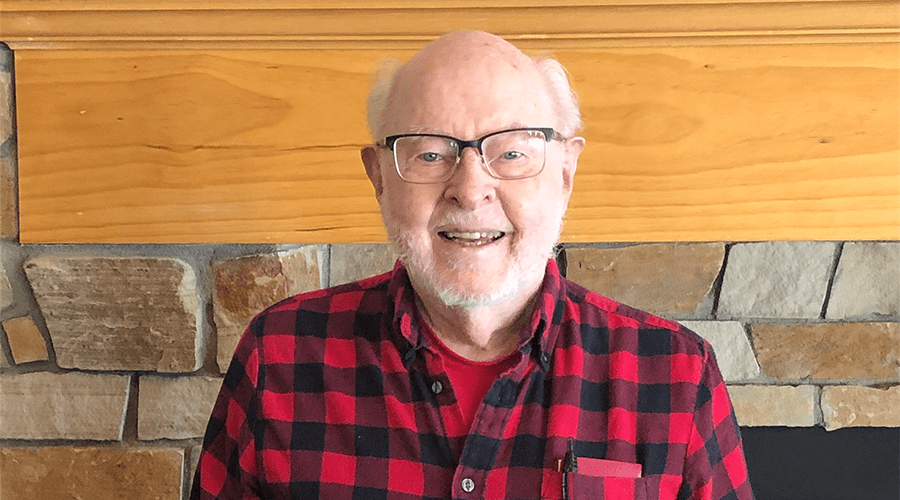 January 28, 2022Read story
January 28, 2022Read story19-year Society resident talks past and present
Roger Fjeld has lived at Good Samaritan Society – Estes Park longer than any other resident or staff member. But his ties to the organization don’t end there. Read about his connection to our founder and Lutheran heritage. -
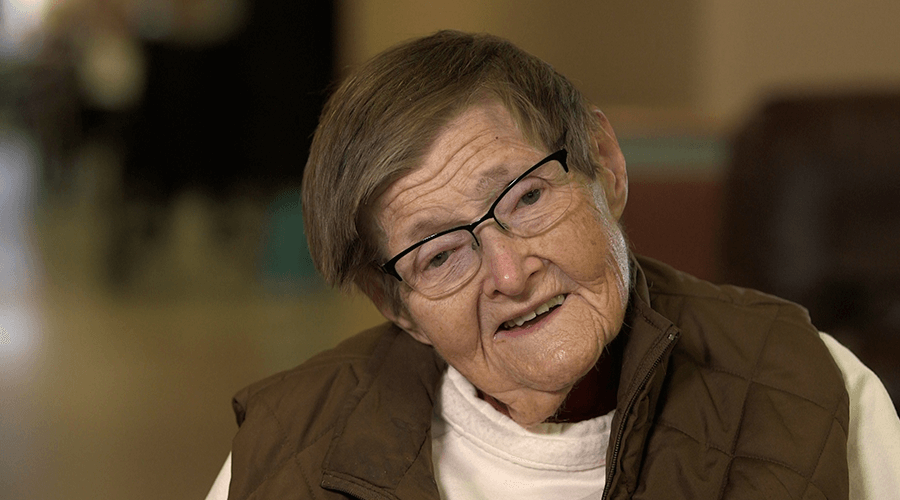 January 26, 2022Watch story
January 26, 2022Watch storyNurse, fundraiser nears retirement after 55 years of service
Mary Hannover began working when the long-term care facility opened in 1966. Over the past 55 years, she has become a key component of Good Samaritan Society - Algona's success. -
 January 21, 2022Watch story
January 21, 2022Watch storyStained glass with a past shines at Good Samaritan Society
In St. Paul, Minnesota, Good Samaritan Society - Maplewood features stained glass windows originally from Good Samaritan Society - Roseville, which closed in 2009. -
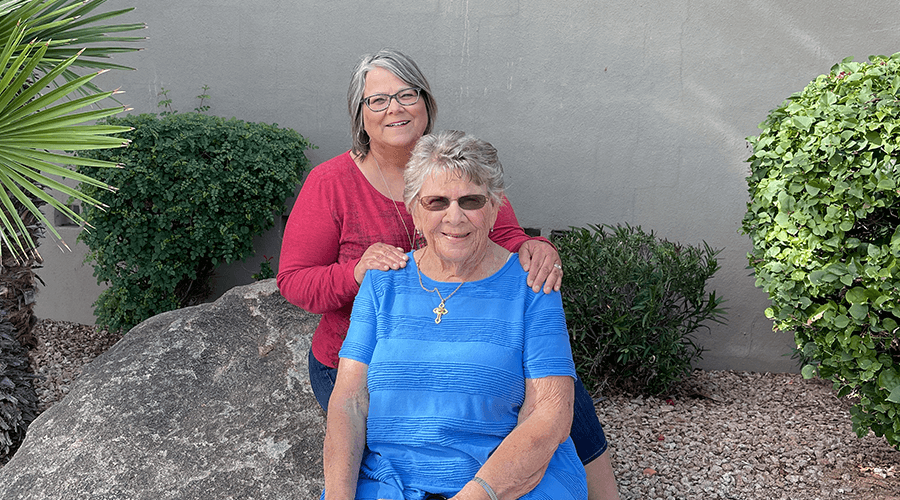 January 20, 2022Read story
January 20, 2022Read storyThree generations of women serve at Olathe location
One family served for more than five decades at Good Samaritan Society - Olathe in Olathe, Kansas. -
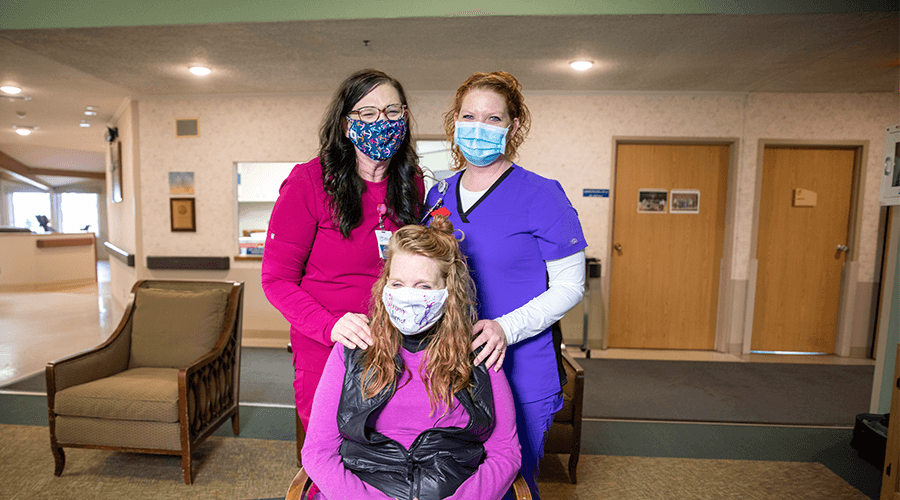 January 19, 2022Watch story
January 19, 2022Watch storyExperienced nurses save co-worker's life
Nurses Michelle Durant and Melissa Wolf won the July 2021 Daisy Award after saving the life of co-worker Gail Smith at Good Samaritan Society - Algona in Iowa. -
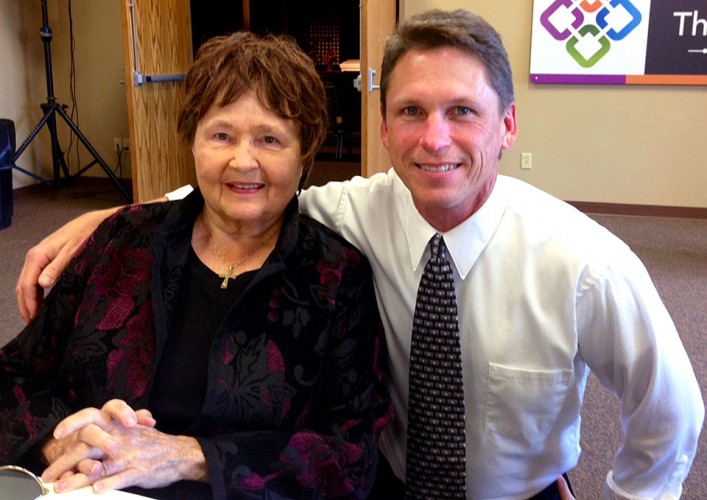 January 14, 2022Watch story
January 14, 2022Watch storyResponding to life changes as a dual caregiver
As a father of two children and a caregiver to his 84-year-old mother, Jim Erickson is what's called a sandwich generation caregiver. Read more about his story. -
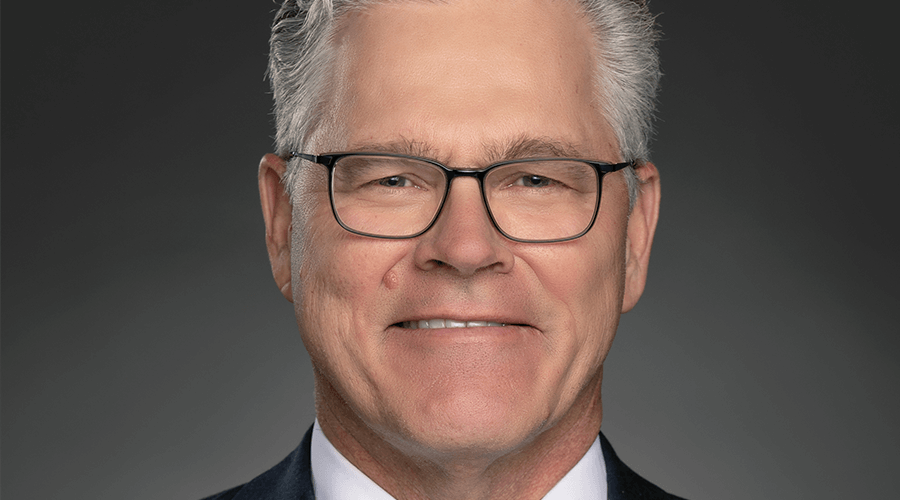 January 07, 2022Watch story
January 07, 2022Watch storySanford Health, Society leaders honor retiring Randy Bury
Serving in dozens of leadership positions over more than 40 years at Sanford Health and the Good Samaritan Society, Randy Bury has made an immense impact on both organizations. -
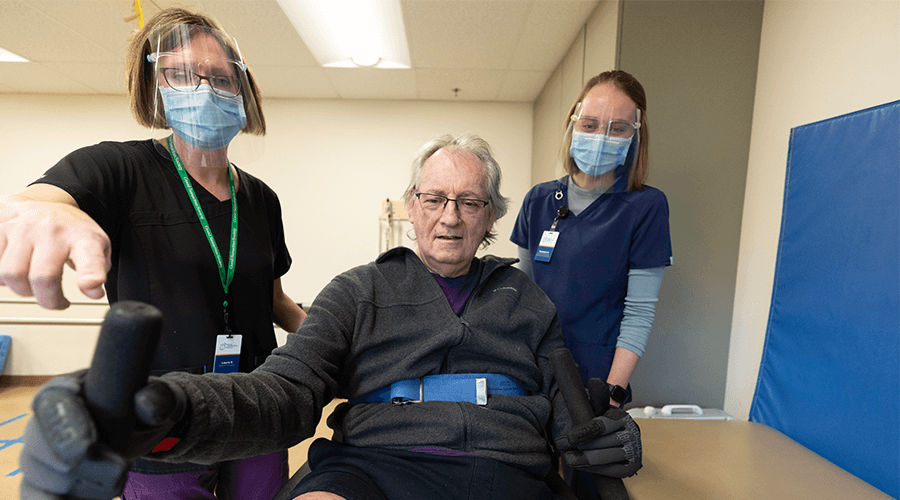 January 06, 2022Watch story
January 06, 2022Watch story'Team Lowell' gets 77-year-old on his feet and back home
After a year of rehabilitation, Good Samaritan Society - Maplewood resident Lowell Abele walks out on his own. -
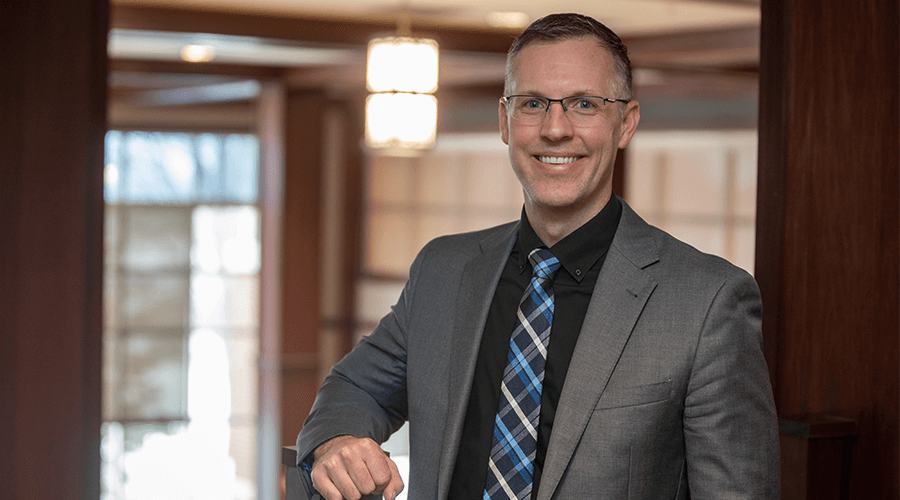 January 05, 2022Watch story
January 05, 2022Watch storyGood Samaritan Society’s new CEO is a familiar face
Most recently the Society's vice president of operations, Nate Schema is now the Society’s president and CEO as of Jan. 1, 2022. Nate is taking over for Randy Bury who retired at the end of 2021. -
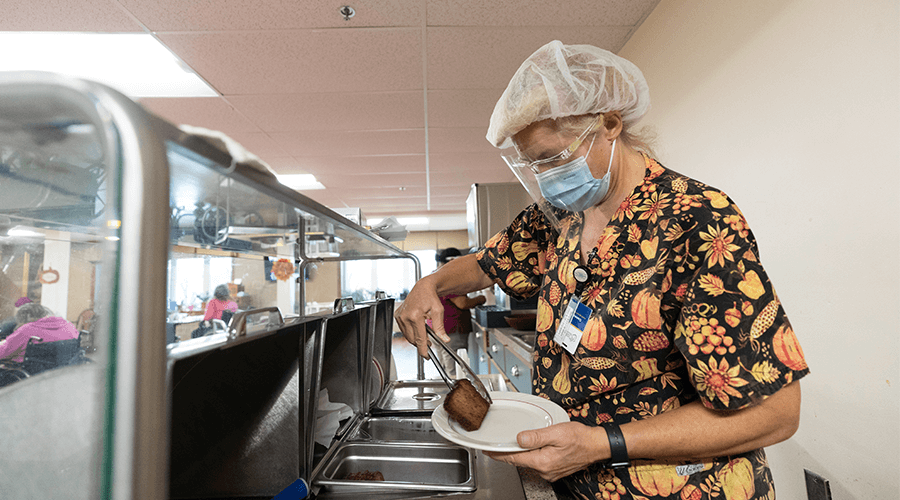 January 05, 2022Watch story
January 05, 2022Watch storyThree neighbors spend 40+ years serving up food, friendship
Good Samaritan Society - Maplewood in St. Paul, Minnesota, features an experienced staff, including six employees who have more than 40 years of experience. It's tied for the most in the organization. -
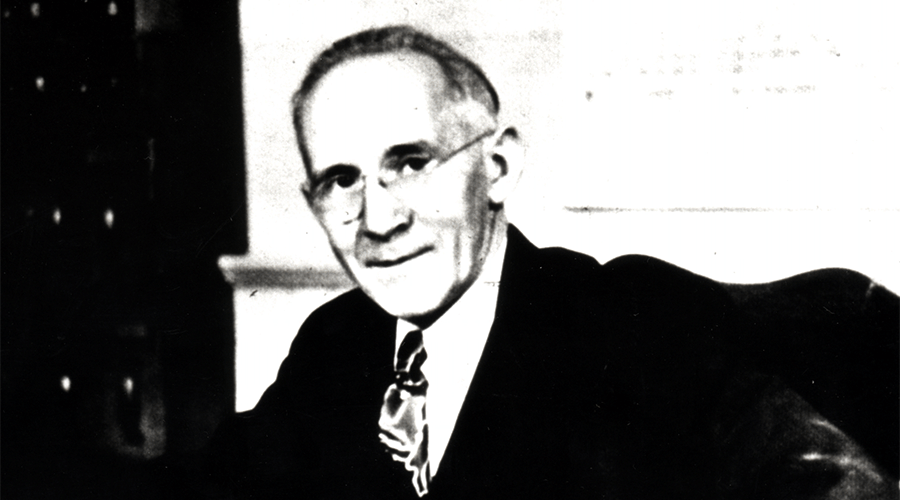 December 27, 2021Read story
December 27, 2021Read storyGood Samaritan Society founder: The Rev. August “Dad” Hoeger
The Rev. August "Dad" Hoeger began the Good Samaritan Society to provide homes where people could feel loved and cared for. 100 years later, the Society strives to continue that mission. -
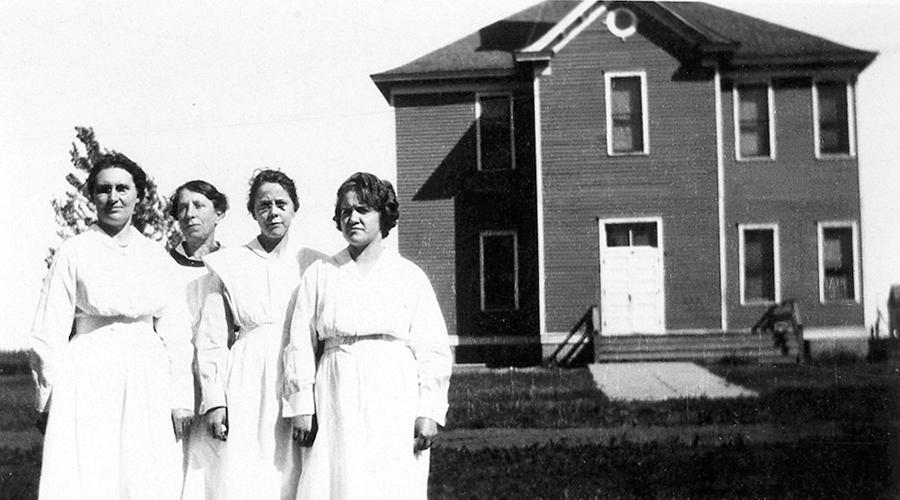 December 22, 2021Watch story
December 22, 2021Watch storyAs Society grows, mission to serve remains at heart
Sharing the “why” behind the work of the Good Samaritan Society is front and center as the organization climbs towards 100 years of service. -
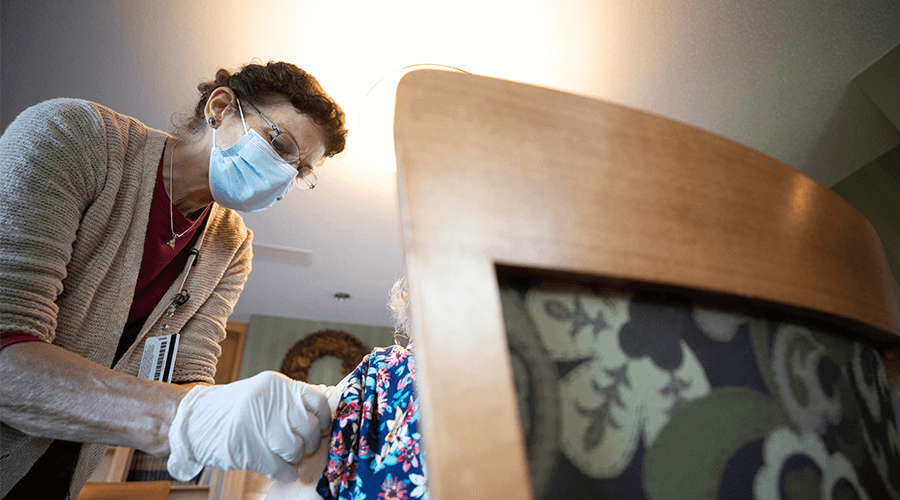 December 14, 2021Watch story
December 14, 2021Watch story'Jean Team' part of an award-winning home health crew
Led by Jean Petitti, Good Samaritan Society - Spirit Lake Home Health is bringing nursing care along with physical, occupational and speech therapy to clients in nine counties. -
 December 06, 2021Watch story
December 06, 2021Watch storyRoles in AirMed & senior care define a career in health
Good Samaritan Society CEO Randy Bury reflects on four decades at Society and Sanford Health. -
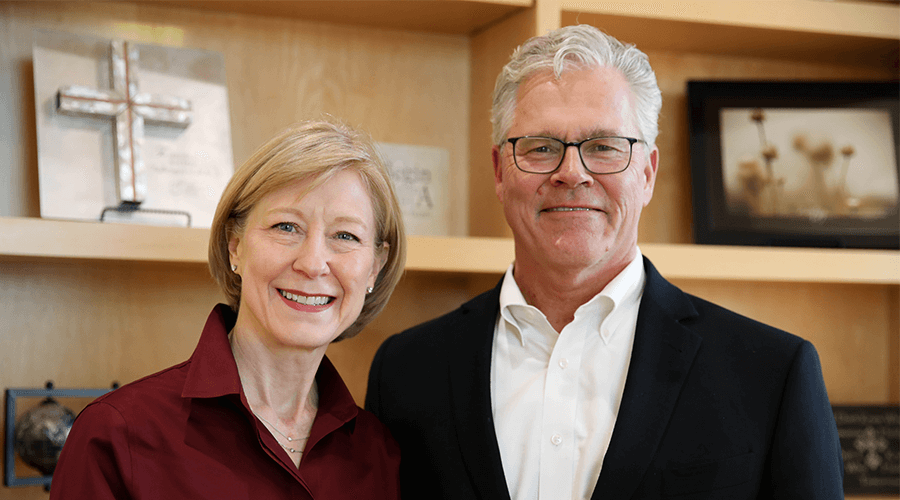 December 01, 2021Watch story
December 01, 2021Watch storyOutgoing Society CEO supports Lakota Nation scholarships
Good Samaritan Society President and CEO Randy Bury and his wife Sonia are establishing an endowment for the Sanford Health Lakota Nation Scholarship. -
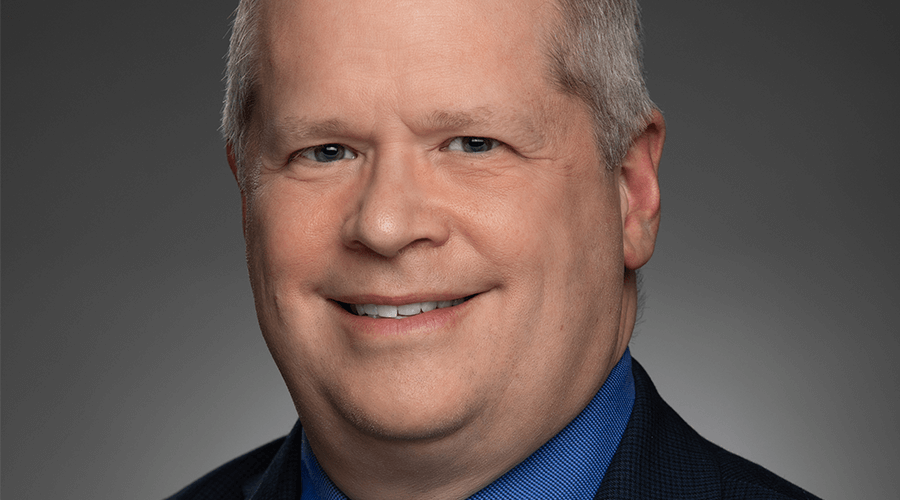 November 29, 2021Watch story
November 29, 2021Watch storyFamily depends on senior care for past and future
Tom Syverson, a 35-year employee, has long had family members living and working at the Society. -
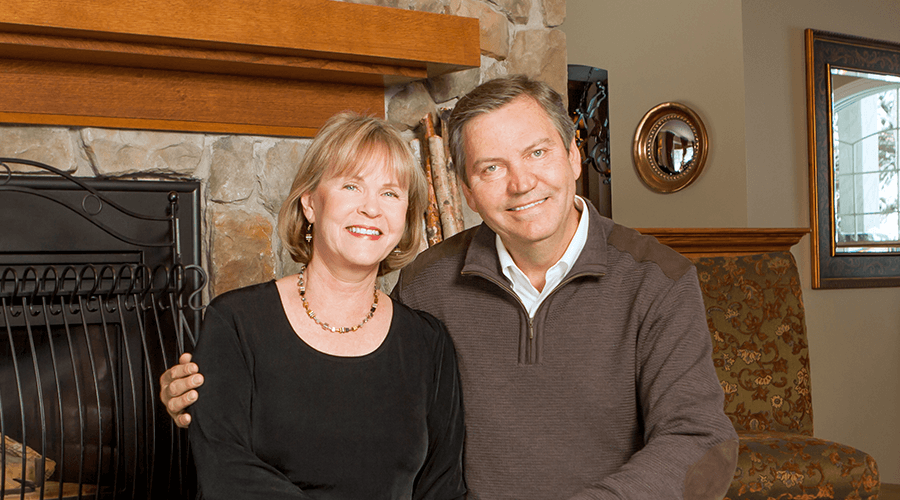 November 19, 2021Read story
November 19, 2021Read storyVan Wyhe leaves enduring legacy
After 20 years of service, Tom Van Wyhe has helped change countless lives through his philanthropy and volunteerism. -
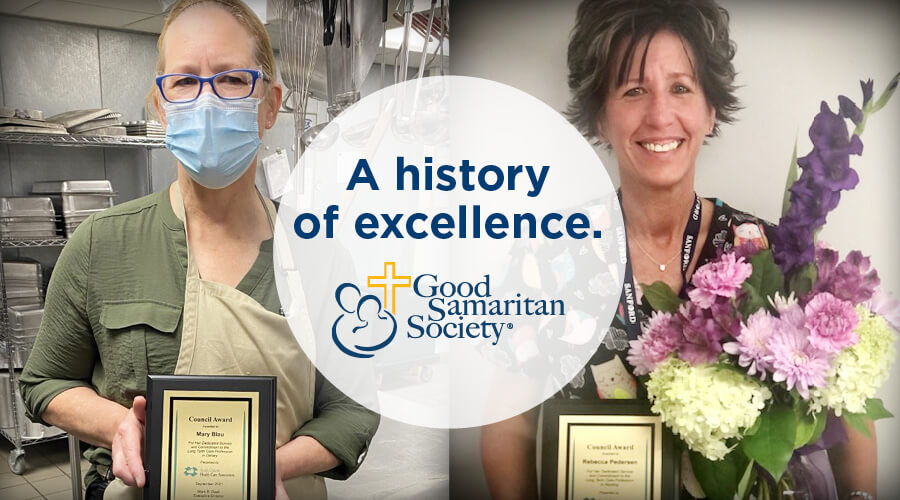 November 18, 2021Read story
November 18, 2021Read storySociety staff receive prestigious awards
Three dedicated Society staff members – Mary Blau, Mary Mitzel and Rebecca Pedersen – recently won awards from the South Dakota Health Care Association. Read why. -
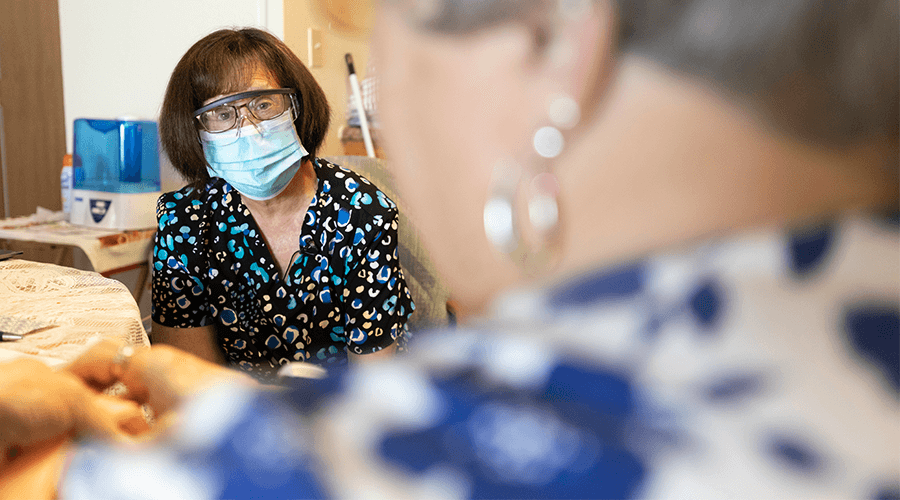 November 10, 2021Watch story
November 10, 2021Watch storyHome health therapist beats cancer with treatment, prayer
Society home health physical therapist Sharon Hermeling has overcome breast cancer twice. Through it all, she continued to show up for her patients in Rapid City, South Dakota. -
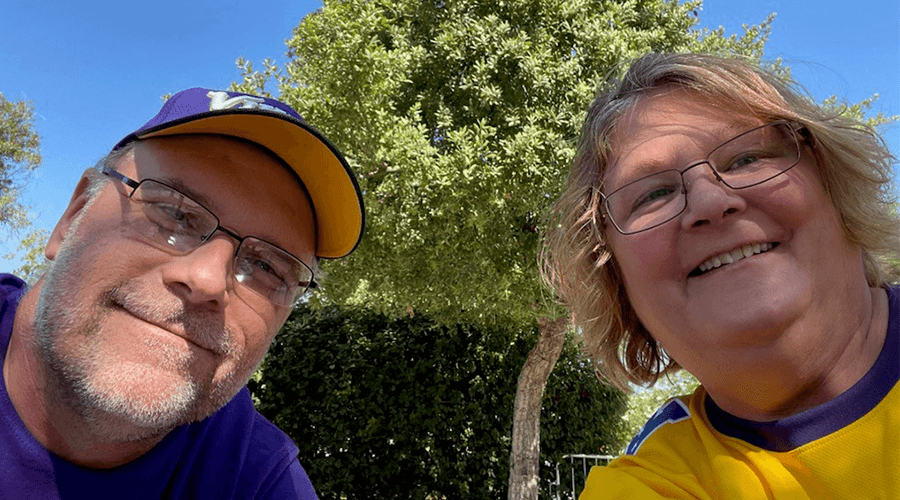 November 04, 2021Read story
November 04, 2021Read storyNursing consultant recovers from severe case of COVID-19
As a nursing consultant, Gail Dierks believes that being fully vaccinated prevented her from being hospitalized when she came down with COVID-19. -
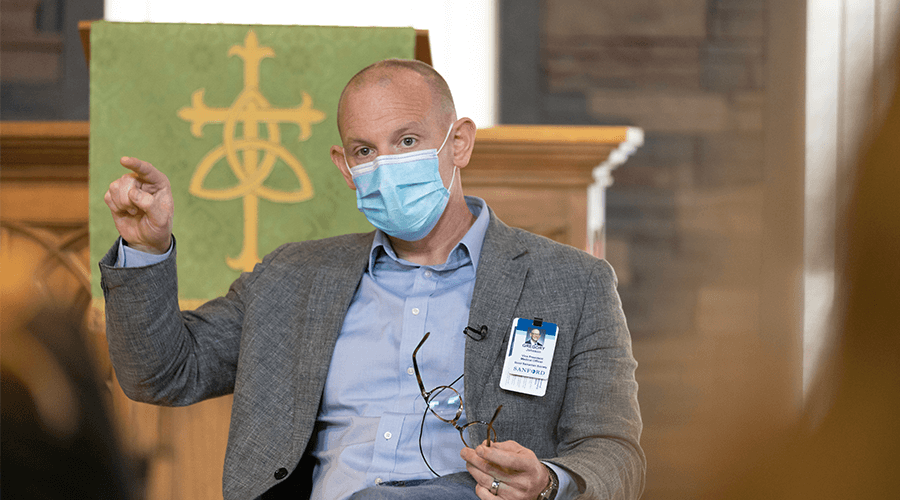 November 03, 2021Watch story
November 03, 2021Watch storyA focus on love, care and safety
Good Samaritan Society staff members in Albert Lea, Minnesota, are getting rewarded for providing high quality care. It's all in an effort to give each resident personalized care. -
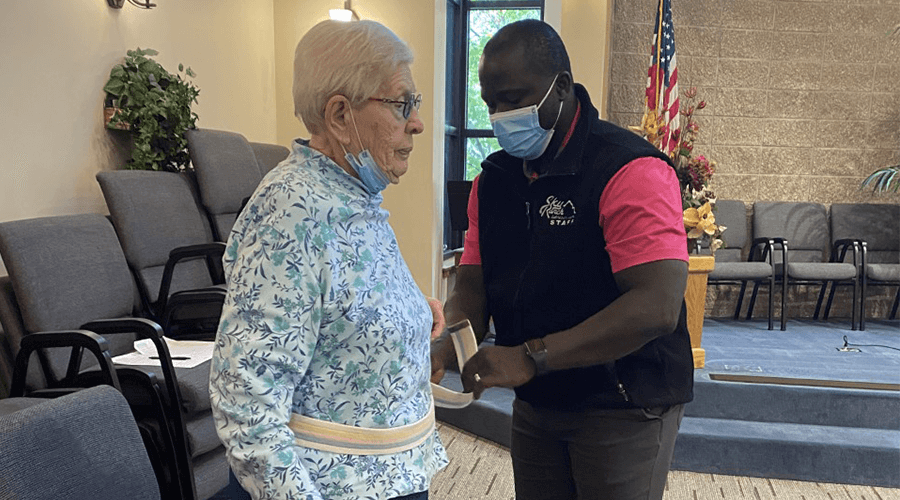 November 02, 2021Read story
November 02, 2021Read storyScreening reduces seniors' fall risk
The rehab therapy team at Good Samaritan Society – Fort Collins Village is helping seniors learn if they’re at risk for falling through Fall Screening Events. -
 November 01, 2021Watch story
November 01, 2021Watch storyMission-minded staff makes a difference, says Society CEO
Society President and CEO Randy Bury says faith foundation contributes to health system’s 100 years of success. -
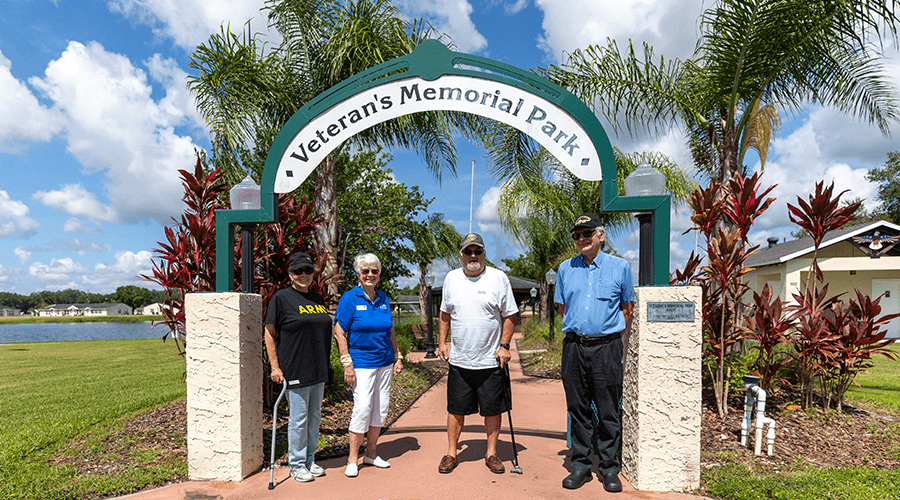 October 15, 2021Watch story
October 15, 2021Watch storyKissimmee veterans share camaraderie, love for special park
From social events to caring for the veteran's memorial park, roughly 50 residents make up the veteran's association at Good Samaritan Society - Kissimmee Village, and they enjoy spending time with each other and sharing military memories. -
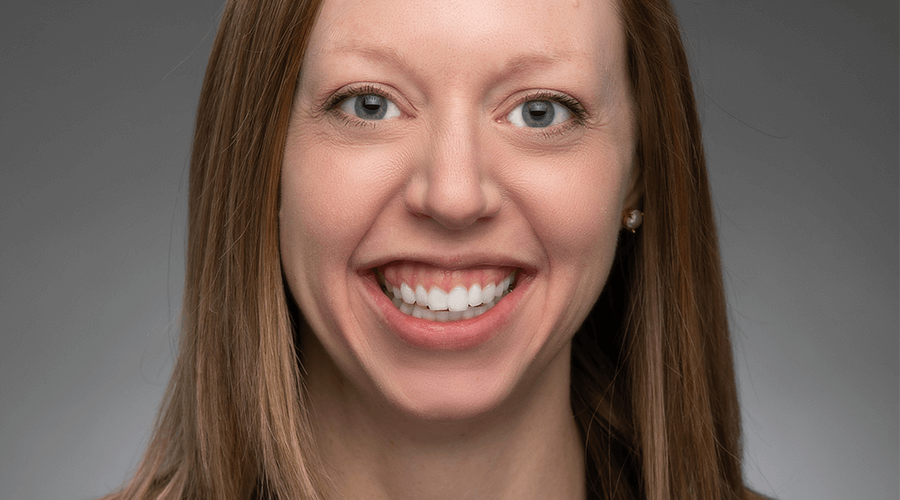 October 14, 2021Watch story
October 14, 2021Watch storySenior pastor proud to work alongside 'called' colleagues
The countdown is on to the Society's 100th year of service. Director of Mission Integration and Senior Pastor Christy Hallenbeck Ask reflects on all the people called to live and serve at the Society and her hopes for the future. -
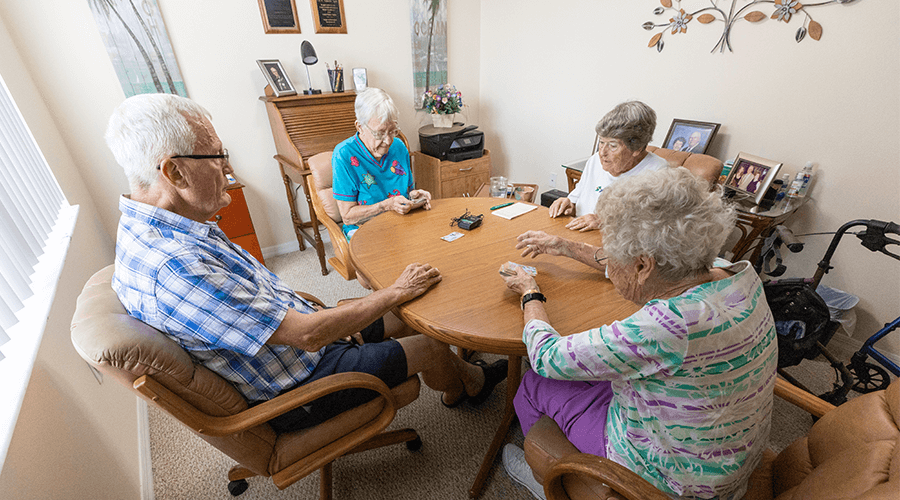 October 12, 2021Watch story
October 12, 2021Watch storyTour the Kissimmee Village campus with longtime residents
Follow along as Carol Kaschel, a resident at Kissimmee Village for 37 years, and some of her neighbors give a behind-the-scenes look at the unique campus. -
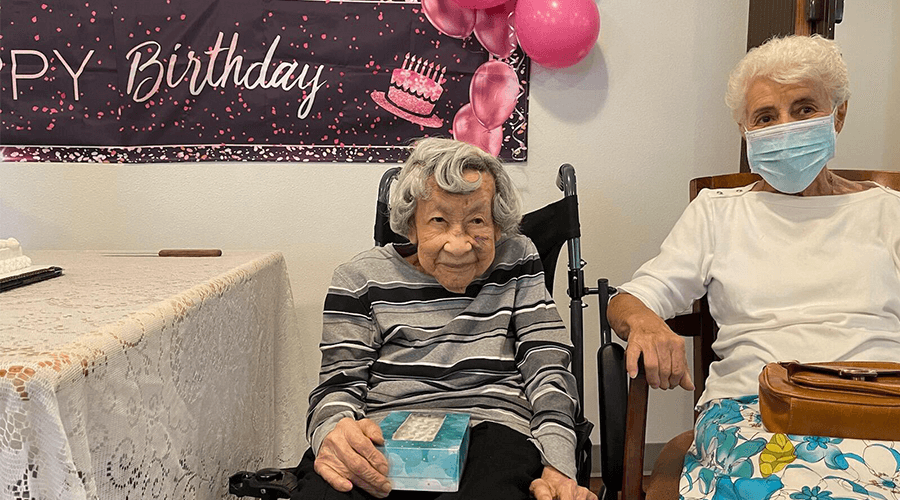 October 11, 2021Watch story
October 11, 2021Watch storyWWII veteran turns 111 at Good Samaritan Society
Julia Kabance is the oldest living member of the Prairie Band Potawatomi Nation and celebrated her 111th birthday at Good Samaritan Society - Wamego in Kansas. -
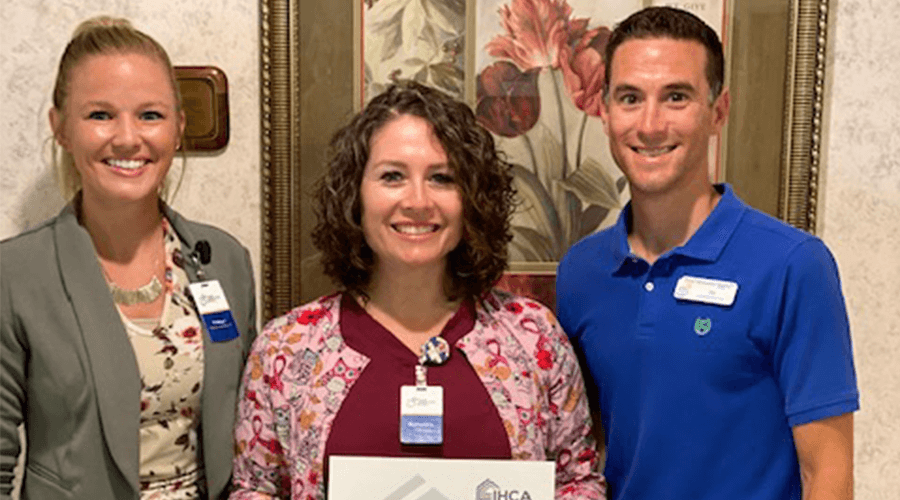 October 08, 2021Read story
October 08, 2021Read storyNursing scholarship helps staff member fulfill goal
Ruthann Lallier, a certified medication aide at Good Samaritan Society – Algona in Algona, Iowa, received a $6,000 scholarship from the Iowa Health Care Association to put toward her nursing degree.
-
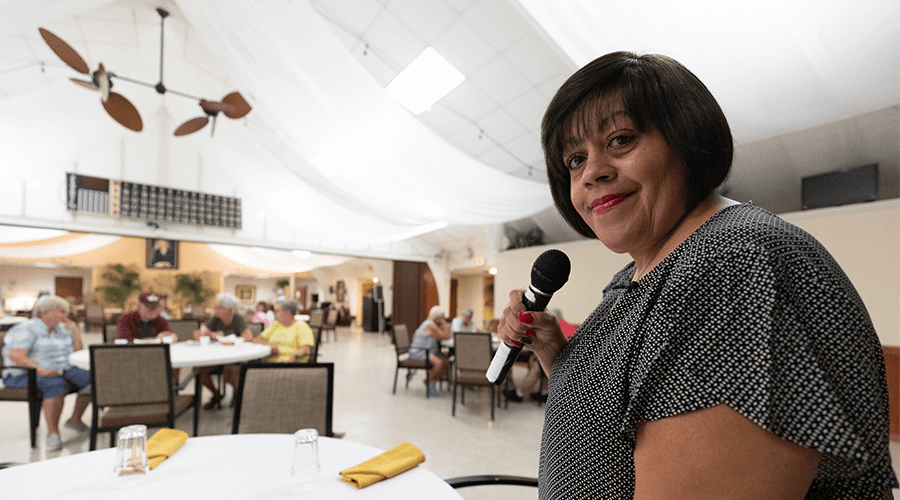 September 29, 2021Watch story
September 29, 2021Watch storyActivities assistant considered Guardian Angel by many
Vanessa Carabello has received the most Guardian Angel nominations of any employee at the Society, and it's easy to see why. -
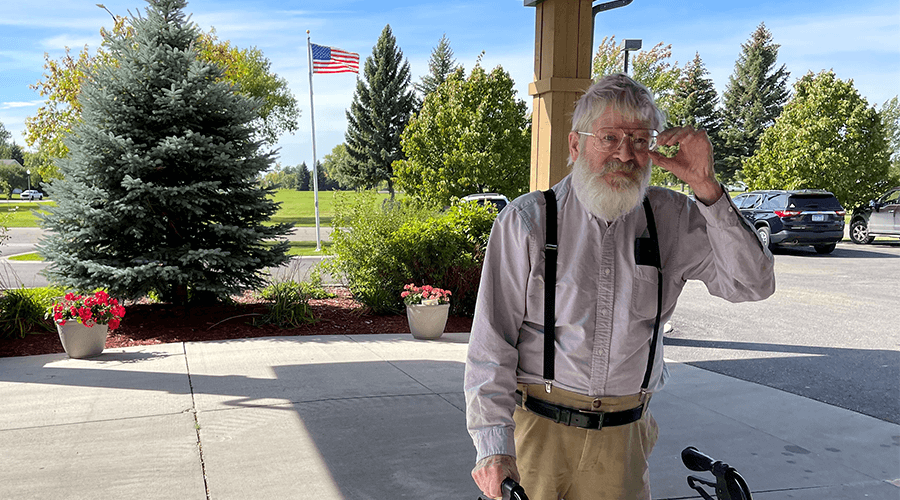 September 29, 2021Read story
September 29, 2021Read storySenior living means safety to science professor
Mike Gaffey, Ph.D., recently moved into a Society apartment in East Grand Forks, Minnesota, to be in a safer environment while also maintaining his independence. -
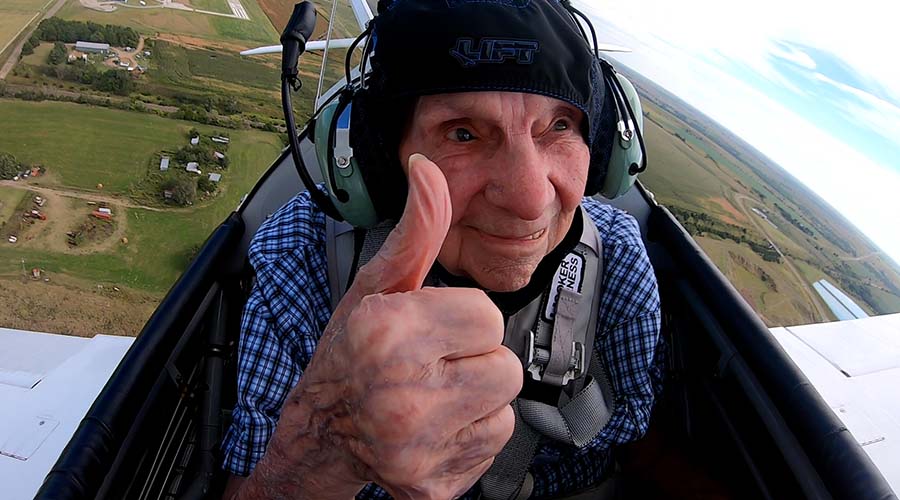 September 22, 2021Watch story
September 22, 2021Watch storyWorld War II veterans take off on Dream Flights
Thanks to Dream Flights, two World War II veterans took to the skies for the ride of a lifetime in Alma, Nebraska. -
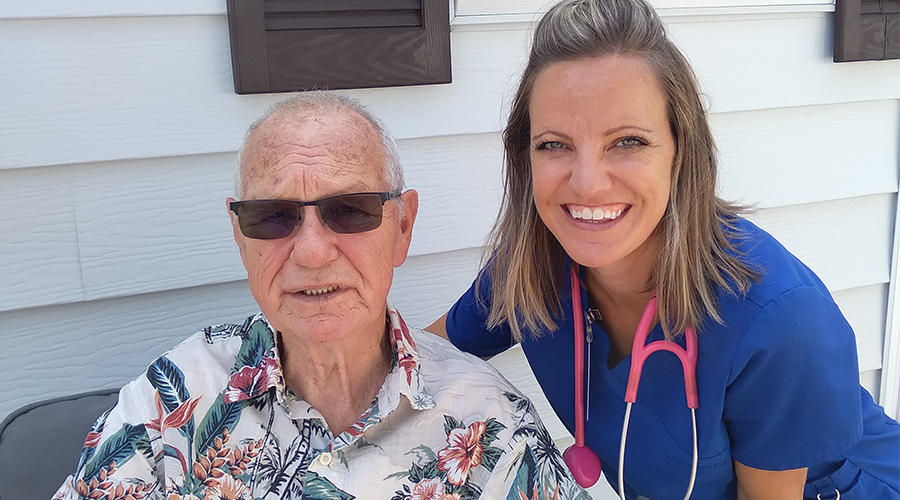 September 20, 2021Read story
September 20, 2021Read storyAn easier recovery with home health
After having back surgery, Norman Cady turned to home health care in Kearney, Nebraska, for help. -
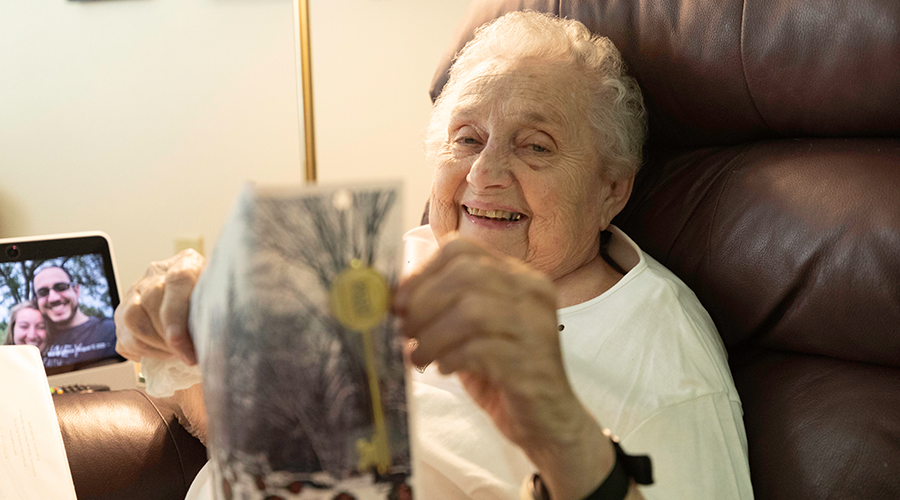 September 16, 2021Watch story
September 16, 2021Watch storyAssisted living resident is stellar community fundraiser
82-year-old JoAnne Whicker raised $70K for a pavilion project – and she’s not done yet. -
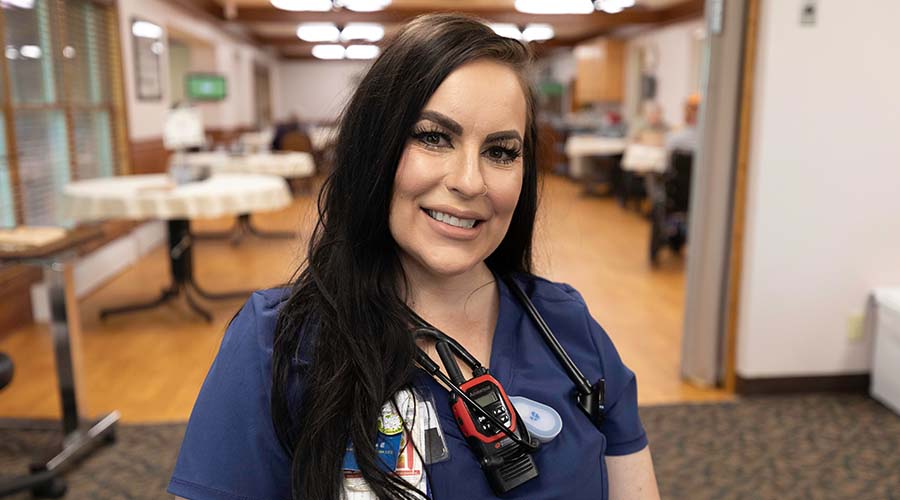 September 08, 2021Watch story
September 08, 2021Watch story'Loud and bubbly' nurse earns recognition for patient care
Jessica Engelland's compassion for others coupled with her volunteer efforts during a COVID-19 outbreak last fall has earned her The DAISY Award for Extraordinary Nurses. -
 August 27, 2021Watch story
August 27, 2021Watch storySenior pastor leads talk on faith, science and vaccines
Sharing faith and how it applies to vaccines and medical innovations has Society Director of Mission Integration and Senior Pastor Christy Hallenback Ask joining two Augustana University professors for a conversation. -
 August 16, 2021Watch story
August 16, 2021Watch story'Faith in the Field' shares devotions from variety of voices
Leaders at Society locations say a little about their local community and then share a short devotion. Hosts have been chaplains and administrators from all over the United States. -
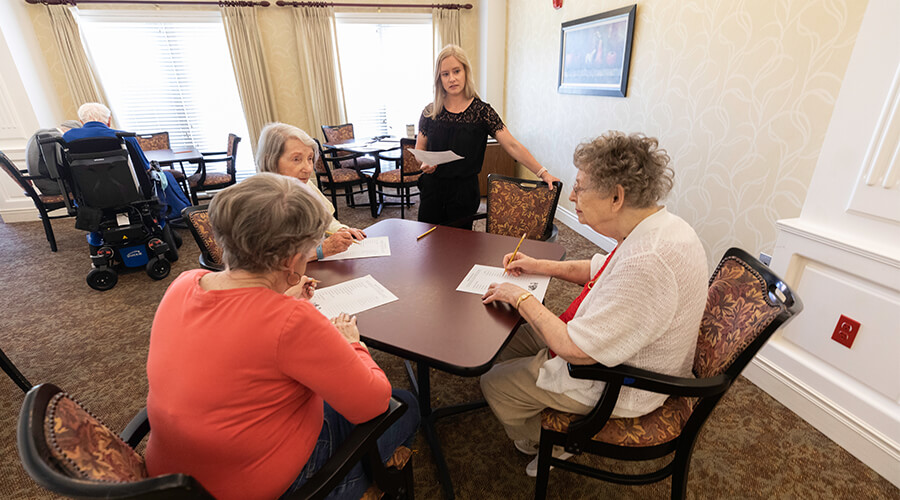 August 13, 2021Watch story
August 13, 2021Watch storyBrain Fitness combines activities for sharper body and mind
Brain teasers and more are leading to a better quality of life for residents at Good Samaritan Society - Cedar Lake Village in Olathe, Kansas. Marlene Harner just moved here and says there are fun and challenging activities happening all the time. -
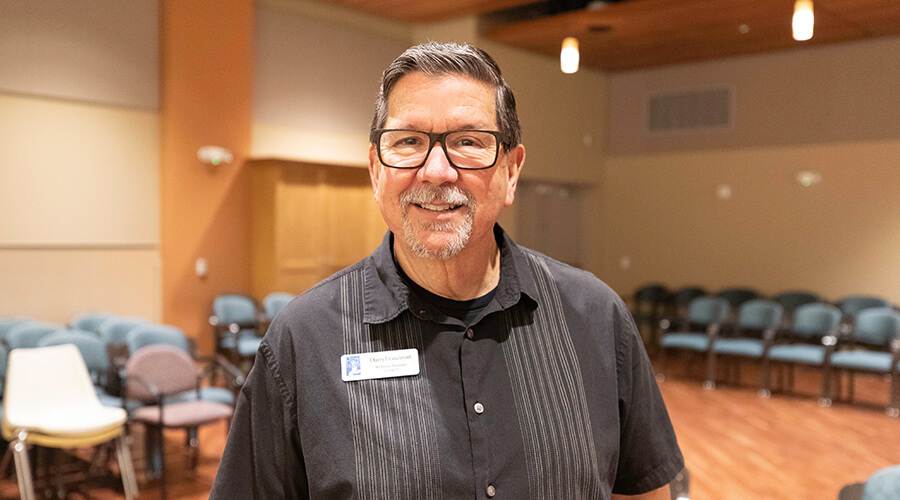 August 06, 2021Watch story
August 06, 2021Watch storySeniors stage a theatre group for their retirement community
Good Samaritan Society locations are known for having full calendars of activities for its residents. At Cedar Lake Village in Olathe, Kansas, an 'Act Your Age' theatre group is getting rave reviews. -
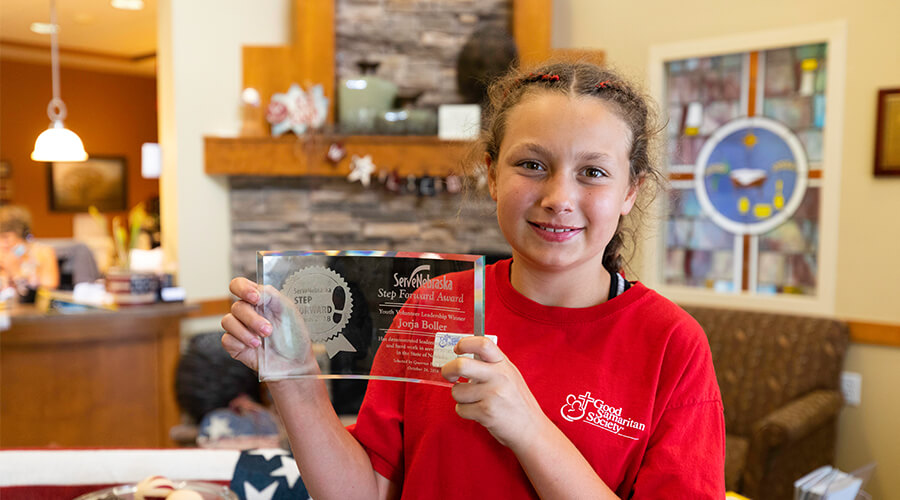 August 03, 2021Watch story
August 03, 2021Watch storyYoung volunteer paints nails, brings pony to see residents
Jorja Boller, 12, has volunteered at Good Samaritan Society - Beatrice in Nebraska since she was 5 years old. -
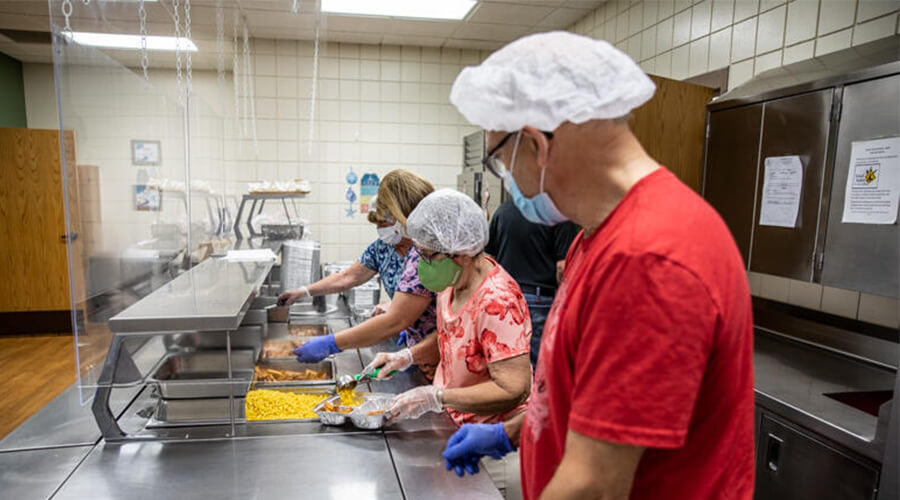 July 28, 2021Watch story
July 28, 2021Watch storyActive Generations volunteers drop off food, lift spirits
Sanford Health and Good Samaritan Society employees are active volunteers in their communities. With a new paid volunteer time off benefit, there's even more incentive and support to give back. -
 July 26, 2021Watch story
July 26, 2021Watch story92-year-old is overcoming COVID with return to swimming
As a local swim teacher for more than 40 years and a lifetime competitive swimmer, Good Samaritan Society - Cedar Lake Village resident Nan Bohl is returning to the pool after getting COVID-19. -
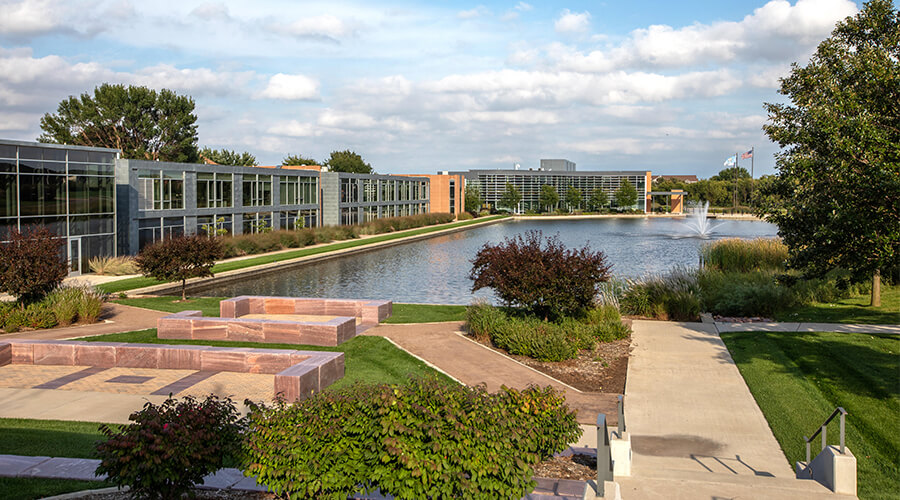 July 26, 2021Read story
July 26, 2021Read storySociety leaders focus on safety, integrated health care
Society leaders continue to focus on safety and innovation after the organization's 99th annual operations conference. Society Vice President of Operations Nate Schema was also excited to honor six National Ever Forward Champions. -
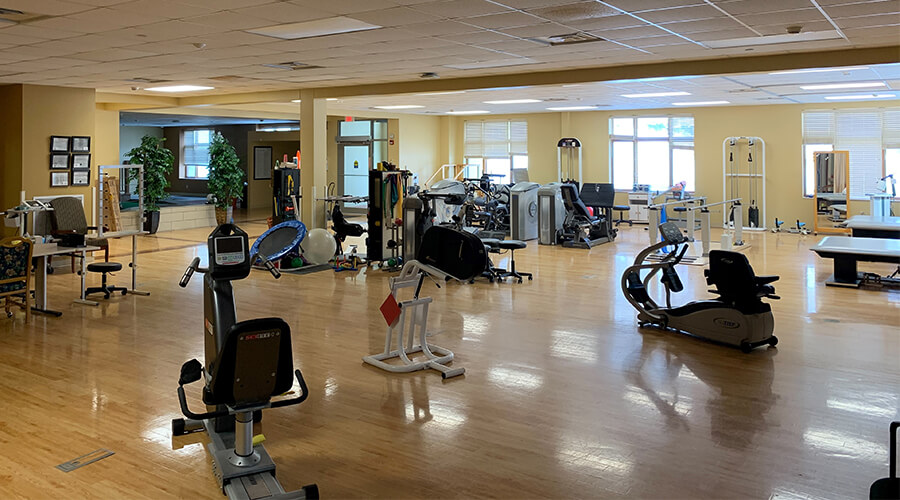 July 16, 2021Watch story
July 16, 2021Watch storyUnique therapy and rehabilitation center reopens at Society
A more than 4,000-square-foot therapy and rehabilitation center at Good Samaritan Society – Davenport in Iowa is back open after closing due to the COVID-19 pandemic. -
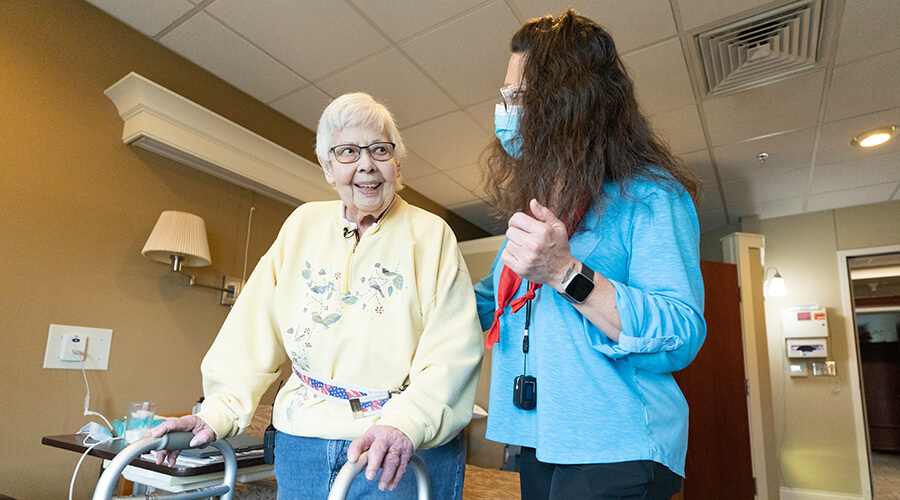 July 08, 2021Watch story
July 08, 2021Watch storyGetting stronger, recovering faster with rehab at Society
Fresh out of the hospital, Susan Packer is working hard at inpatient rehabilitation at Good Samaritan Society – Fort Collins in Colorado. Her goal is to get back home and to her husband after just getting a new pacemaker. -
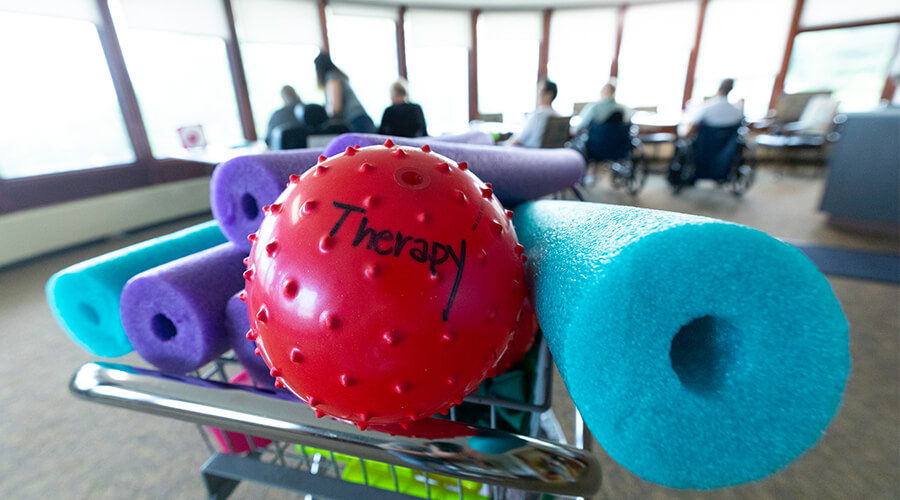 July 01, 2021Watch story
July 01, 2021Watch storyTherapy assistant at Society known as a 'great motivator'
Tammy Jans is a therapy assistant at Good Samaritan Society - Sioux Falls Center, and she is using social activities to inspire residents to enjoy therapy and rehabilitation. -
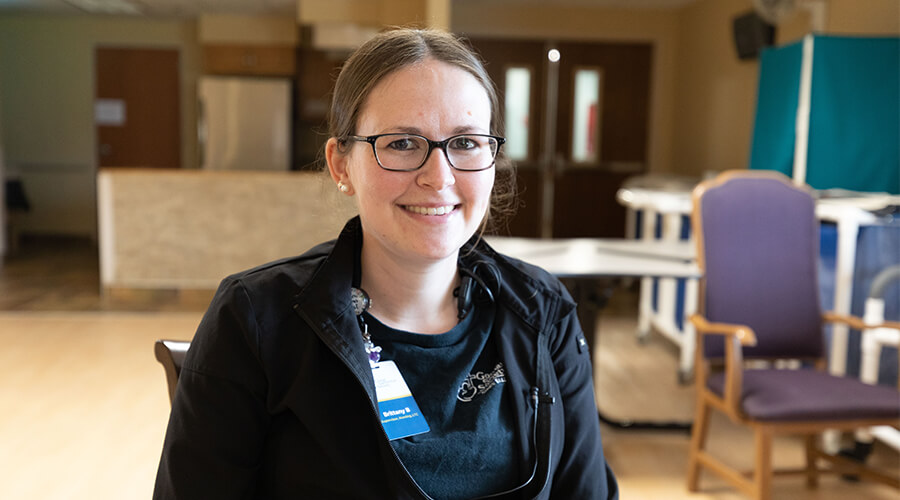 June 24, 2021Watch story
June 24, 2021Watch storySociety nurse nabs honor for leadership during pandemic
Brittany Brees, RN, a leader and nurse at Good Samaritan Society - Sioux Falls Village, was named the 2021 Ever Forward Leadership National Champion for her hard work and dedication during the pandemic. -
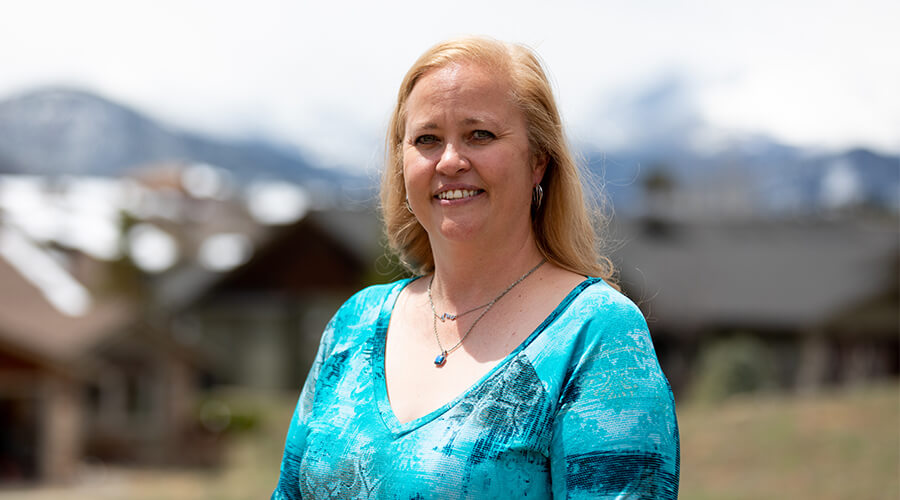 June 24, 2021Watch story
June 24, 2021Watch storyAdministrator honored after evacuating residents during fire
From dealing with COVID-19 to evacuating staff and residents because of forest fires, Julie Lee has had a busy year. Still, the administrator at Good Samaritan Society - Estes Park Village has kept everyone safe. It's why she's being honored as the 2021 National Ever Forward Administrator Champion. -
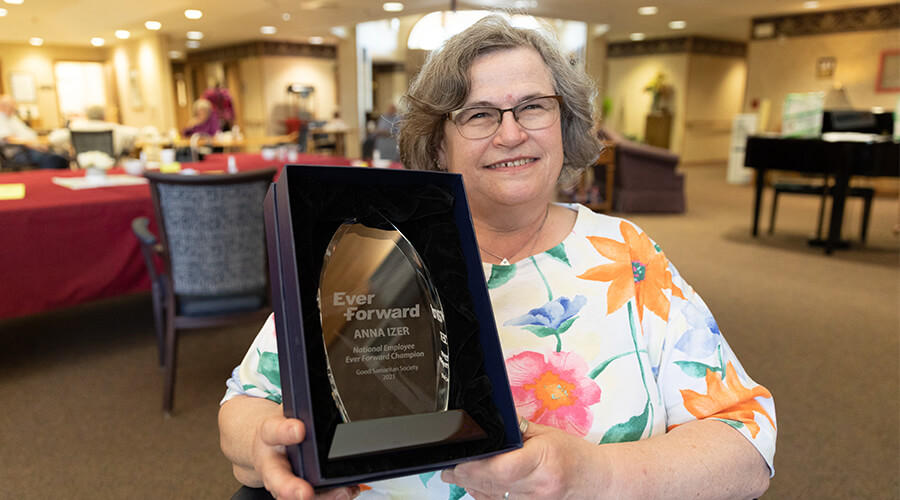 June 24, 2021Watch story
June 24, 2021Watch storyCook loses home in fire, still shows up for residents
After losing her home and two cats in a tragic fire, Anna Izer continued to take care of Society residents in Beatrice, Nebraska. This experienced cook was named the Good Samaritan Society's 2021 National Ever Forward Employee Champion. -
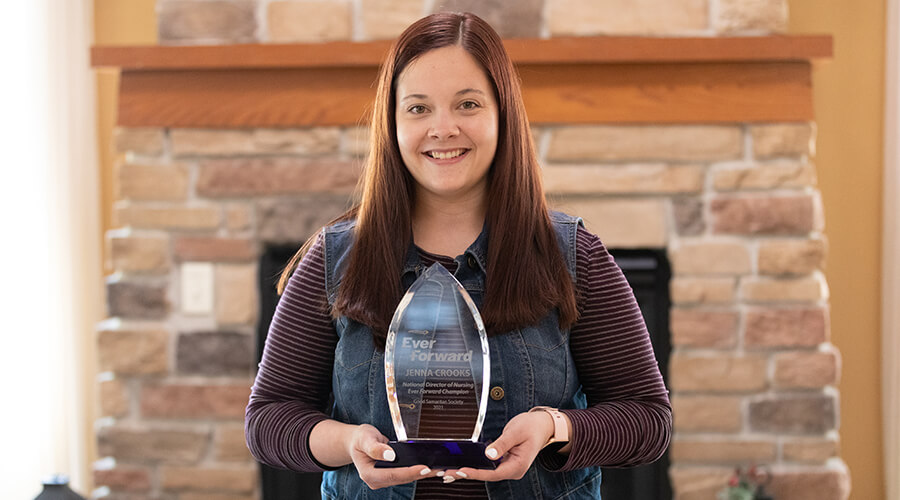 June 24, 2021Watch story
June 24, 2021Watch storySociety nurse recognized for impact on COVID-19 response
Traveling hundreds of miles over the past year, nurse Jenna Crooks has impacted more than ten Good Samaritan Society locations across the country serving in COVID units. Jenna is the 2021 National Ever Forward Director of Nursing Services Champion. -
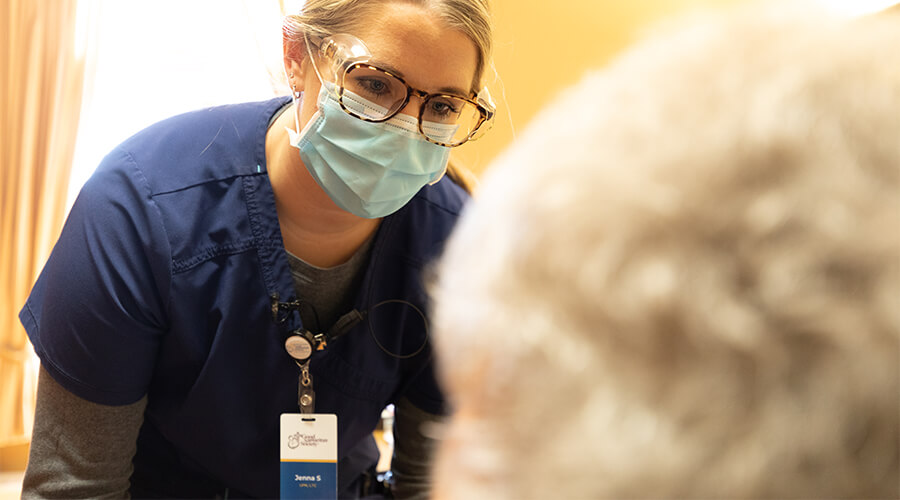 June 23, 2021Watch story
June 23, 2021Watch storySociety nurse passionate about serving the underserved
Nurse Jenna Szymanski is the 2021 National Ever Forward Caregiver Champion for her incredible care to residents at Good Samaritan Society - Luther Manor in Sioux Falls, South Dakota. -
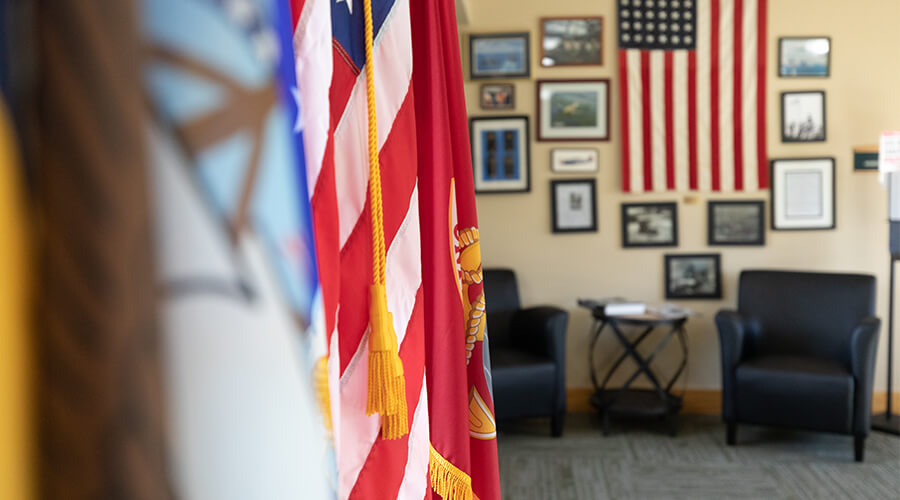 June 22, 2021Watch story
June 22, 2021Watch storyEstes Park Village honors veterans with memorial display
Honoring the men and women who’ve served our country in the armed forces is a high priority at Good Samaritan Society – Estes Park Village in Colorado. -
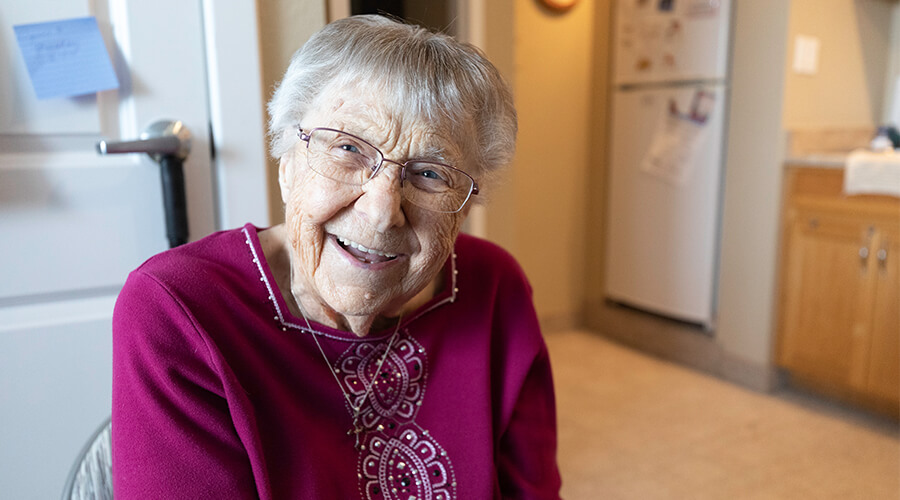 June 16, 2021Watch story
June 16, 2021Watch storyFort Collins Village celebrates high vaccination rates
Laura Gutsche, a 99-year-old resident, is among the 95% of residents and 84% of staff vaccinated at Fort Collins Village. -
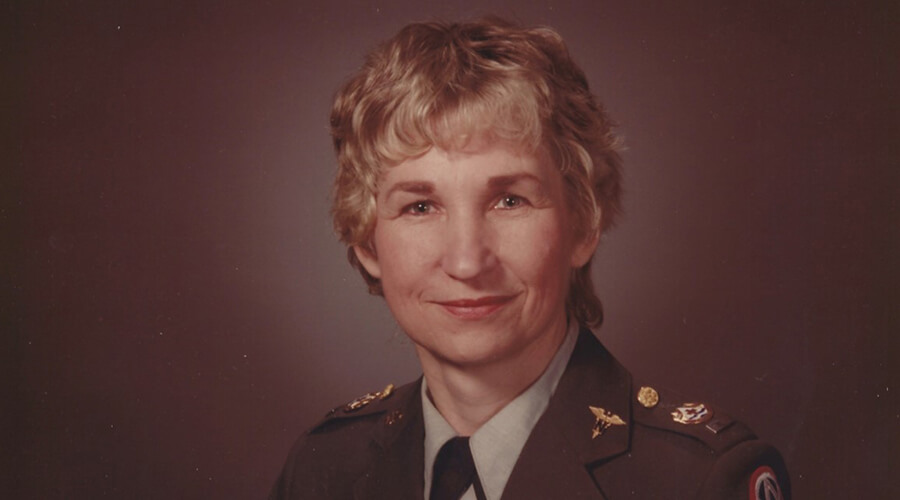 May 24, 2021Read story
May 24, 2021Read storyBronze Star recipient at Society played a part of history
Retired Army Maj. Judy Rosenkotter is a part of military history. She and her husband now live at the Good Samaritan Society in Grand Village, Nebraska. -
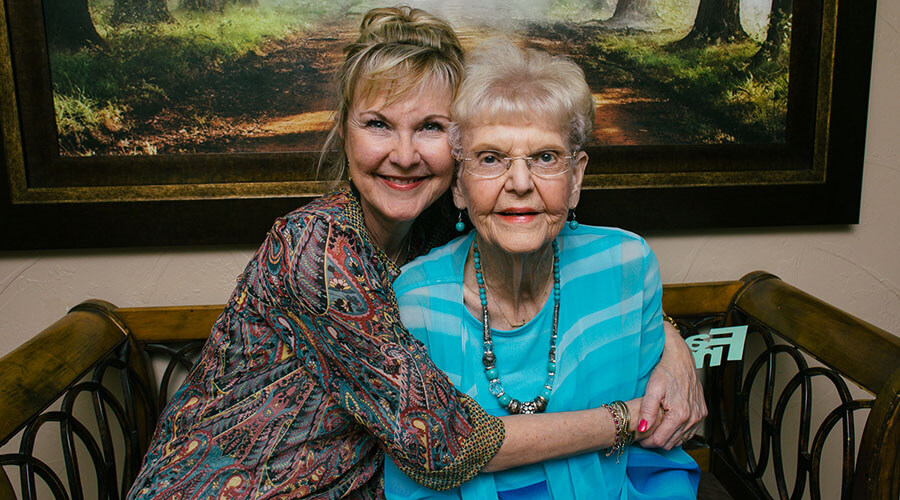 May 24, 2021Watch story
May 24, 2021Watch storyVaccines, safety measures help Society locations open
Residents enjoy dining with neighbors and visiting family after a year apart -
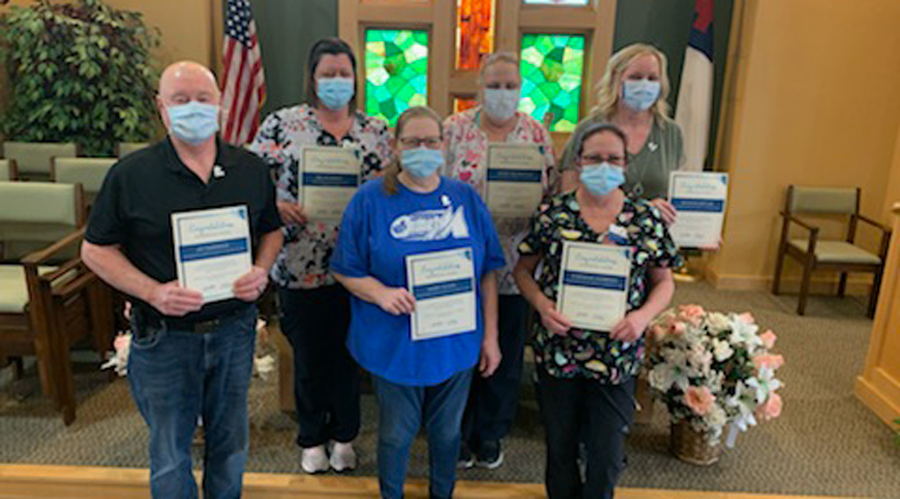 May 21, 2021Read story
May 21, 2021Read storyGuardian Angels answer prayers
Six staff members at Good Samaritan Society - Heritage Grove in East Grand Forks, Minnesota, were recently recognized as Guardian Angels by those they serve through gifts to the Good Samaritan Foundation. -
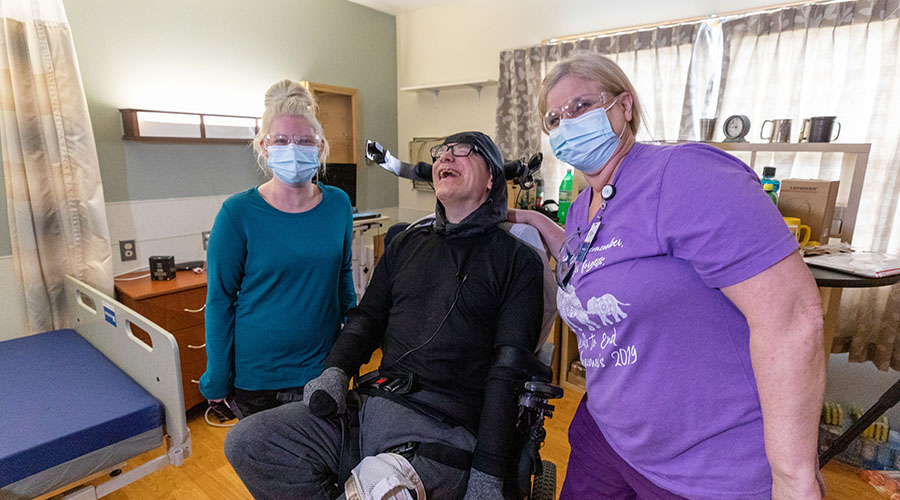 May 18, 2021Watch story
May 18, 2021Watch storyGood Samaritan Society resident is breaking down barriers
When Matt Conaway, Ph.D., needed care and a place to live, he chose the Good Samaritan Society in Indianola, Iowa. -
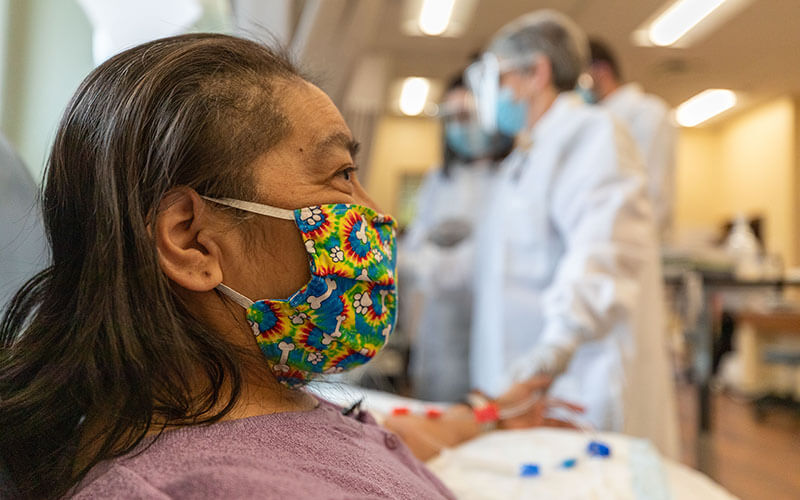 May 13, 2021Watch story
May 13, 2021Watch storyGood Samaritan Society opens on-site dialysis den
Residents who need dialysis can go down the hall or get care in their room. -
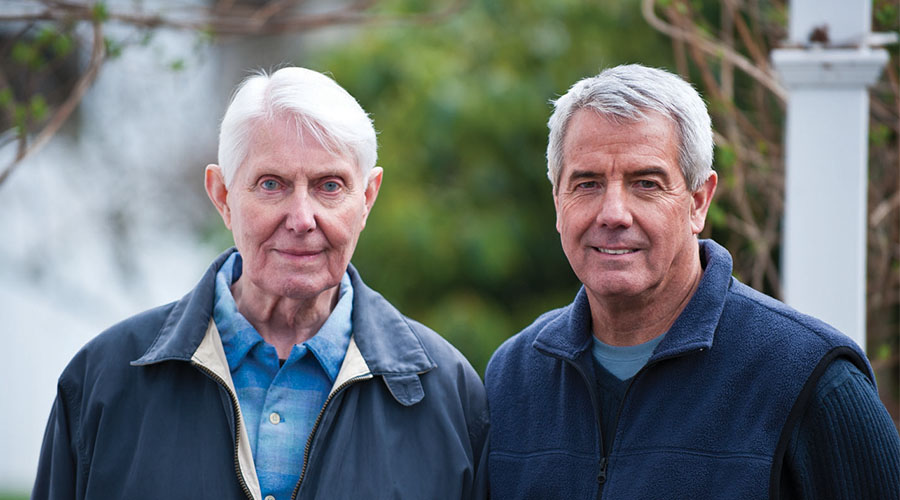 May 12, 2021Read story
May 12, 2021Read storyPatients, families receive outstanding hospice care
Two families found the support they didn’t realize they needed as their loved ones received hospice care from Good Samaritan Society – Home Care in Albuquerque, New Mexico. -
 May 09, 2021Read story
May 09, 2021Read storyShowing gratitude during National Skilled Nursing Care Week
Casey Ward is sharing his gratitude for the caregivers who make residents feel special at the Good Samaritan Society location in Battle Lake, Minnesota. -
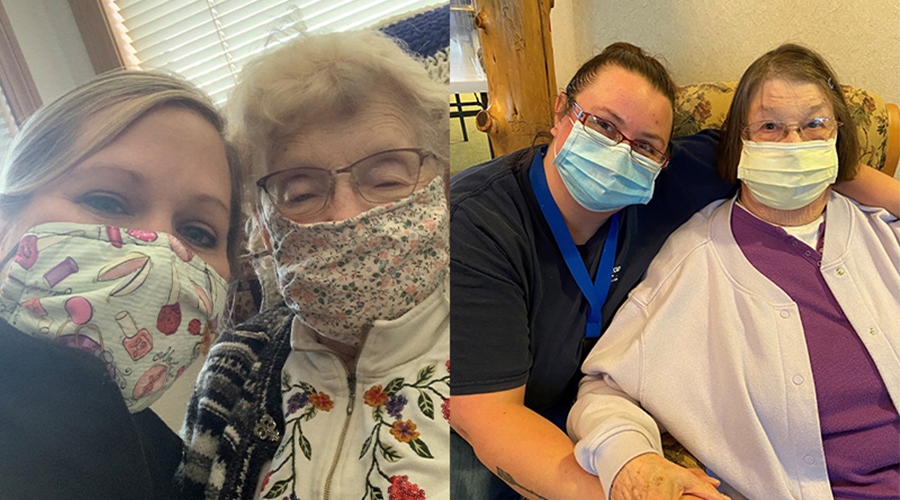 May 07, 2021Read story
May 07, 2021Read storyResidents, families celebrate this Mother's Day in person
Residents are preparing to get social, safely, on Mother’s Day 2021. -
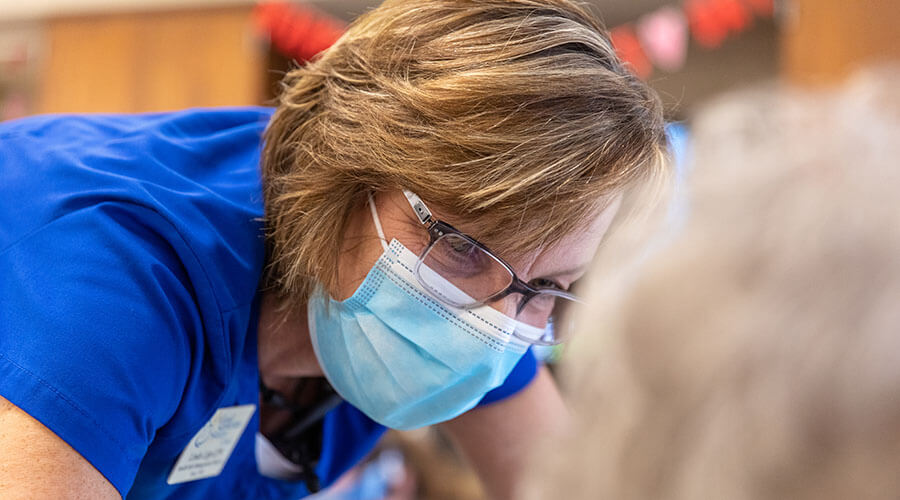 May 06, 2021Watch story
May 06, 2021Watch storyNurses in long-term care share their wisdom
Experienced nurses share advice with new nurses at Good Samaritan Society. -
 April 28, 2021Watch story
April 28, 2021Watch storyNurse offers to help vaccinate others at Mall of America
COVID-19 vaccine event in home state is a mission for Good Samaritan Society RN -
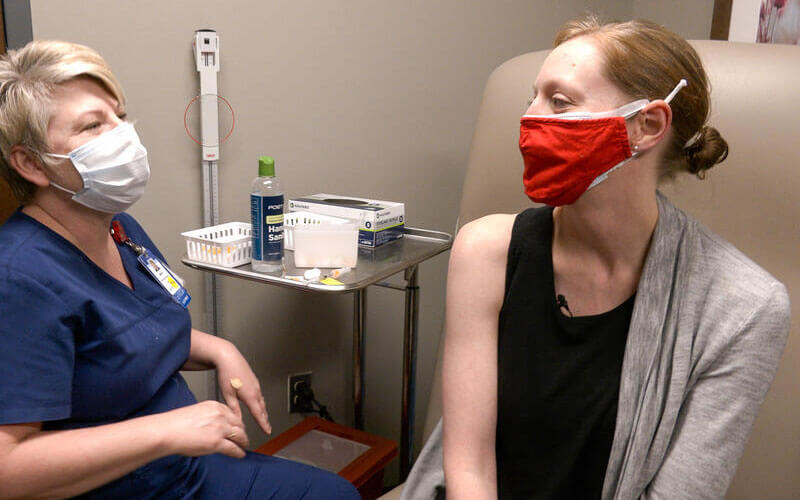 April 21, 2021Watch story
April 21, 2021Watch storyNew mom and Society senior pastor gets COVID-19 vaccine
Pastor Christy urges moms to ask their doctor questions about vaccine. -
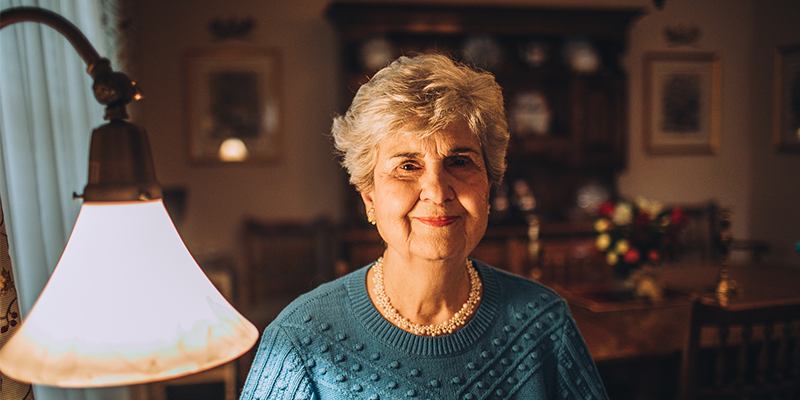 April 15, 2021Watch story
April 15, 2021Watch storyLoving care at every stage
From the first moment in her Good Samaritan Society community, Betty knew she was right where she needed to be. -
 April 06, 2021Read story
April 06, 2021Read storyIncredible women living, serving at the Good Samaritan Society
Residents are staying active and living with purpose. -
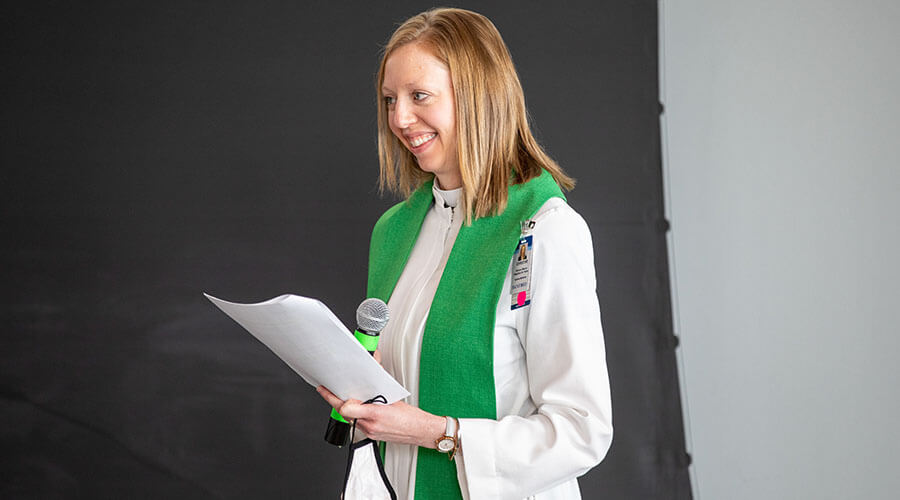 April 02, 2021Read story
April 02, 2021Read storyEaster: The surprise ending in our faith
Harold Racine's daughter, Lisa, had gotten a part-time job in the kitchen at the Good Samaritan Society – Stillwater center as a way to see her father, even with COVID-19 visitor restrictions in place. Lisa and Harold Racine’s story so beautifully embodies the resurrection. -
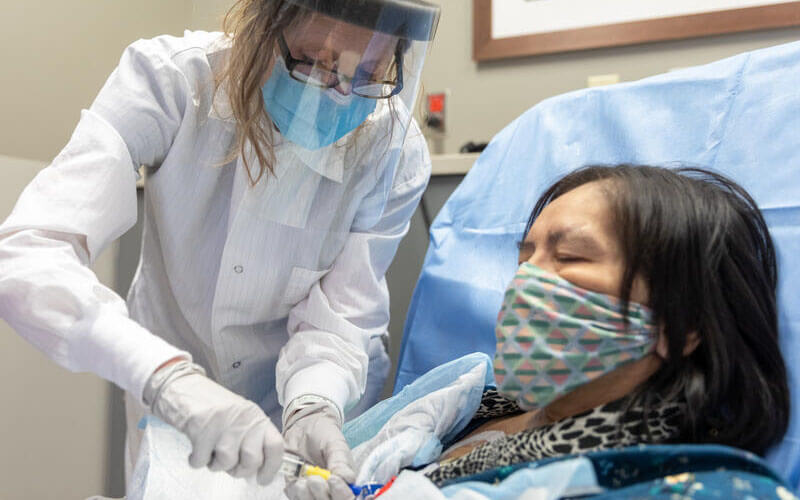 April 01, 2021Watch story
April 01, 2021Watch storyGood Samaritan Society developing new hemodialysis den
Residents can cross the building instead of cross town for treatment. -
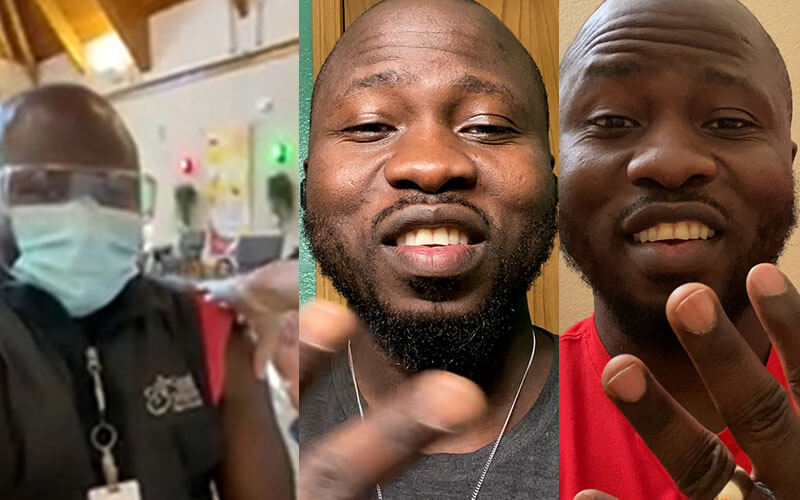 March 31, 2021Read story
March 31, 2021Read storyCOVID-19 vaccine advocate shares his journey
Rehabilitation supervisor at Good Samaritan Society says ‘there’s nothing to it’ -
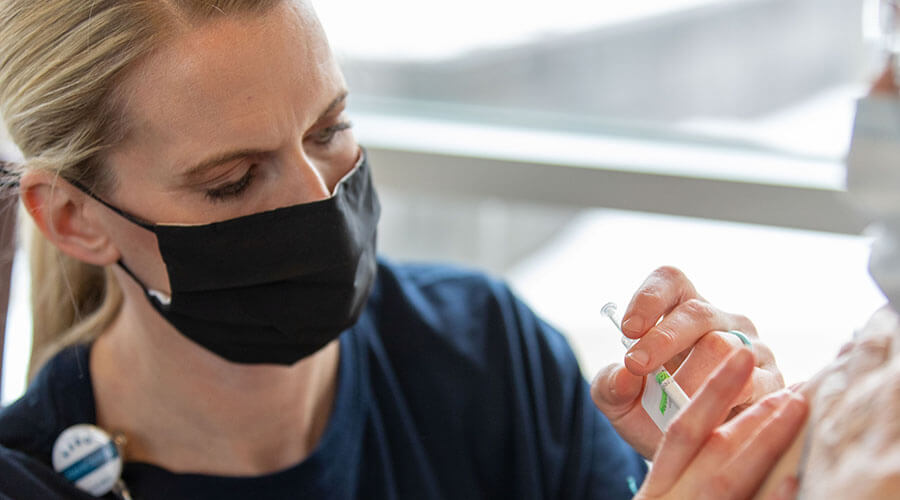 March 29, 2021Watch story
March 29, 2021Watch storyHealth systems partner to make senior communities safe
Sanford Health nurses help run COVID-19 vaccinations at Good Samaritan Society. -
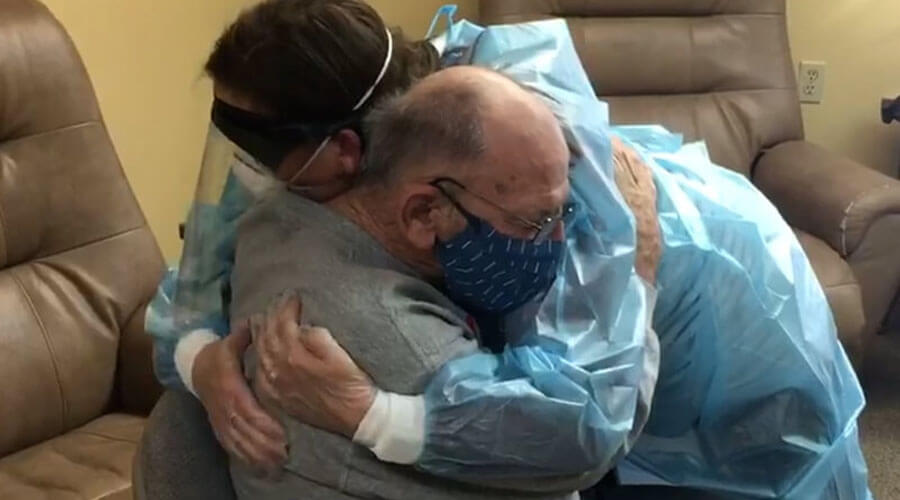 March 24, 2021Read story
March 24, 2021Read storySimple hug becomes powerful embrace during reunion
Good Samaritan Society bringing families back together -
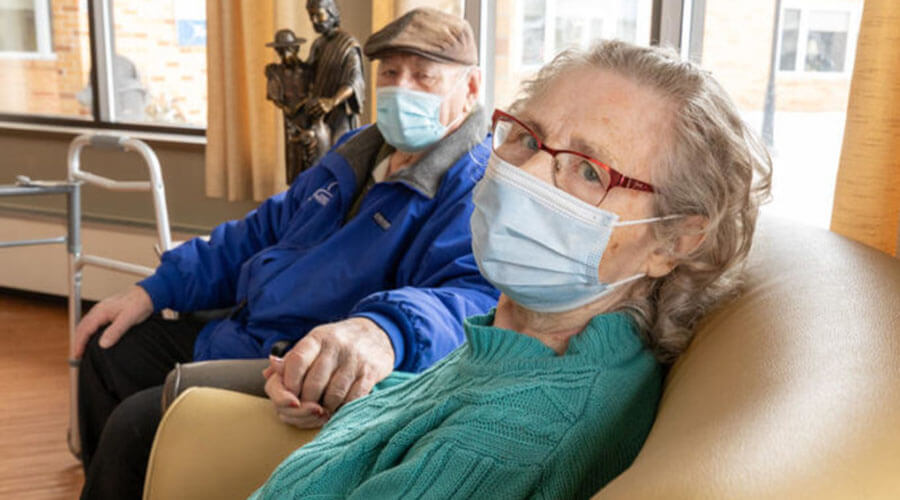 March 23, 2021Read story
March 23, 2021Read storyCouple holds hands for first time in a year at Society
Vaccinations and low COVID-19 numbers lead to more visits -
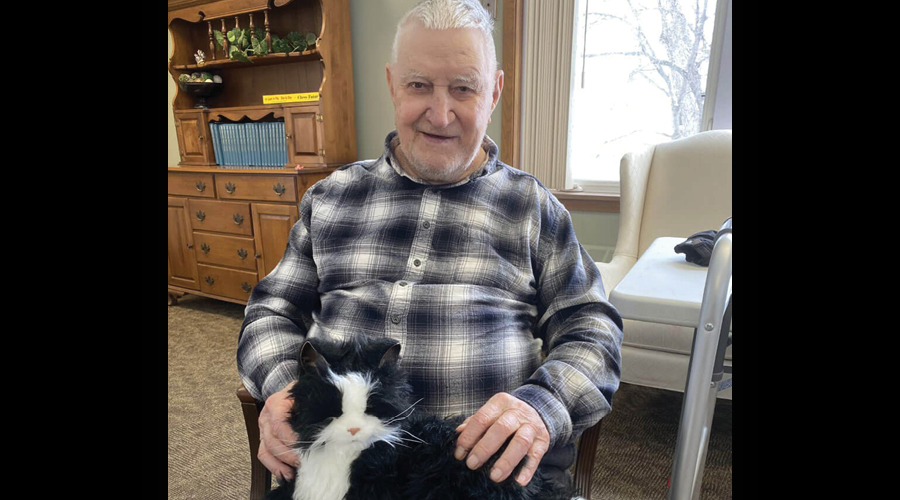 March 18, 2021Read story
March 18, 2021Read storyRobotic cats provide companionship
Residents at Good Samaritan Society – Manson in Iowa welcomed two furry friends into their home. But unlike the typical pet, these cats don’t need food, litter boxes or regular vet visits.
-
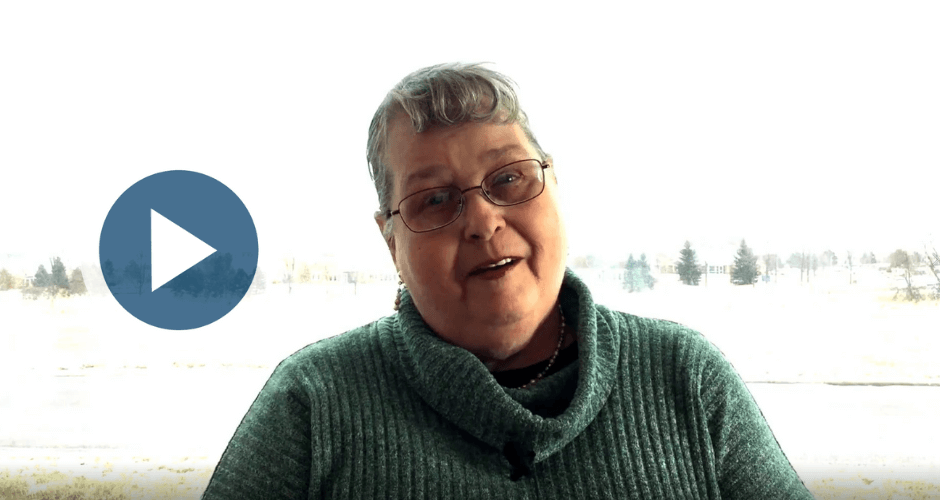 March 17, 2021Read story
March 17, 2021Read storySociety employees give back
Not only do employees give their time and talents to support our mission, they also give generously through the Good Samaritan Foundation. -
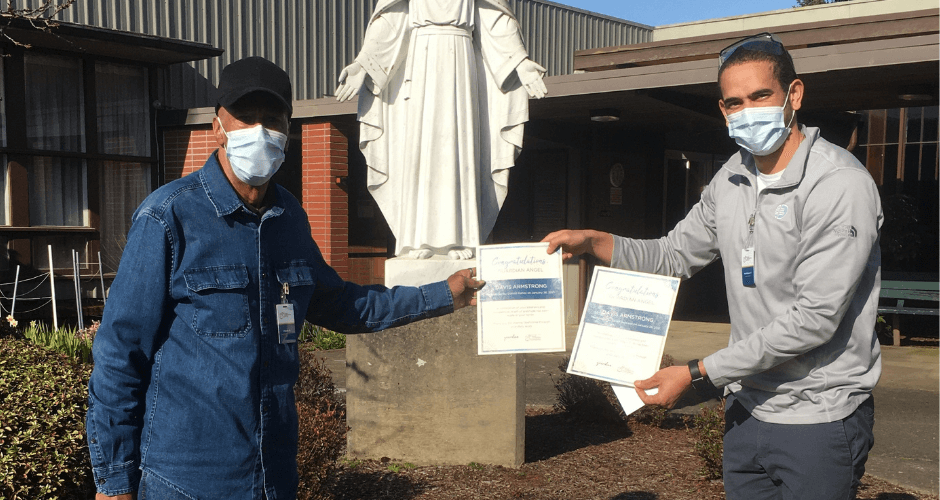 March 16, 2021Read story
March 16, 2021Read storyGuardian Angels found all around
Our Guardian Angels can be found in so many places. Residents at the Good Samaritan Society in Las Cruces, New Mexico and Eugene, Oregon recently found their Guardian Angels in the people who keep their locations looking beautiful. -
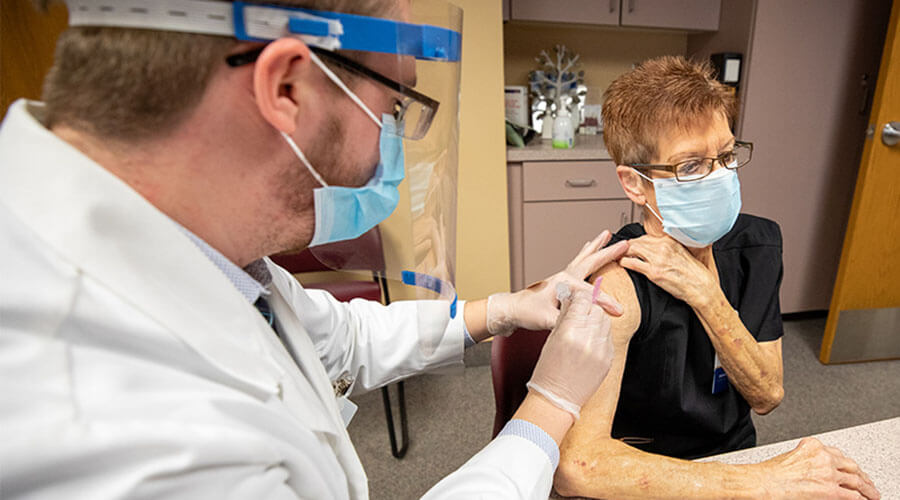 March 08, 2021Watch story
March 08, 2021Watch storyVaccination rates high, COVID-19 numbers low at Society
Visitors invited back where county infection rates allow for safe visits. -
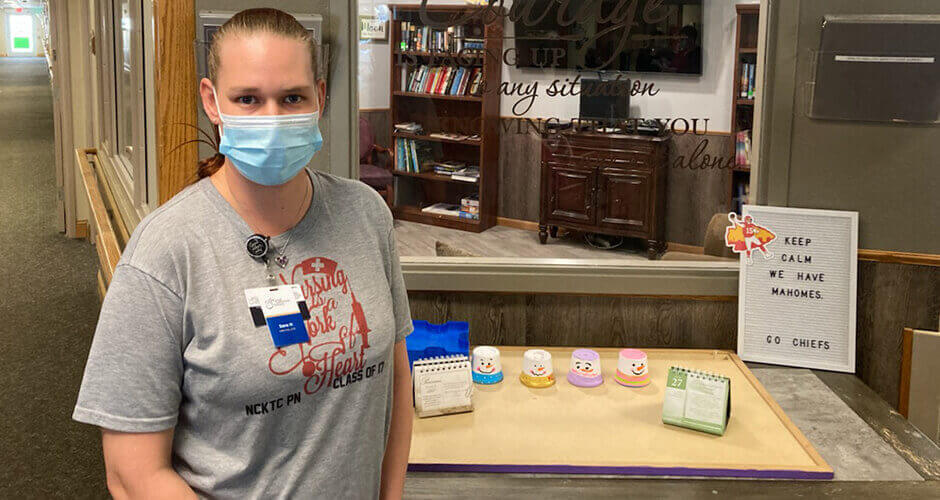 March 01, 2021Read story
March 01, 2021Read storyStrengthening staff by sharing God’s love
When the team at Good Samaritan Society – Hays started hearing about fellow nursing homes in the area going through COVID-19 outbreaks, they stepped up to help in an incredible way. -
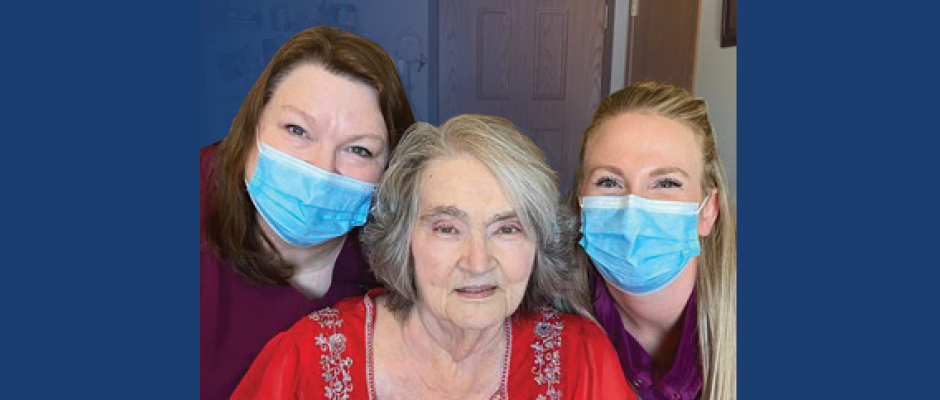 February 27, 2021Read story
February 27, 2021Read storyHome health services keep clients in their homes
For people in need of health care, receiving home health services can mean the difference between living on their own and moving to a nursing home or assisted living location. But with Good Samaritan Society's home care service clients can remain in their home. -
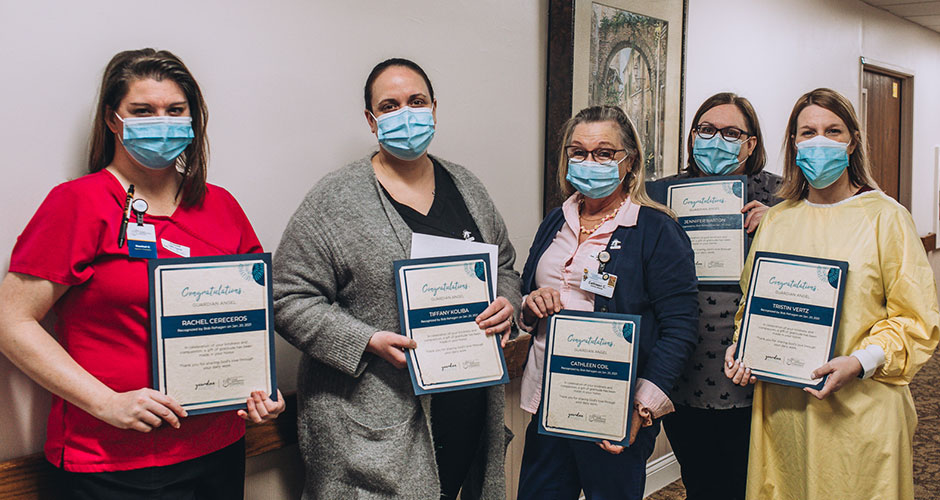 February 24, 2021Read story
February 24, 2021Read storyFamily celebrates Society staff as Guardian Angels
Bob Rehagen's family was moved by the care and compassion their Guardian Angels have shown Bob and the family, especially through a COVID-19 diagnosis and other trials. -
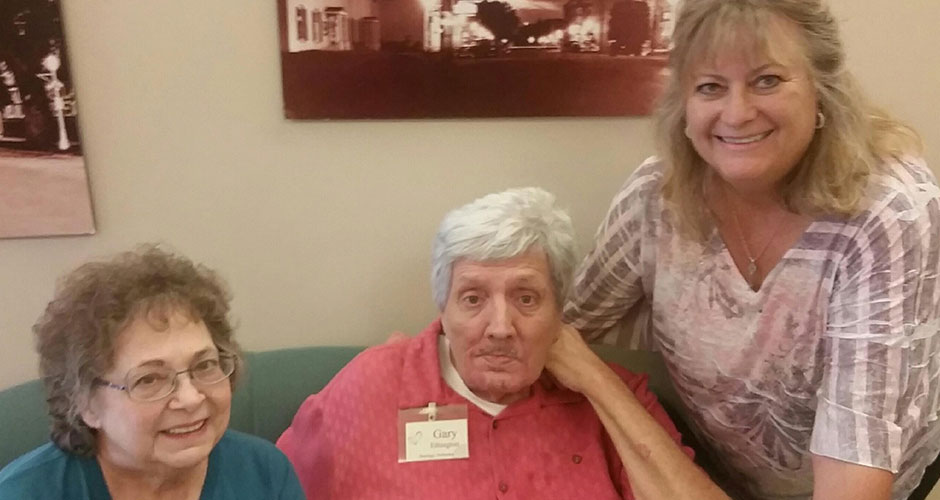 February 24, 2021Read story
February 24, 2021Read storyFamily honors brother’s memory at Society
Gerald "Gary” Ethington's memory will live on through a generous donation from his siblings Pat Jones, Charlotte Jewell and Riley Ethington at Good Samaritan Society – Hastings Village’s Perkins Pavilion. -
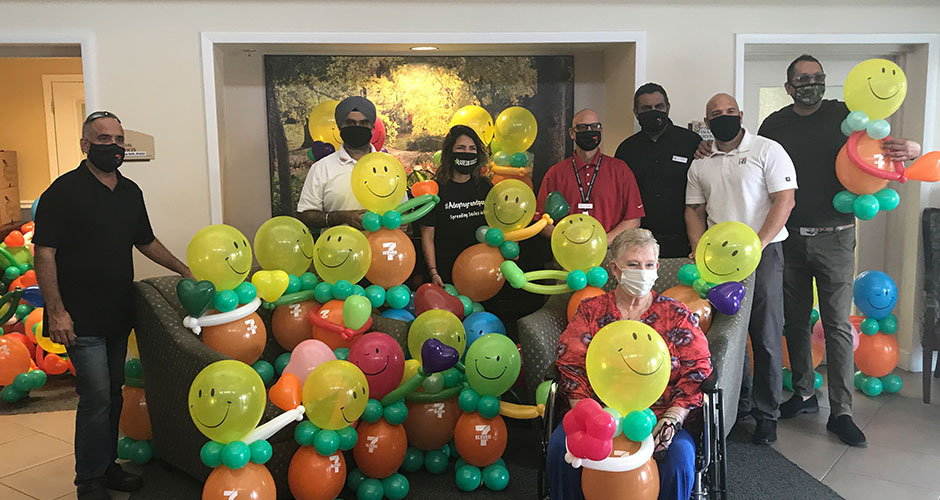 February 24, 2021Read story
February 24, 2021Read storyLocal 7-Eleven delivers smiles
Residents and staff at the Good Samaritan Society - Kissimmee Village received Valentine's Day love from a local 7-Eleven. -
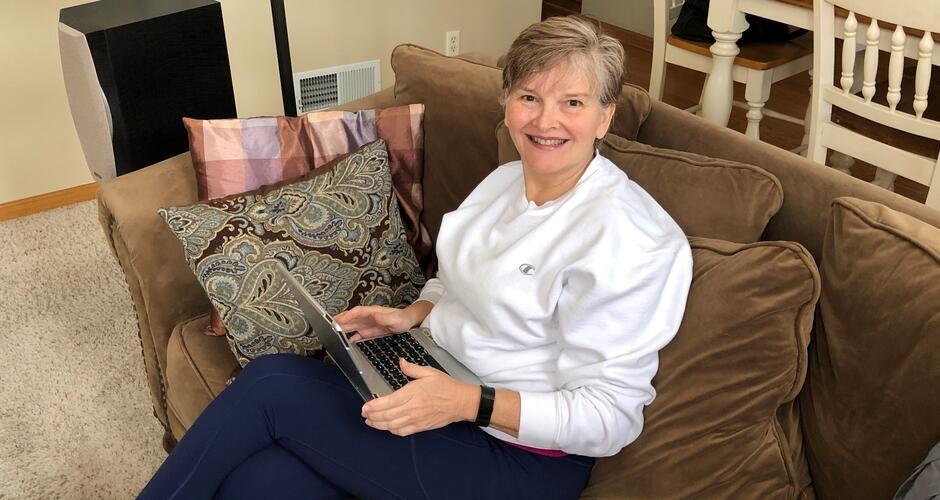 February 23, 2021Read story
February 23, 2021Read storyWisconsin woman’s daily letters bring residents to tears
Kirby Feldmann is on a mission to write letters to as many Good Samaritan Society residents she can -
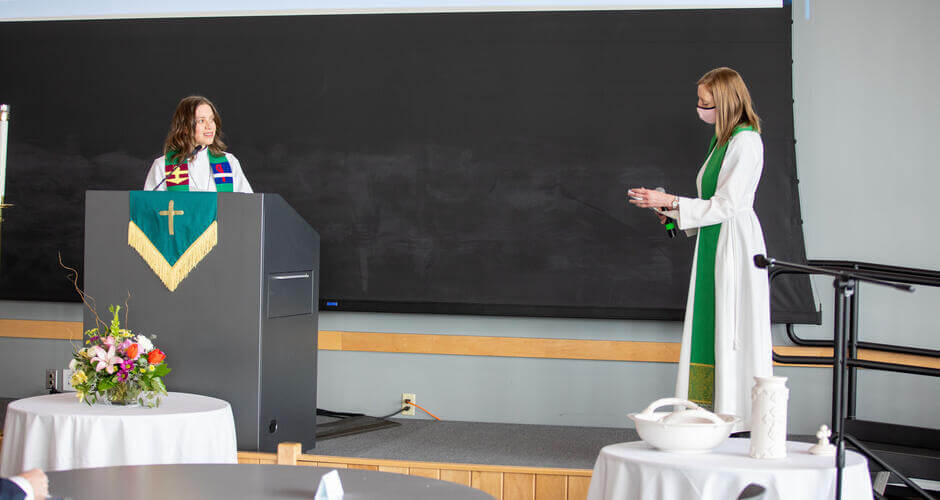 February 18, 2021Read story
February 18, 2021Read storyNew pastor installation provides uplifting moment at Society
Good Samaritan Society welcomes Rev. Christine Hallenbeck Ask. -
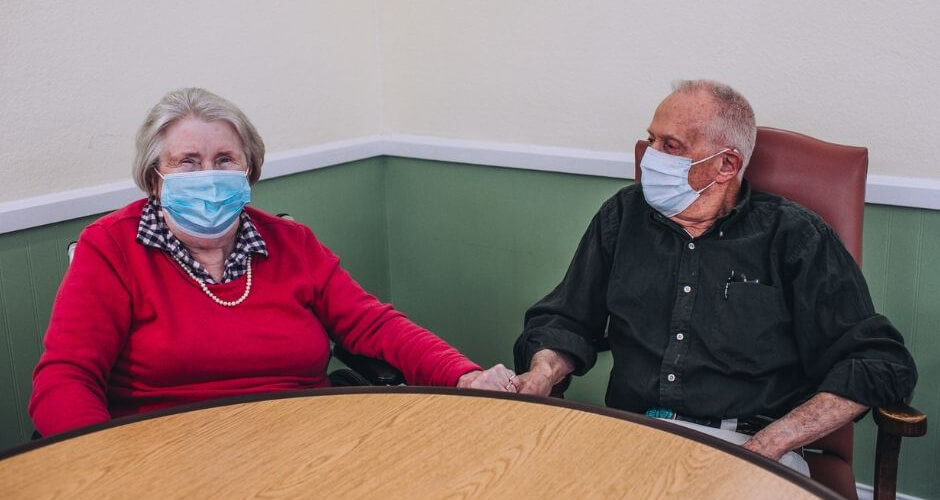 February 17, 2021Read story
February 17, 2021Read storySociety residents, married 64 years, share keys to success
Sue & Dave Shields are keeping their marriage strong through pandemic challenges. -
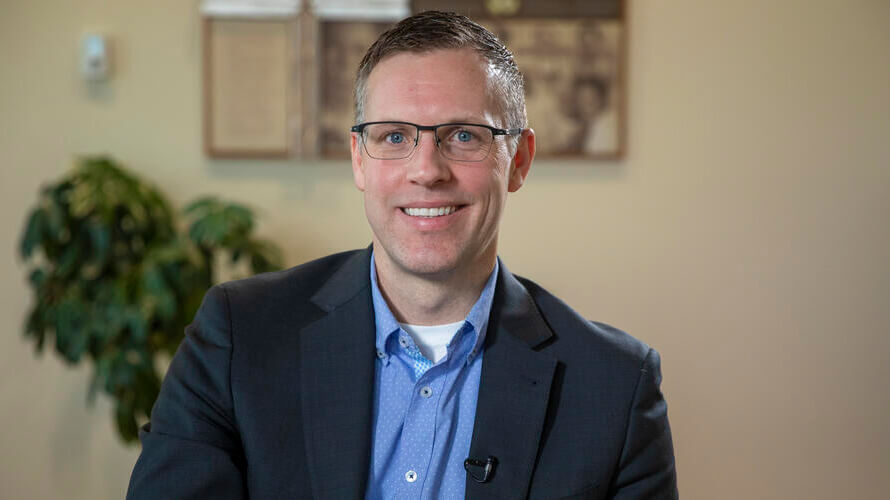 February 15, 2021Read story
February 15, 2021Read storyFamily visits allowed more often as COVID-19 cases drop
Senior living locations begin to roll back pandemic restrictions, safely. -
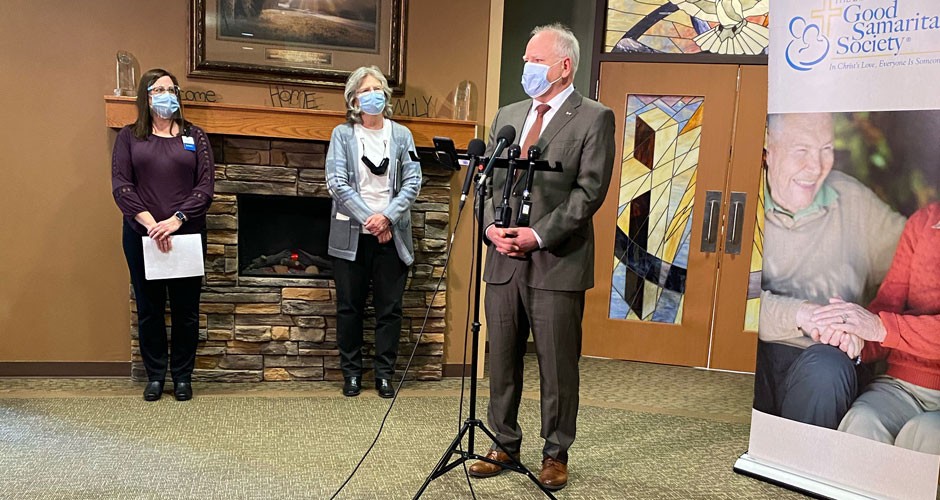 January 26, 2021Read story
January 26, 2021Read storyMN governor visits long-term care center to promote vaccine
Good Samaritan Society celebrates successful COVID-19 vaccination effort -
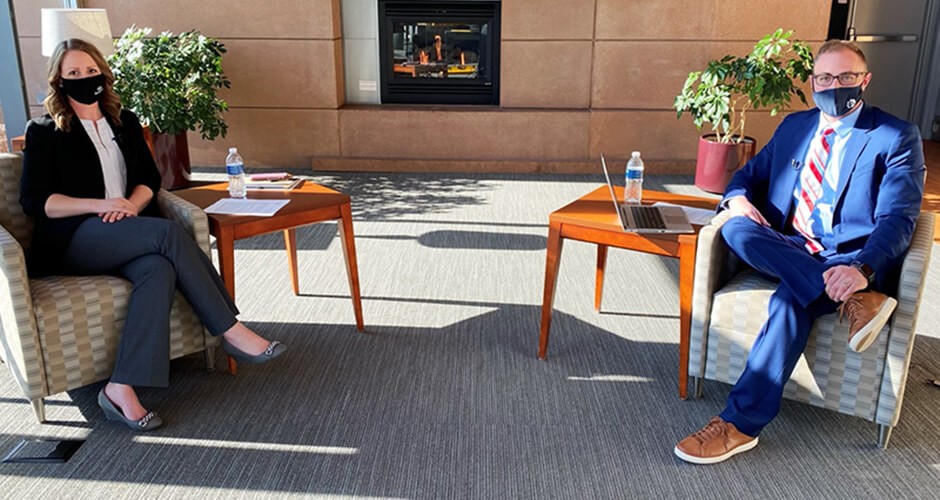 January 25, 2021Read story
January 25, 2021Read storyAlmost all Society locations have had COVID-19 vaccinations
The COVID-19 vaccine continues to reach new Good Samaritan Society locations every week. -
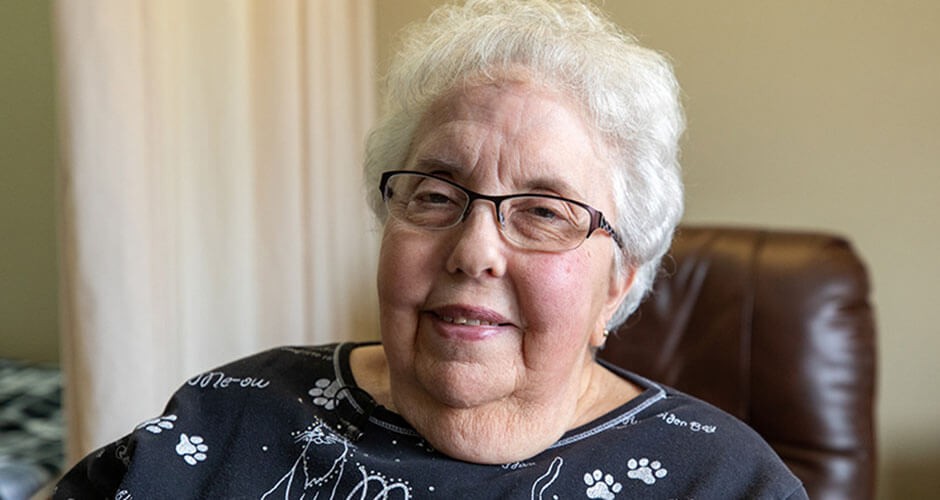 January 15, 2021Read story
January 15, 2021Read storyCOVID-19 vaccination clinic brings hope to Iowa residents
"This is the first step in putting that all behind us" -
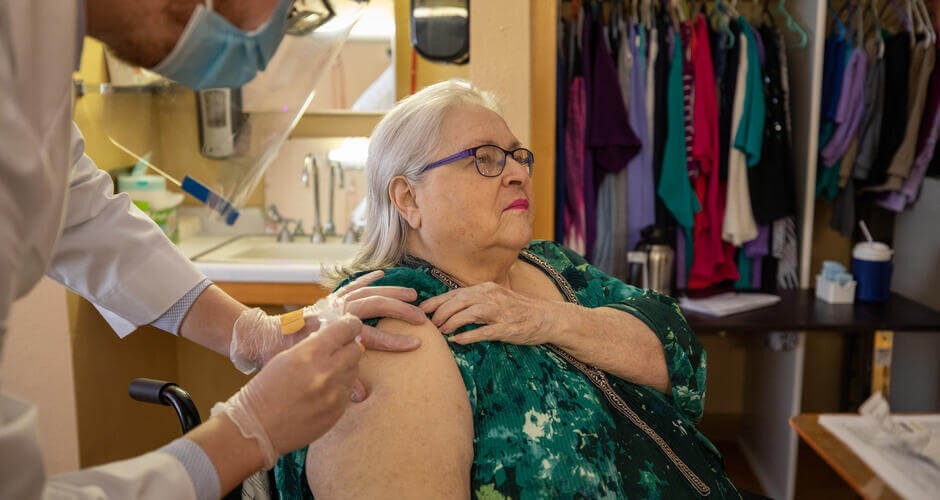 January 13, 2021Read story
January 13, 2021Read storySociety staff and residents in Windom get COVID-19 vaccine
Just before 8 a.m. on December 29, Walgreens employees are welcomed into Good Samaritan Society – Windom in Minnesota carrying shots of hope. -
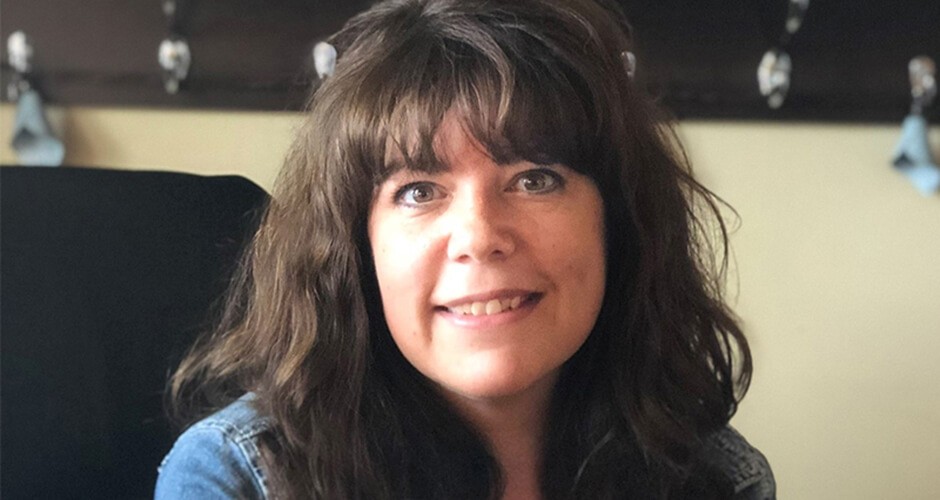 January 06, 2021Read story
January 06, 2021Read storyHospice nurse in Minnesota says job is a ‘calling’
A wide-ranging career in nursing is a “calling” for Amber Harris. The clinical nurse manager at Good Samaritan Society Hospice in Nisswa, Minnesota, has wanted to care for others since she was a teenager. -
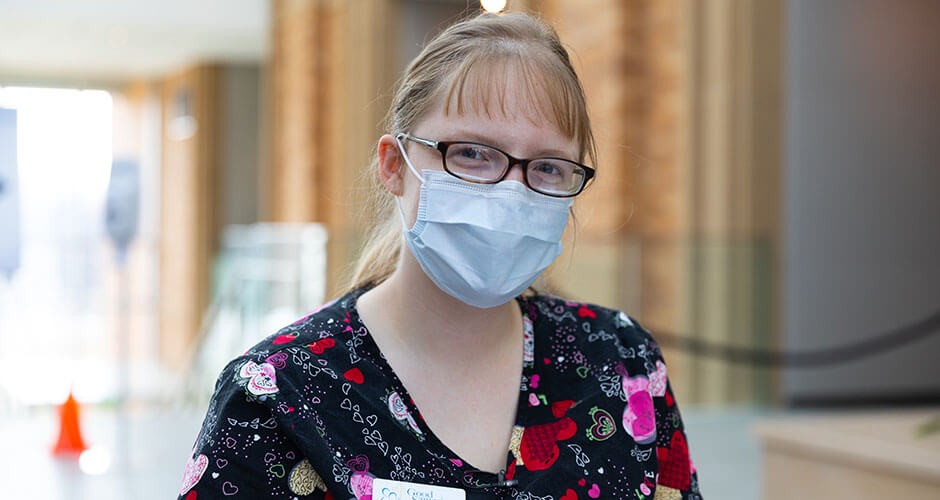 December 30, 2020Read story
December 30, 2020Read storyGood Samaritan Society nurse gets COVID shot for residents
Marianna Brawand, RN, is one of the first to get the COVID-19 vaccine. -
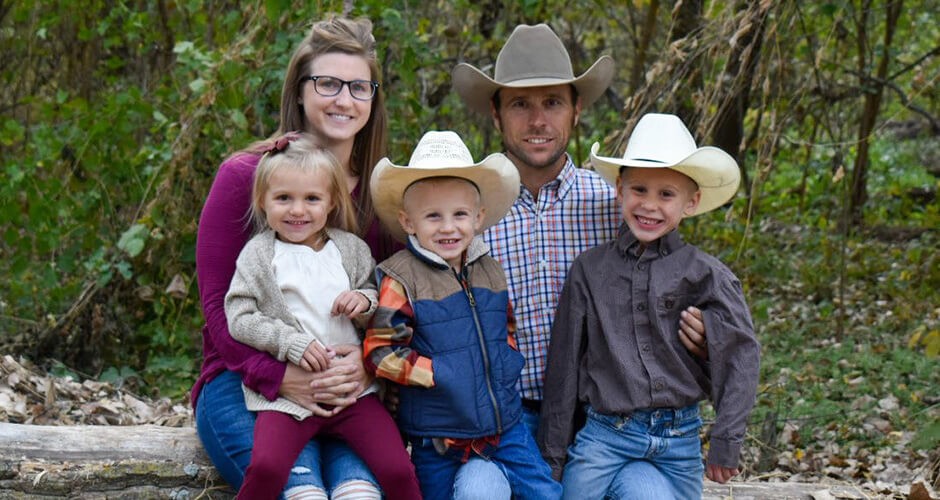 December 16, 2020Read story
December 16, 2020Read storyCreating meaningful connections in home health
At each home she visits, licensed practical nurse Jennifer Roesti always takes time to ask her patients how they’re doing. -
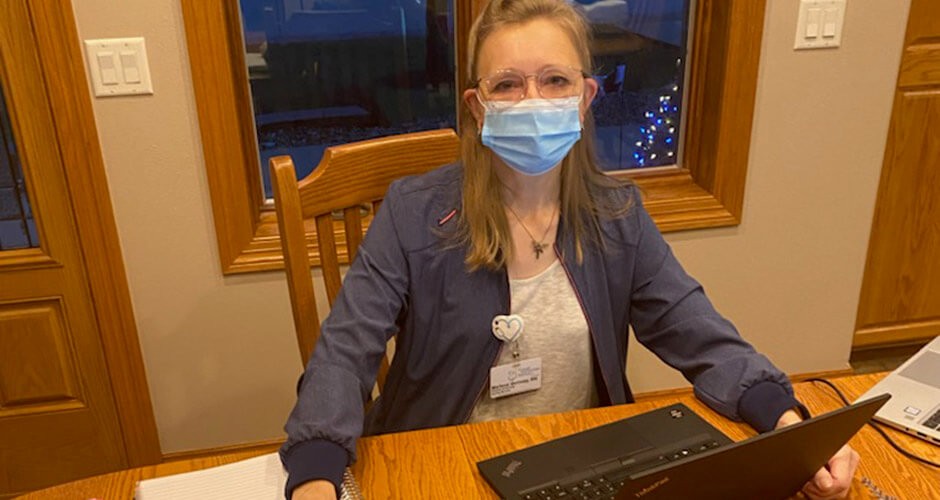 December 09, 2020Read story
December 09, 2020Read storyCreating a caring community
Marlene Quincey’s journey caring for others began long before she received her nursing degree. -
 December 06, 2020Read story
December 06, 2020Read storyStaff assists with hospice patients’ final wishes
When the team at Good Samaritan Society – Hospice (Brainerd Lakes) in Nisswa, Minnesota, received a call to see if they could help a woman in Florida spend her last days at her lake home in Minnesota, they didn’t hesitate to say yes. -
 December 02, 2020Read story
December 02, 2020Read storyFriends who met in 1950 reunited at Good Samaritan Society
By chance, two women are neighbors again in senior living after decades apart. -
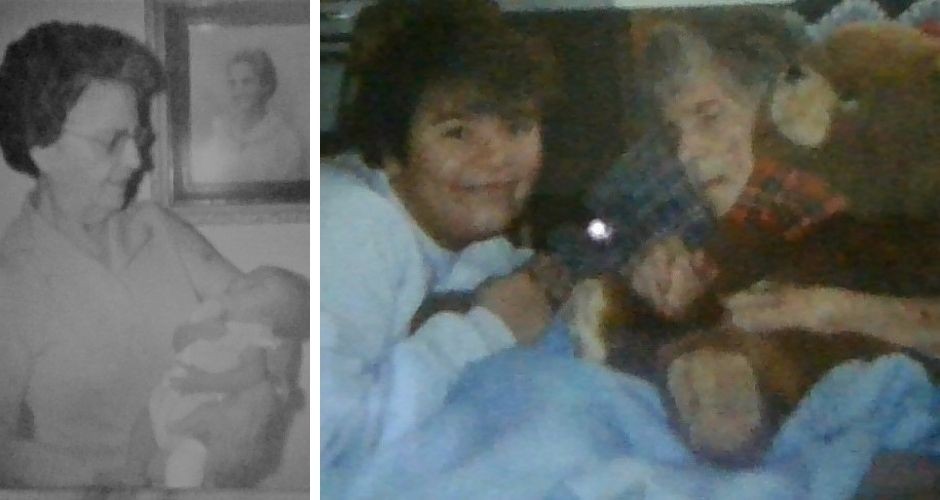 December 01, 2020Read story
December 01, 2020Read storyCaring for grandparents leads to calling
Growing up, Andrea Keck’s grandmother was diagnosed with Alzheimer's disease, a type of dementia that causes memory loss, confusion and can affect other cognitive abilities. As her grandmother got older, Andrea was able to lend a helping hand, assisting her grandmother with tasks from getting dressed to eating. -
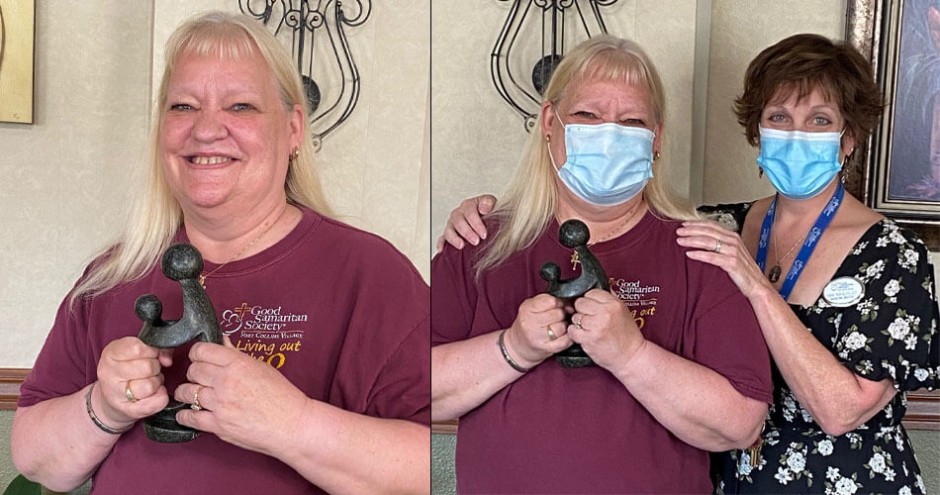 November 24, 2020Read story
November 24, 2020Read storyHealth Care Hero: Toni Brown
As a night nurse at Good Samaritan Society – Fort Collins Village, Toni Brown feels like it’s her purpose to help residents experience meaningful moments as they near the end of their lives. -
 November 19, 2020Read story
November 19, 2020Read storyGood Samaritan Society connects virtually with customers
The Good Samaritan Society is ready to meet with you wherever you are during the pandemic. -
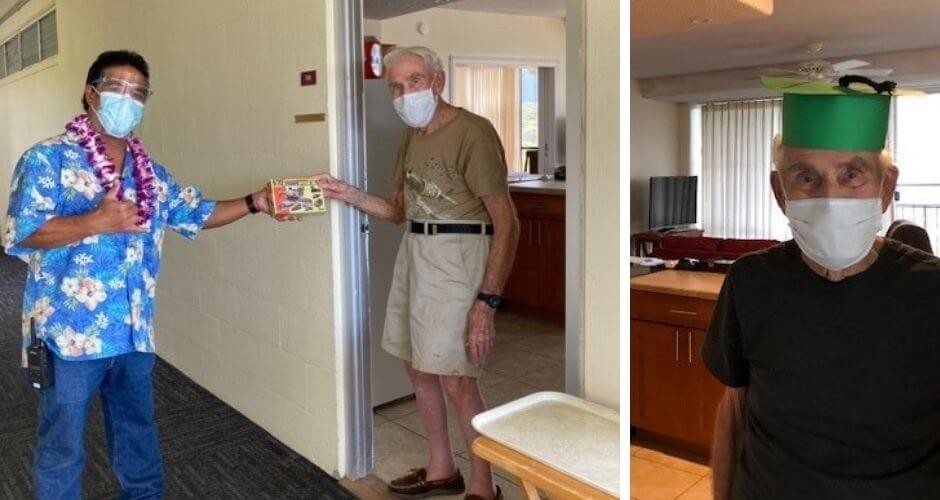 November 18, 2020Read story
November 18, 2020Read storyNew residents to look forward to first 14 days
New residents are asked to enter heightened observation for 14 days when they arrive. While that may sound challenging, staff members at locations across the country are coming up with fun activities to make the time fly by. -
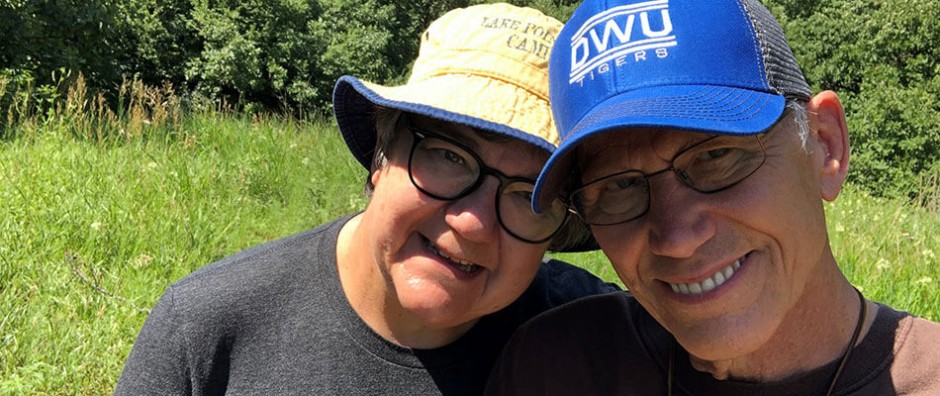 November 16, 2020Read story
November 16, 2020Read storyGratitude at the heart of Bill Gran’s life
Gratitude is good for physical and mental health, but is it possible to incorporate it into daily life? It begins with small, intentional steps. -
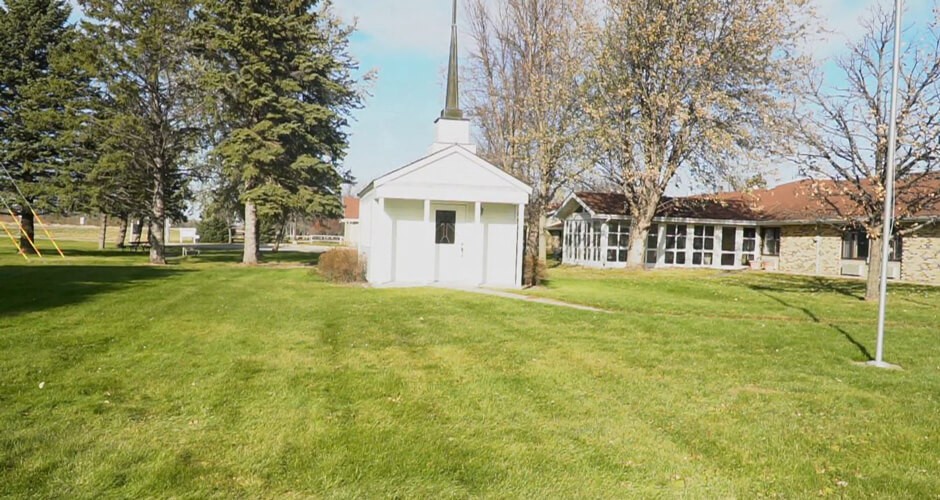 November 13, 2020Read story
November 13, 2020Read storyNursing home makes room for Sanford Fargo patients
The unique, integrated health system between Sanford Health and The Good Samaritan Society is bringing much-needed relief to hospital capacity in Fargo, North Dakota, during the pandemic. -
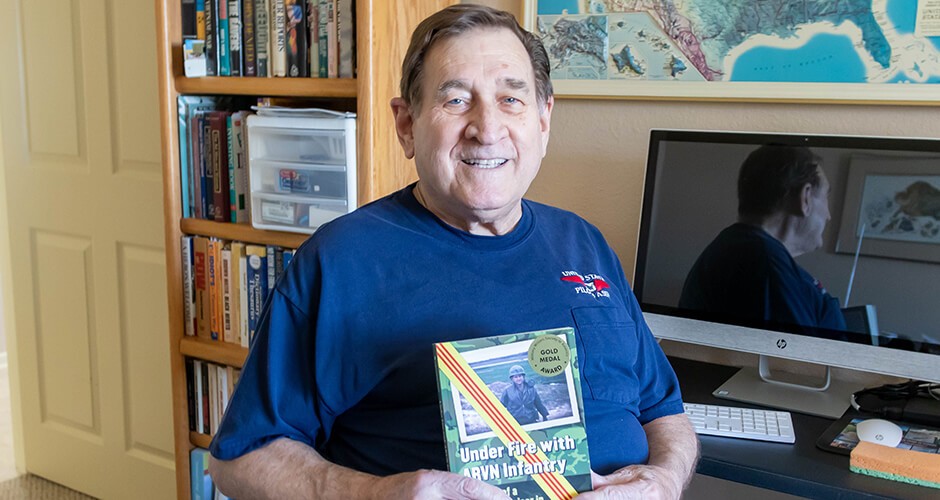 November 10, 2020Read story
November 10, 2020Read storyVeteran living at Good Samaritan Society wins literary award
Bob Worthington, a professional writer, is taking home a Gold Medal for Excellence in Literature for his book, "Under Fire with ARVN Infantry." The Military Writers Society of America is handing out the award. -
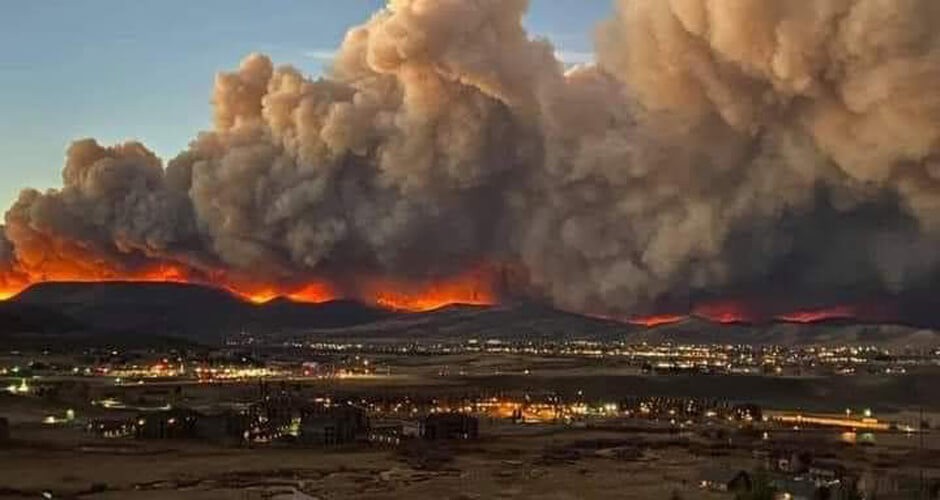 November 06, 2020Read story
November 06, 2020Read storyColorado wildfires: Good Samaritan Society evacuates safely
Estes Park Village residents are back home after a few days at other locations. -
 October 30, 2020Read story
October 30, 2020Read storyCelebrating Halloween safely at Good Samaritan
At Good Samaritan – Postville, Iowa, residents will be in for a treat this Halloween despite the current pandemic.
-
 October 21, 2020Read story
October 21, 2020Read storyProviding home care for COVID-19 patients is part of the calling
Good Samaritan – Home Care in St. Peter, Minnesota, didn’t flinch when the coronavirus began moving through the area. -
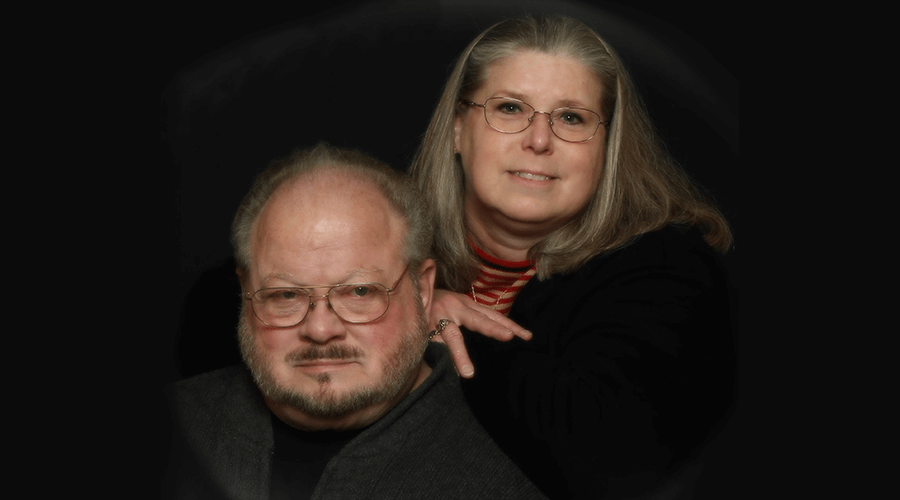 October 19, 2020Read story
October 19, 2020Read storyRehab patient makes amazing recovery
When Vicki Hark’s husband, Timothy, was admitted to Hoeger House rehabilitation center, she didn’t know if he would recover from the serious illnesses he was battling. -
![Coping with the loss of a spouse [video] Coping with the loss of a spouse [video]](/-/media/project/good-sam/stories/items/al_familyphoto-940x500.jpg?h=500&iar=0&w=940&hash=5FEE4558C746122306BF61A3C6F629C0) October 15, 2020Read story
October 15, 2020Read storyCoping with the loss of a spouse [video]
When Al Cheney's wife, Lillian, died, he says grieving was difficult for him. -
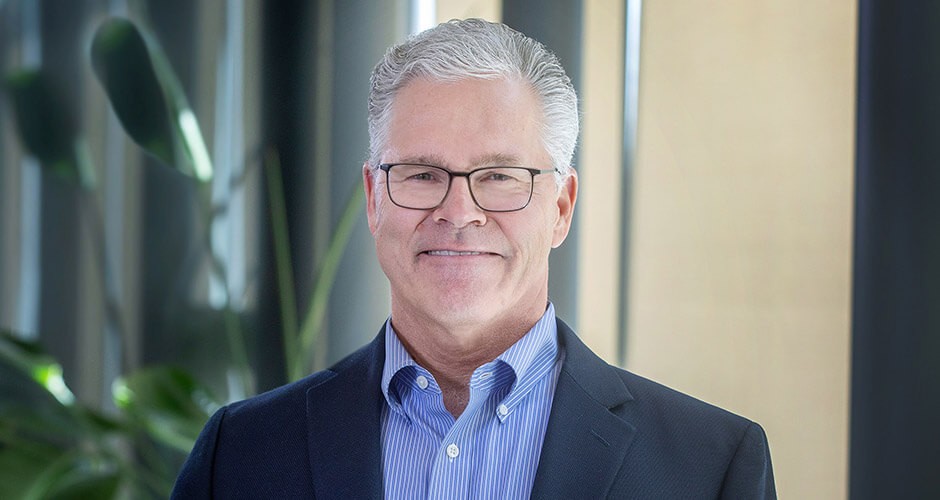 October 12, 2020Read story
October 12, 2020Read storySociety president Randy Bury chosen for health care board
American Health Care Association represents long-term care providers nationwide. -
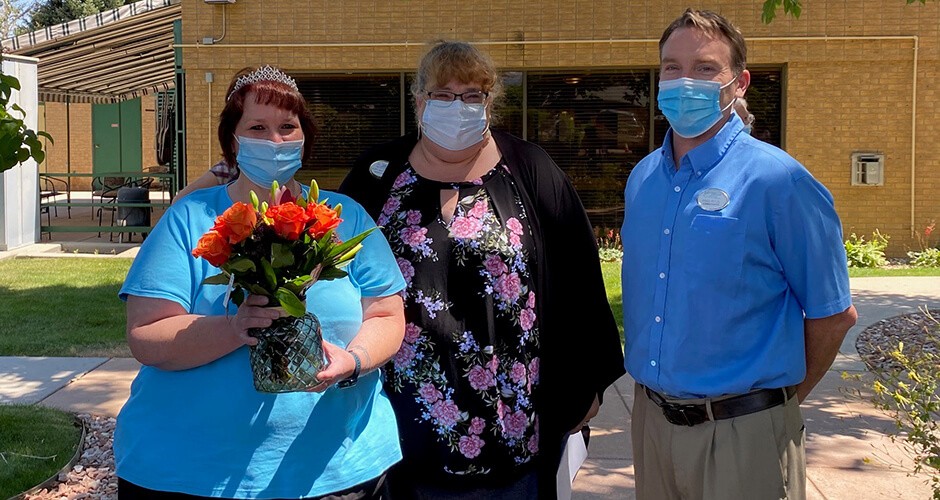 October 08, 2020Read story
October 08, 2020Read storyAnnette Rosario earns OnShift lifetime achievement award
Almost 30 years ago, Annette Rosario began her career with Good Samaritan Society – Fort Collins Village in Fort Collins, Colorado. -
 October 07, 2020Read story
October 07, 2020Read storyMoving into assisted living during the pandemic
Diane Nichols’ parents had lived in the same house in Pipestone, Minnesota, for 40 years when the idea of moving the couple to an assisted living community became part of the conversation within the family. -
 October 05, 2020Read story
October 05, 2020Read storyTechnology plays an important role during pandemic
In the early days of the pandemic, three needs quickly arose for the Good Samaritan: an easy screening and reporting tool to keep families informed, a way to keep residents connected with their loved ones and the ability to recruit staff members when in-person interviews weren’t an option.
-
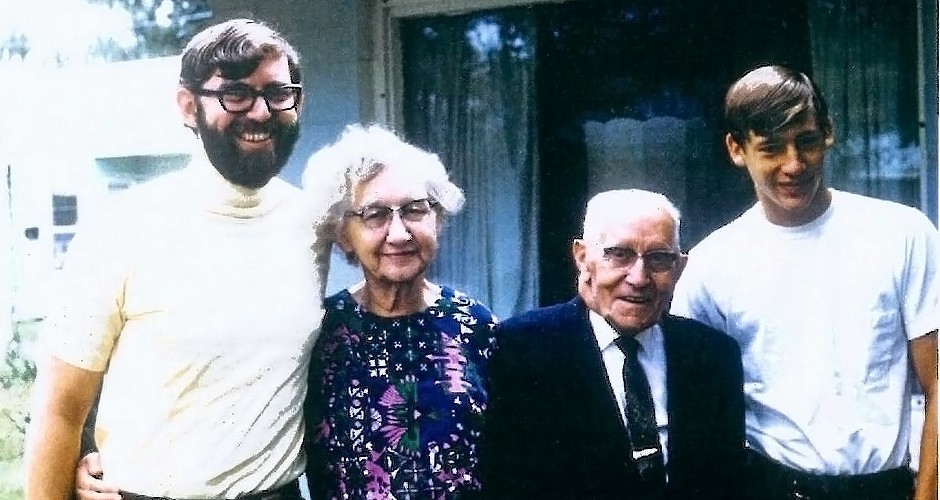 September 29, 2020Read story
September 29, 2020Read storyGreg Wilcox leaves a legacy of service
It’s not always easy to sum up a 32-year career, but for Greg Wilcox, who’s retiring from his role as vice president of mission integration and senior pastor for the Good Samaritan Society, there’s a deep sense of thankfulness. -
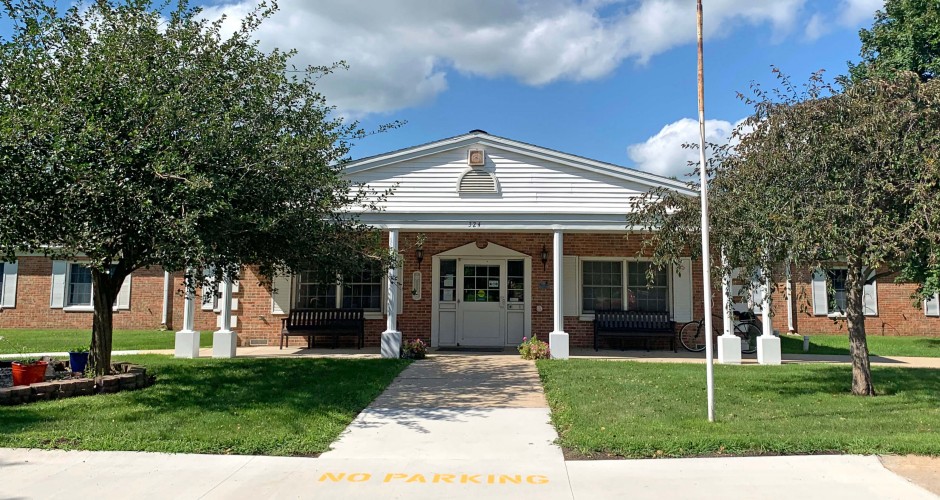 September 28, 2020Read story
September 28, 2020Read storyHealth care hero: Kelsey Mergen, administrator
A nursing home means a lot to a small town. It’s a place loved ones are well cared for while being able to live close. It’s usually a significant employer there, offering a short commute and a chance to live out a calling. And it’s a place where history lives – where residents’ and employees’ memories interweave. -
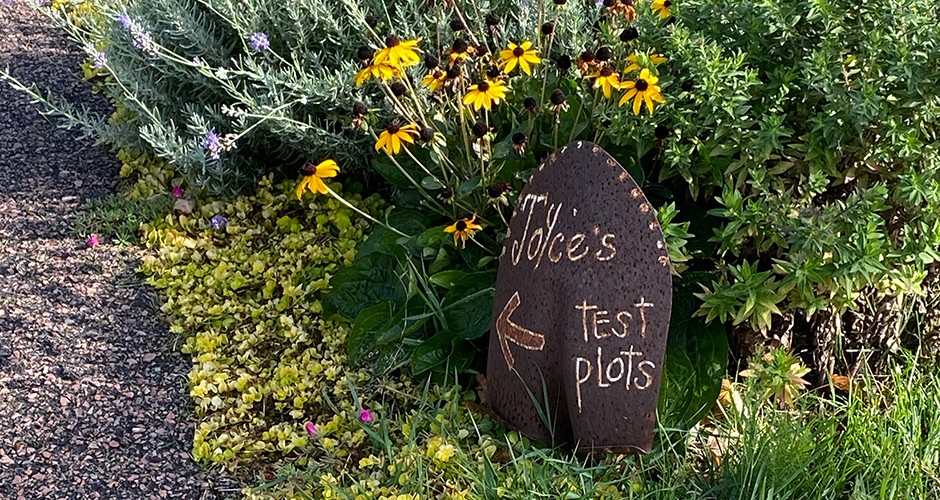 September 22, 2020Read story
September 22, 2020Read storyGardening grows community connection
Pedestrians enjoying the scenic walking path at Good Samaritan Society – Prairie Creek in Sioux Falls, South Dakota, will find a pleasant surprise in a colorful garden on the northeast edge of campus. -
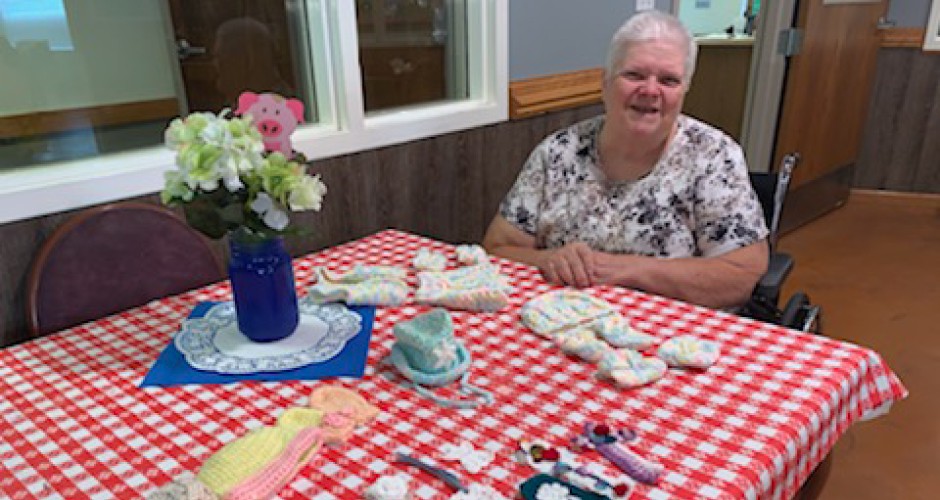 August 27, 2020Read story
August 27, 2020Read story“Fair” keeps residents active during pandemic
This summer has given residents at Good Samaritan – Hays in Hays, Kansas, the chance to get some fresh air, watch Royals baseball, play Wii bowling – and also participate in the center’s first-ever fair.
-
 August 26, 2020Read story
August 26, 2020Read storyVirtual job fairs become the norm at the Good Samaritan Society
Throughout the COVID-19 pandemic, many businesses and health care organizations have been forced to put a halt on hiring. -
 August 20, 2020Read story
August 20, 2020Read storyCOVID-19 FAQs: Do nursing homes have enough PPE?
In hospitals, clinics and long-term care locations, personal protective equipment has been a vital part of providing health care for generations.
-
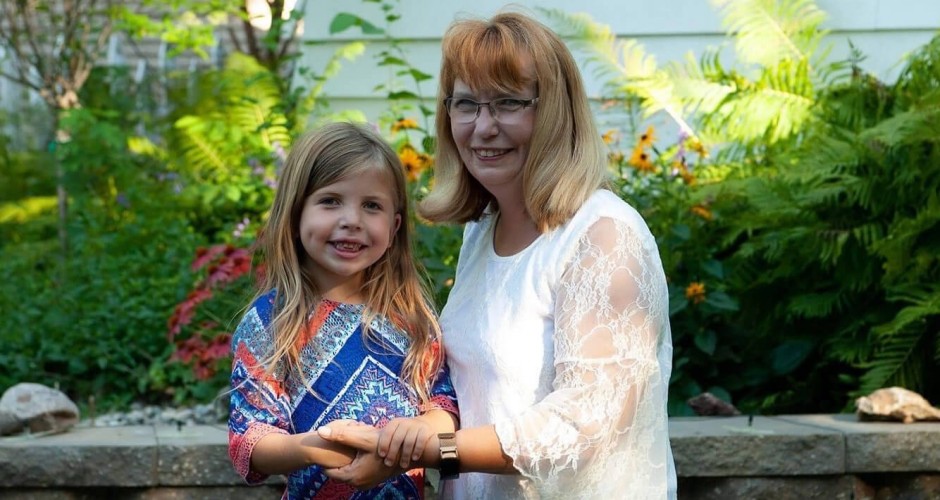 August 19, 2020Read story
August 19, 2020Read storyCaring is second nature for DAISY Award recipient
When Becky Carpenter began working as a certified nursing assistant in 1991, she didn’t realize it would turn into a nursing career. But after almost three decades, she can’t imagine doing anything else. -
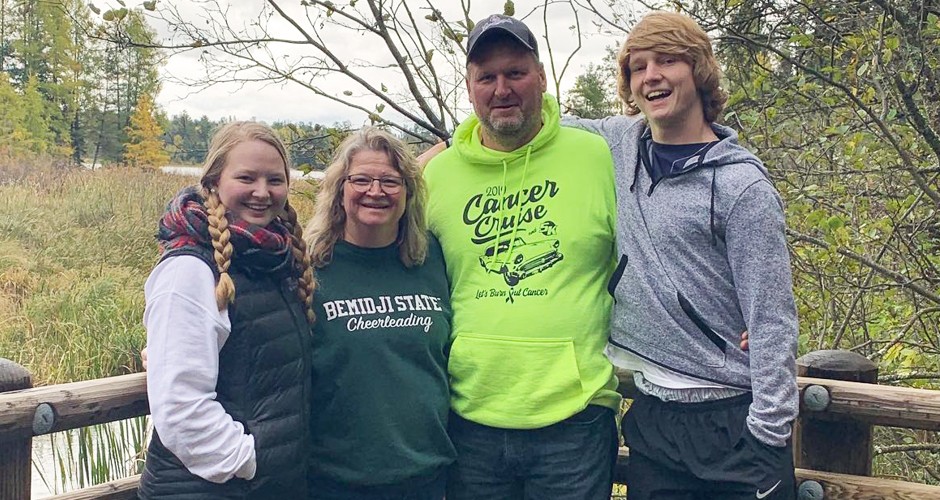 August 17, 2020Read story
August 17, 2020Read storyHealth care hero: Anita Quast, activity director
Anita Quast has the type of job that many people hope for – one that’s enjoyable and fulfilling. -
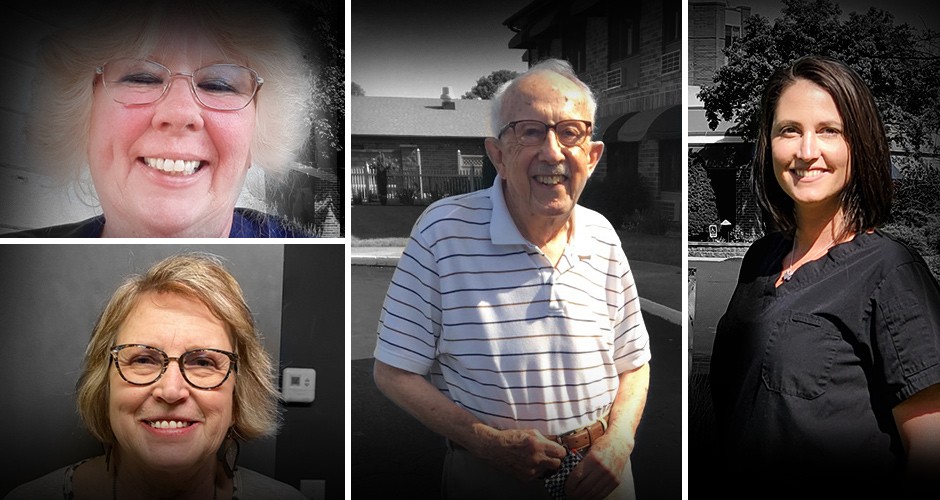 July 29, 2020Read story
July 29, 2020Read storyHonoring our Champions
Each year, the Good Samaritan Society honors staff members, a leader and a volunteer as National Ever Forward Champions. These individuals embody the values of calling, community, courage and service. -
 July 23, 2020Read story
July 23, 2020Read storyEquine therapy boosts spirits with horse power
Sanford Health and the Good Samaritan take pride in caring for the entire person — not only looking after the physical health of its patients and residents, but the mental health as well.
-
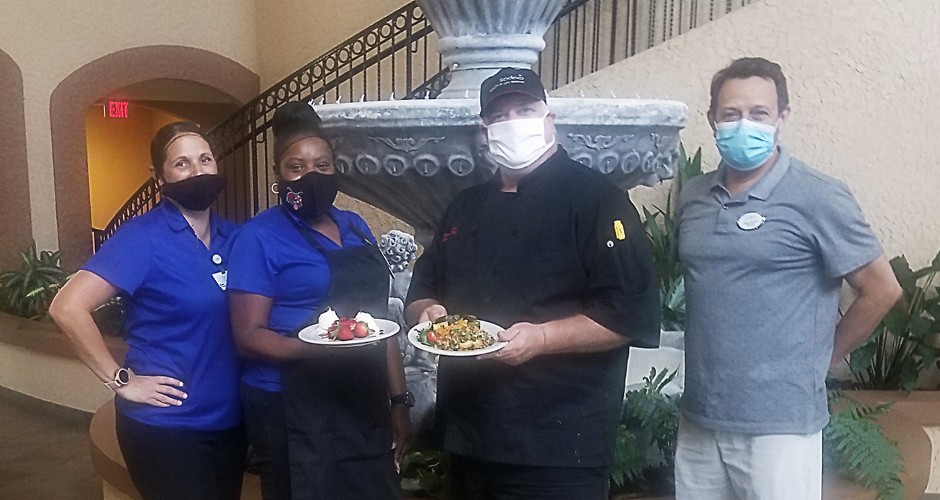 July 21, 2020Read story
July 21, 2020Read storyDiverse menu appeals to residents’ taste buds
Fresh food options, a new chef and updated recipes have improved the dining experience at Good Samaritan Society – Kissimmee Village in Kissimmee, Florida. -
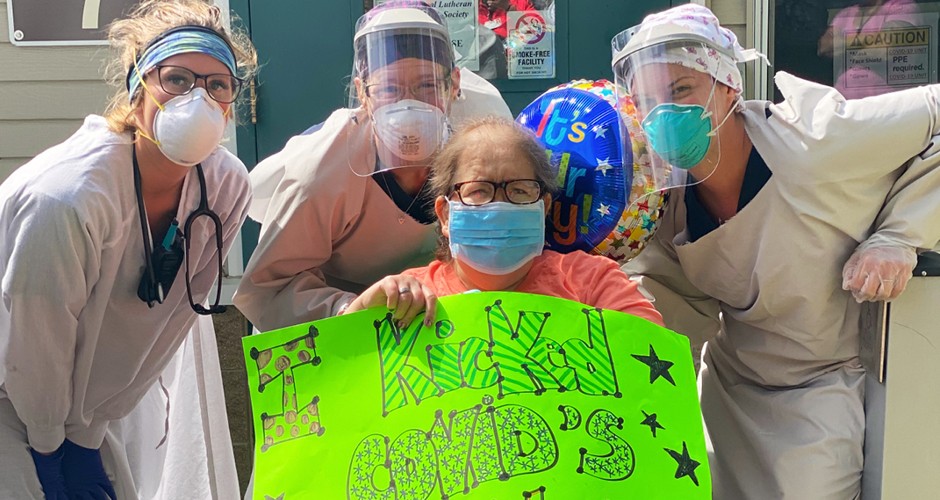 July 07, 2020Read story
July 07, 2020Read storyResident beats the odds to recover from COVID-19
Great health care, a fighting spirit and the power of prayer all played a role in Krisann Hoskins’ recovery from COVID-19. -
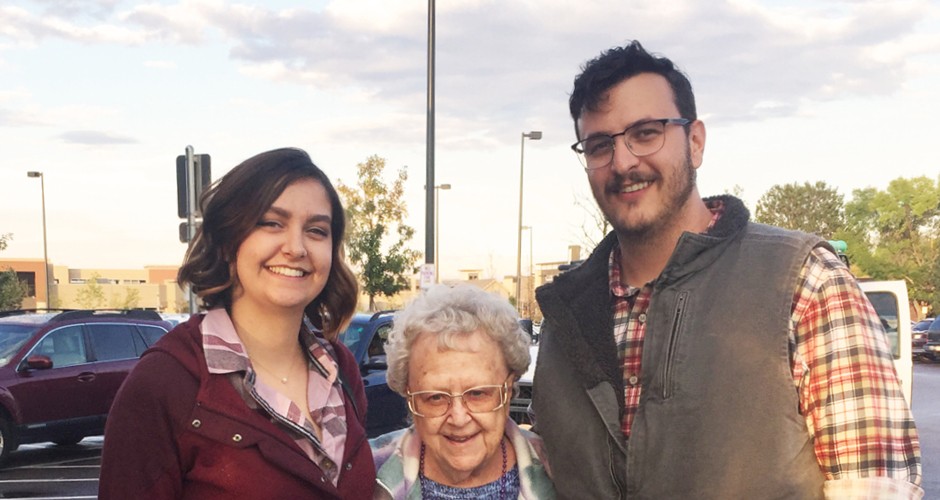 July 06, 2020Read story
July 06, 2020Read storyMaking a transition during COVID-19
Moving during a pandemic may not be ideal, but the Good Samaritan is ready and willing to help you or your loved one with the care and services you need.
-
 July 02, 2020Read story
July 02, 2020Read storyKacie Kula is the Society’s first DAISY Award recipient
Kacie is a nurse at Good Samaritan Society – Albert Lea in Albert Lea, Minnesota. Kacie began working at the location in August 2019. -
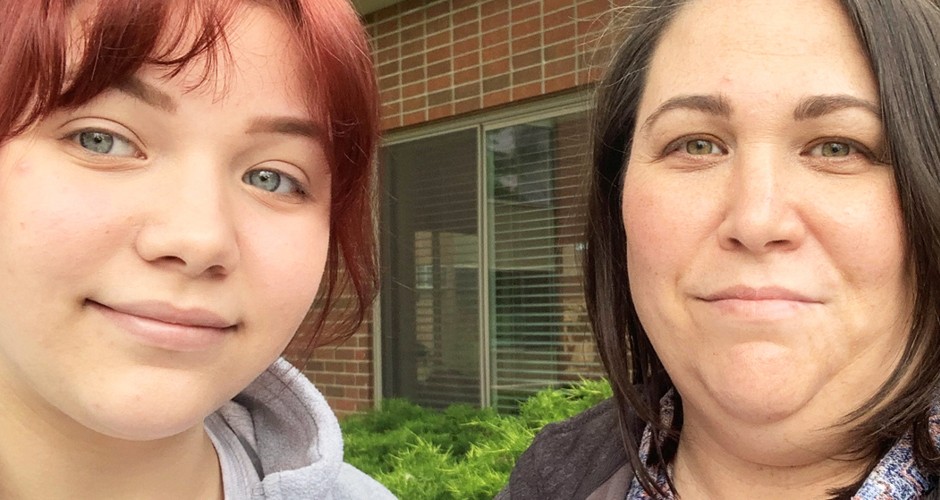 June 25, 2020Read story
June 25, 2020Read storyDaughters carry on their mother’s legacy
It’s not as uncommon as you might think to find mother and daughter pairs working at the Good Samaritan Society. -
 May 29, 2020Watch story
May 29, 2020Watch storyCare, birthday party go ‘above and beyond’ at Sioux Falls Village
When Joan Coleman had a stroke followed by other health issues in 2014, her family moved her to the Good Samaritan Society Hearthstone Assisted Living center in Sioux Falls, South Dakota. -
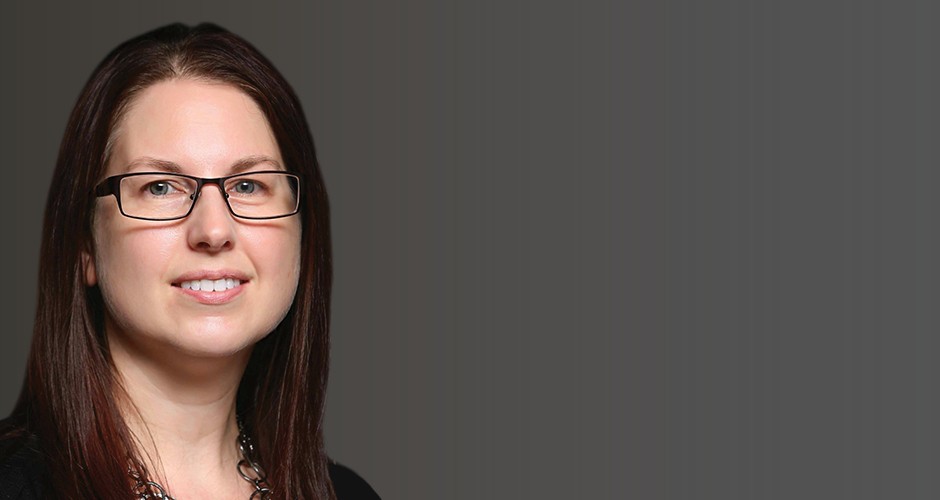 May 27, 2020Read story
May 27, 2020Read storyClinical educator volunteers to help in tough spots
While the coronavirus pandemic is a hardship for everyone, nurses are often asked to make more significant sacrifices.
-
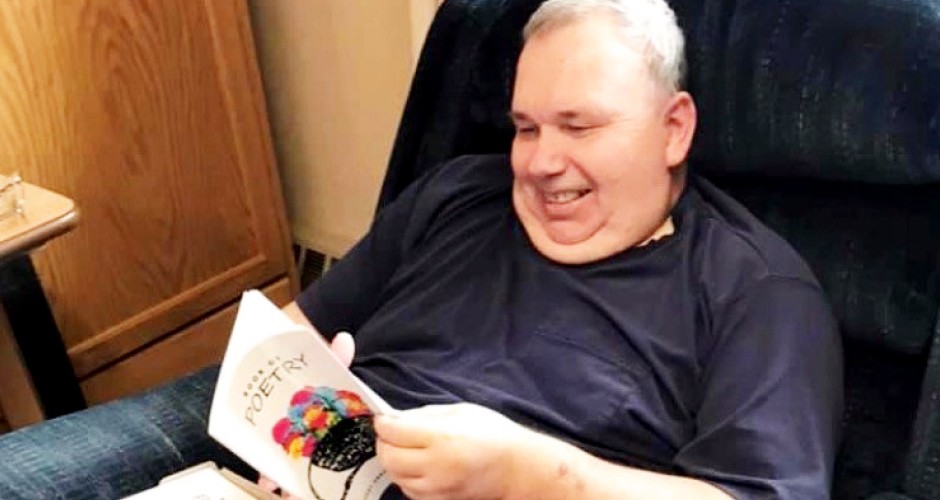 May 23, 2020Read story
May 23, 2020Read storyMary Lee helps resident get book of poems published
Throughout the pandemic, staff at Good Samaritan communities have demonstrated dedication, commitment, sacrifice and courage. -
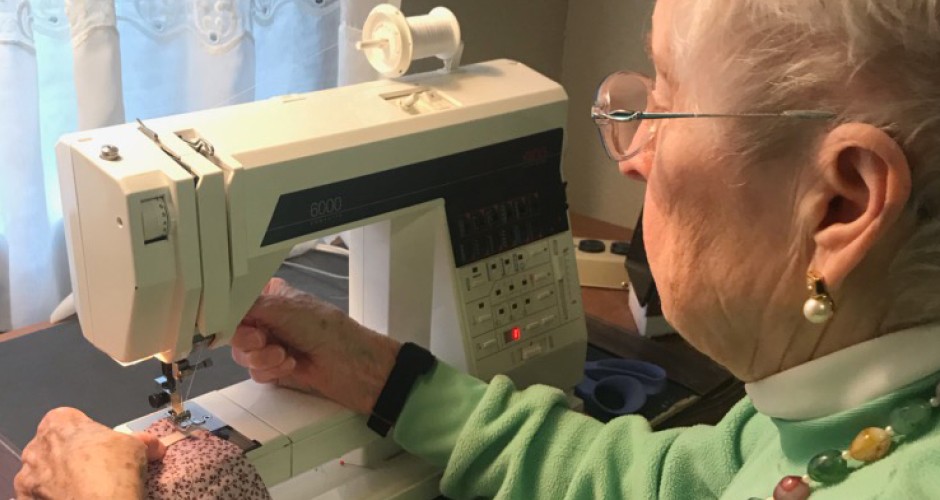 May 04, 2020Read story
May 04, 2020Read story100-year old resident surpasses goal of sewing 100 face masks
Cedar Lake Village resident Bonnie Rouse recently joined the ranks of those working hard to make face masks for those in need during the COVID-19 pandemic. Rouse, however, is not your average mask maker; last month, she turned 100 years old. -
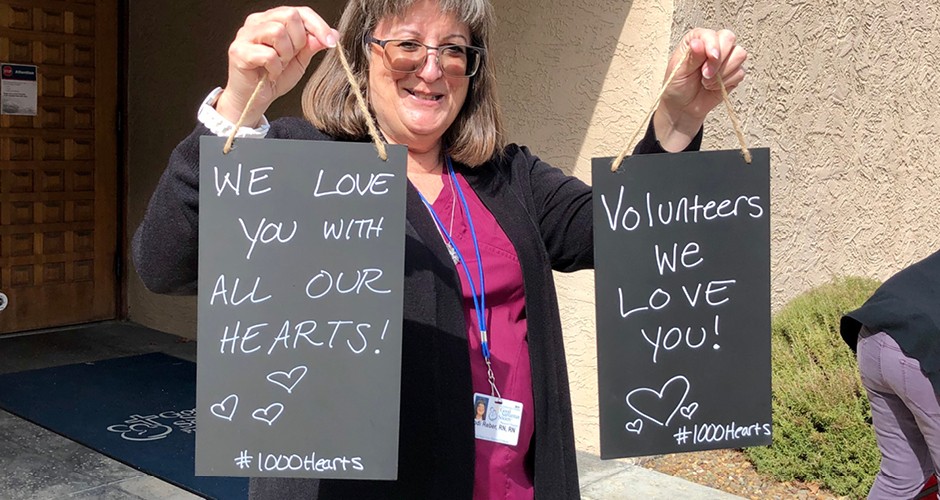 April 20, 2020Read story
April 20, 2020Read storyA project from the heart impacts 1,000 Arizona seniors
It didn’t take long after visitor restrictions were in place for Heather Seets to get creative.
-
 April 10, 2020Watch story
April 10, 2020Watch storyGood Samaritan Society helps residents stay connected with new iPads
Courtney Collen, Sanford Health News | Photo/Video by Max Jensen, Sanford Health
-
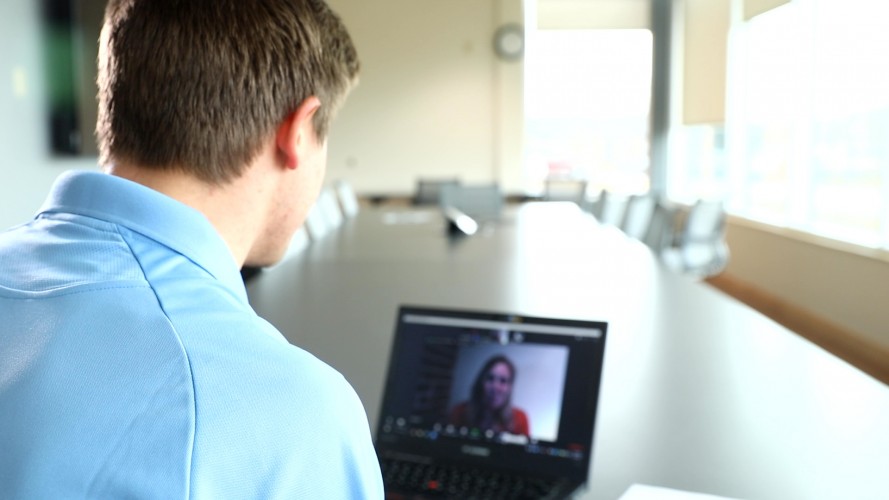 April 03, 2020Read story
April 03, 2020Read storyCreativity is key to keeping residents active and engaged during COVID-19 pandemic
Staff members at Good Samaritan locations across the country are finding creative ways to make sure residents stay engaged and active during the COVID-19 pandemic. -
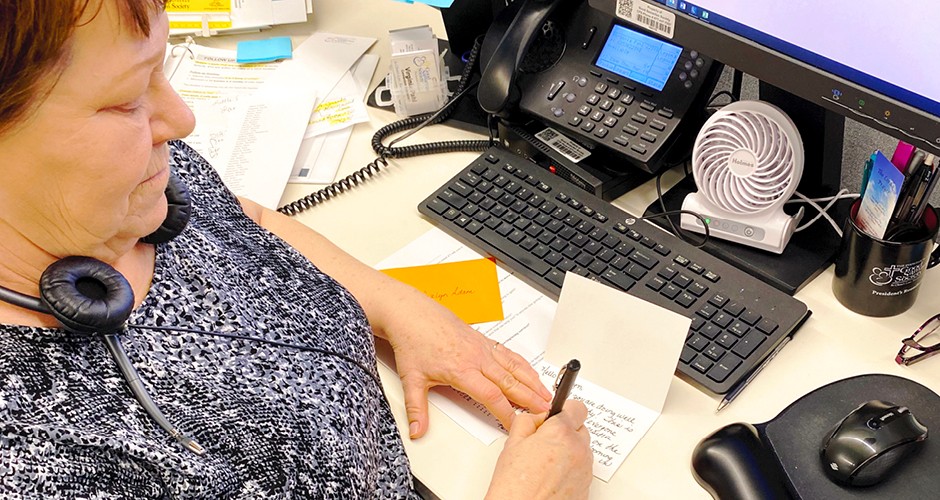 April 03, 2020Read story
April 03, 2020Read storyWriting letters to uplift spirits
Virginia Pahl, a Connection Center specialist at the Good Samaritan Society, found a simple way to uplift the spirits of residents during the COVID-19 pandemic. -
![Rehab therapy: Living proof of the healing we provide [video] Rehab therapy: Living proof of the healing we provide [video]](/-/media/project/good-sam/stories/items/meribethheader.jpg?h=500&iar=0&w=940&hash=6A7B48449040E04385FDD57E9EC406CA) November 20, 2019Watch story
November 20, 2019Watch storyRehab therapy: Living proof of the healing we provide [video]
When Meribeth Arndt needed help recovering from an accident, and she knew right where to go. -
![How one nurse’s salary is building a school in Africa [video] How one nurse’s salary is building a school in Africa [video]](/-/media/project/good-sam/stories/items/frances-kodjo-940x500.jpg?h=500&iar=0&w=940&hash=DB6913E917CBE6E4CDFCA82CFCDB5BF2) October 29, 2019Read story
October 29, 2019Read storyHow one nurse’s salary is building a school in Africa [video]
A nurse in Iowa says he's found his calling helping seniors in America and children in his West African home country. -
![A new road, a second chance at life [video] A new road, a second chance at life [video]](/-/media/project/good-sam/stories/items/georgeroschedited.jpg?h=500&iar=0&w=891&hash=998ECC7A8A353681FAE2C1E98DDBDF74) October 21, 2019Watch story
October 21, 2019Watch storyA new road, a second chance at life [video]
A fall from a tanker changed one man's perspective on life. -
 October 17, 2019Read story
October 17, 2019Read story4 benefits to working with our hands
When Pete Geyeman enters the woodshop at Good Samaritan – St. Martin Village, his hands get busy measuring wood, guiding a saw and gluing pieces together.
-
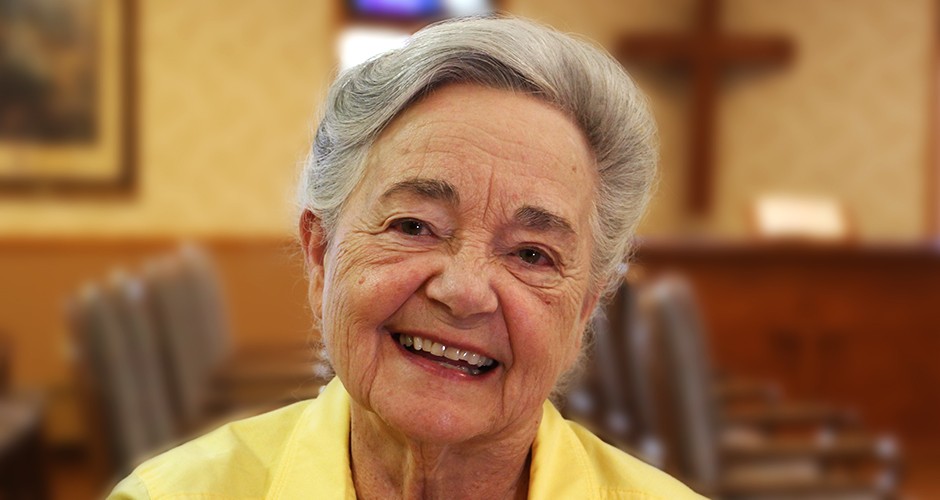 September 25, 2019Read story
September 25, 2019Read storyVolunteer brings a ‘ray of sunshine’ to residents
For 35 years, volunteer Joann Kloos has been stopping by to spend time with residents at Good Samaritan Society – Ambassador. -
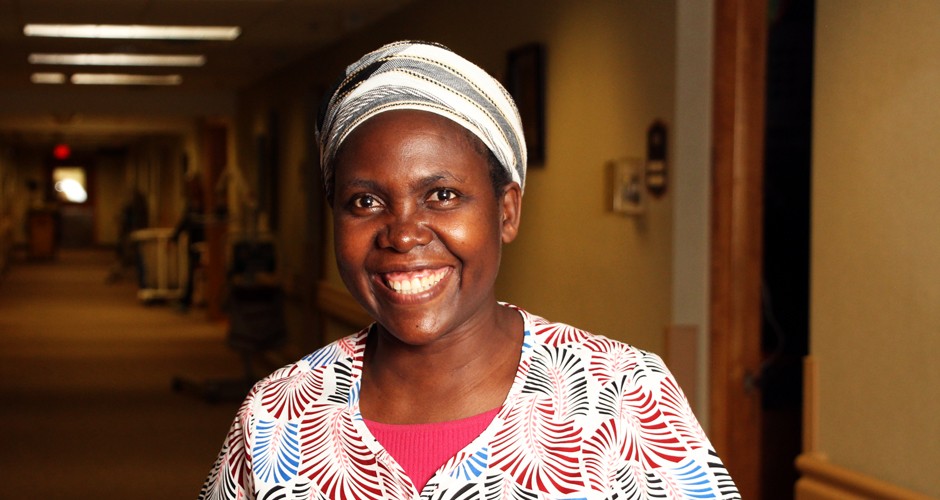 September 20, 2019Read story
September 20, 2019Read storyAmazing Grace
Her smile, songs and love have helped one employee blossom into an invaluable part of our Good Samaritan Society family. -
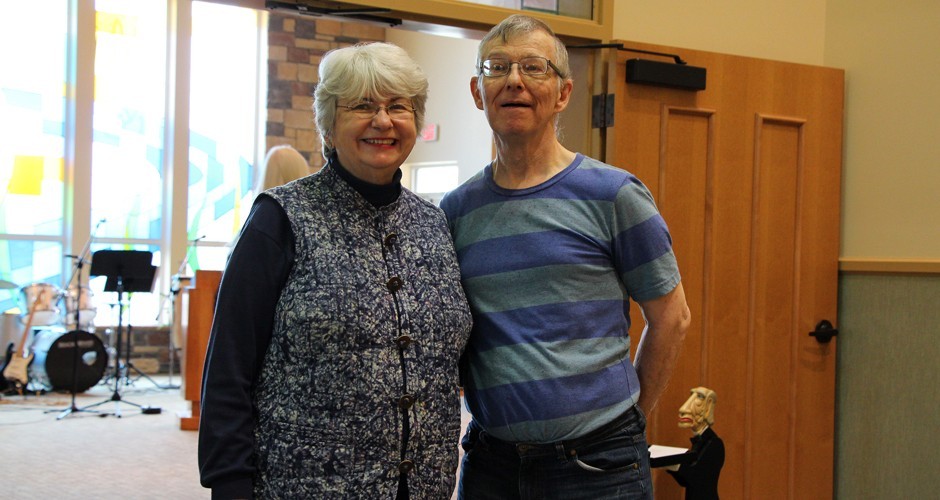 September 19, 2019Read story
September 19, 2019Read storyMusic therapy brings peace to wife’s difficult decision
A Minnesota woman struggled with moving her husband into a care center. But one feature now allows him to thrive. -
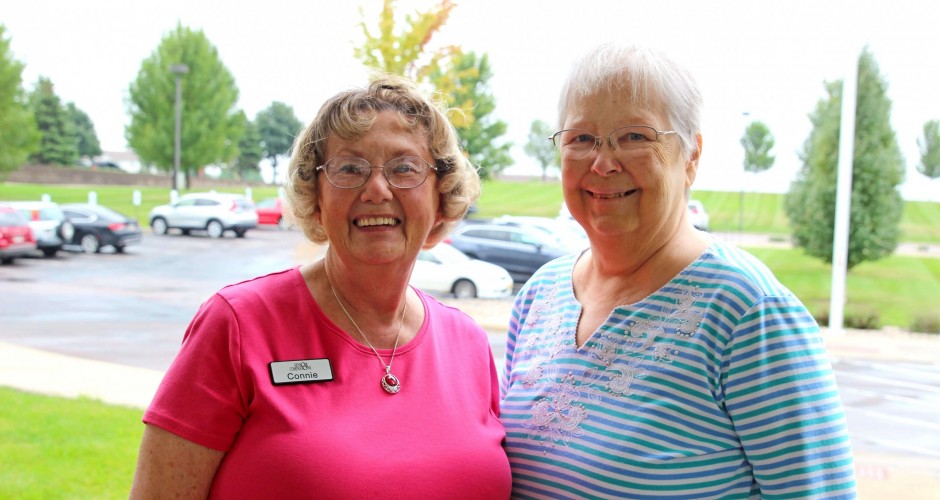 September 13, 2019Read story
September 13, 2019Read storySenior Companions are ‘guardian angels’ to those they serve
After retirement, Connie Peters was looking to do more with the free time she had. When she became a Senior Companion, caring for others filled her life again. -
![Rehab therapy: Setting sights on home [video] Rehab therapy: Setting sights on home [video]](/-/media/project/good-sam/stories/items/bridgette_jim_sara_940x500.jpg?h=500&iar=0&w=940&hash=E4165DB39787D2672ACC6A5A949BB1F9) September 04, 2019Read story
September 04, 2019Read storyRehab therapy: Setting sights on home [video]
After falling and breaking a hip, Good Samaritan Society – Le Mars post-acute care is helping 80-year-old Jim Schoenrock get back home. -
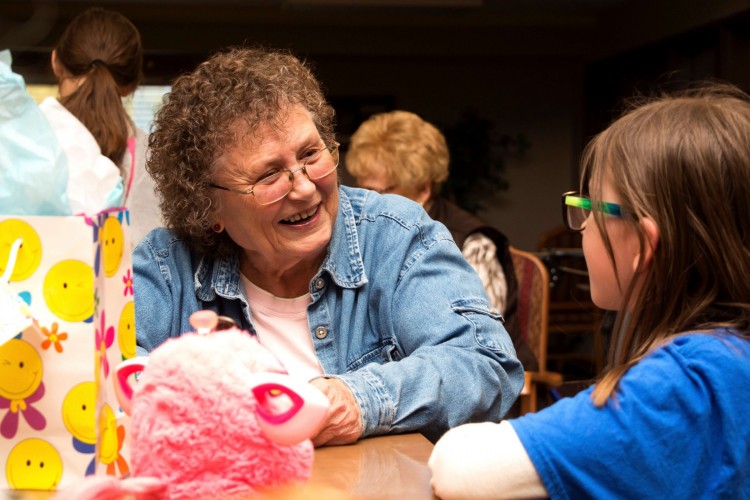 September 03, 2019Read story
September 03, 2019Read storyPen pals: Fostering friendships across generations
A project started to help students practice cursive writing and reading is connecting third grade students with seniors. -
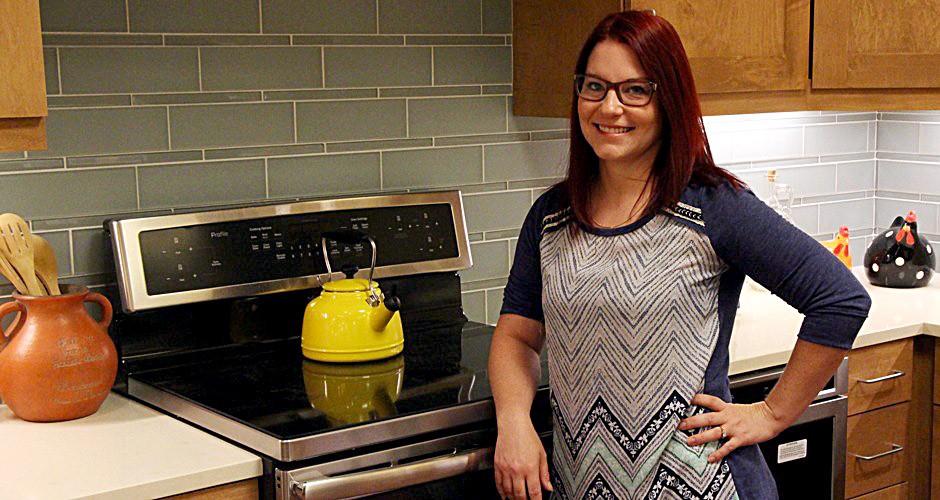 August 16, 2019Read story
August 16, 2019Read storyMaking memories in dementia care
Specialized tools and training help memory care assisted living employees connect with residents on a personal level. -
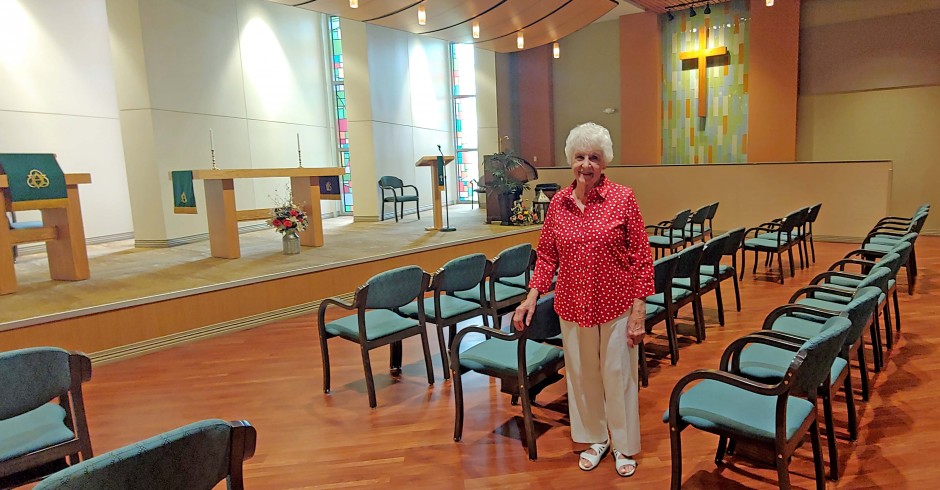 August 05, 2019Read story
August 05, 2019Read storyHelping others hear after personal hearing loss
After she become profoundly hard of hearing, Mary Miller-Cook wanted to help others in her community. -
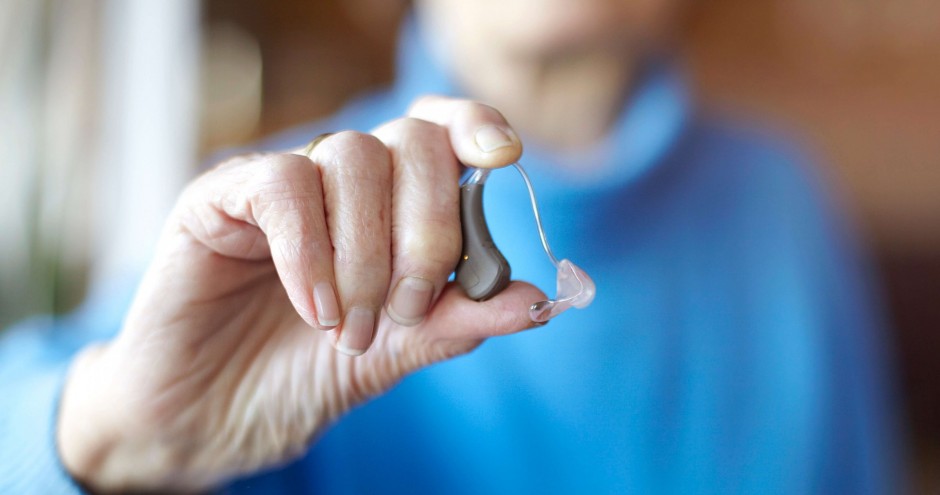 August 01, 2019Read story
August 01, 2019Read storyBefore hearing aids, ‘I had been missing out on so much’
Sherry received hearing aids 12 years after she was diagnosed with a 50% hearing loss. -
![Finding success by treating others like all-stars [video] Finding success by treating others like all-stars [video]](/-/media/project/good-sam/stories/items/0298_stf_sm-940.jpg?h=500&iar=0&w=940&hash=CB04D44B78146F5251F0699B44AF770A) August 01, 2019Watch story
August 01, 2019Watch storyFinding success by treating others like all-stars [video]
A new administrator knew what it would take to succeed in his role: Treating his employees like all-stars. -
![Good Samaritan story comes full circle for 108-year-old [video] Good Samaritan story comes full circle for 108-year-old [video]](/-/media/project/good-sam/stories/items/julia5-img_6076-resized.jpg?h=500&iar=0&w=743&hash=ABC05F0B337C2819E943F62249E5C931) July 15, 2019Watch story
July 15, 2019Watch storyGood Samaritan story comes full circle for 108-year-old [video]
Julia Kabance never let her age hold her back. Even at the Good Samaritan Society, she's mobile and ready for every day. -
![Employee Champion: ‘I know this is what God wants for me’ [video] Employee Champion: ‘I know this is what God wants for me’ [video]](/-/media/project/good-sam/stories/items/luverne-debvanmeeteren-960px.jpg?h=490&iar=0&w=940&hash=4153852B5F2725E6D8A82B1AC74B7C0E) July 09, 2019Watch story
July 09, 2019Watch storyEmployee Champion: ‘I know this is what God wants for me’ [video]
Deb Van Meeteren is our GSS Way Employee Champion award winner. -
![Meet Phil Nash: Good Samaritan Society’s 2019 Caregiver Champion [video] Meet Phil Nash: Good Samaritan Society’s 2019 Caregiver Champion [video]](/-/media/project/good-sam/stories/items/phil_nash-7621.jpg?h=500&iar=0&w=750&hash=1C8E5A9E0DAAD65C496F2B04F1B817F7) July 09, 2019Read story
July 09, 2019Read storyMeet Phil Nash: Good Samaritan Society’s 2019 Caregiver Champion [video]
Phil Nash has become an integral part of the evening shift at Good Samaritan Society – Waconia and Westview Acres. -
![Twin nurses care for patients at all stages of life [video] Twin nurses care for patients at all stages of life [video]](/-/media/project/good-sam/stories/items/twins-headshot-edited-960.jpg?h=500&iar=0&w=908&hash=70E045453BEEAB2A0FAE119A1A9290A1) July 07, 2019Read story
July 07, 2019Read storyTwin nurses care for patients at all stages of life [video]
Read about how one sister welcomes babies into the world while the other cares for those in later stages of life. -
![50 reasons why older is better [infographic] 50 reasons why older is better [infographic]](/-/media/project/good-sam/stories/items/15_0229_res2-940px.jpg?h=500&iar=0&w=940&hash=BDB0DF6EDAE5543DF366E3272A2F1085) July 06, 2019Read story
July 06, 2019Read story50 reasons why older is better [infographic]
Feeling old? Never fear. There are plenty of upsides.
-
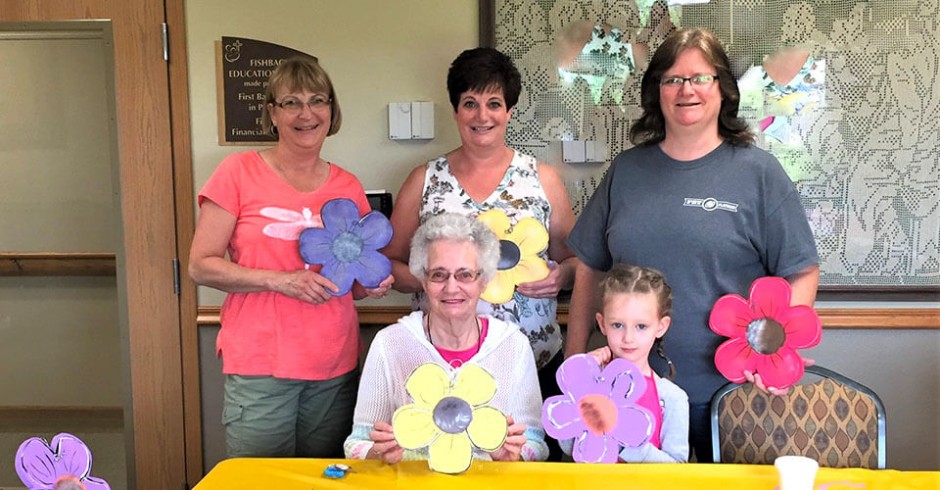 June 28, 2019Read story
June 28, 2019Read storyCraft class becomes ‘my little donation to give back’
Sue Hess’ love for crafts brings together her family and the residents at Good Samaritan Society – Ridge View Estates. -
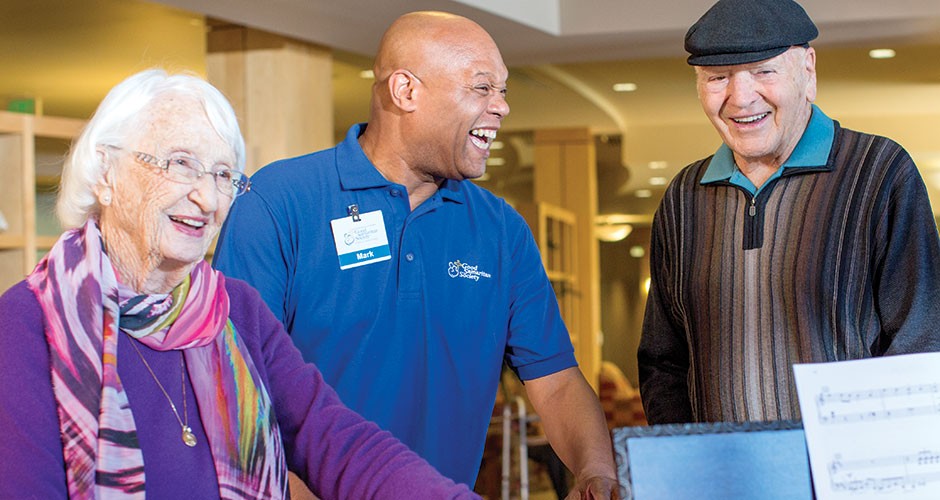 June 24, 2019Read story
June 24, 2019Read storyCelebrating 40 years of service
Our locations in Prescott and Prescott Valley, Arizona, have provided loving, quality care for 40 years. -
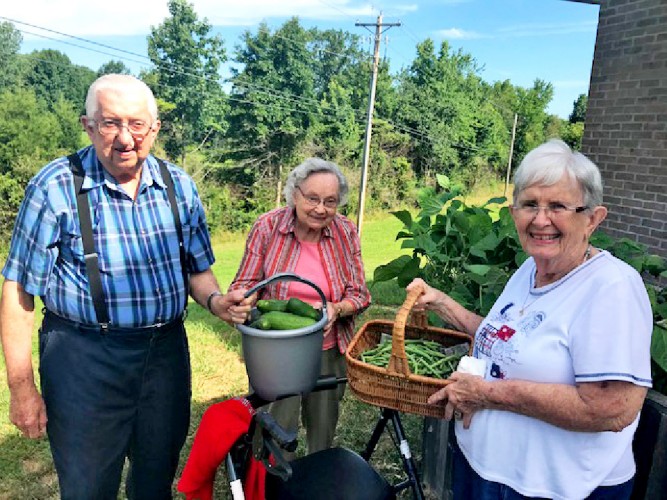 May 15, 2019Read story
May 15, 2019Read storyMaking friends in our later years
Senior living community staff and residents share their stories of friendship. -
 May 13, 2019Read story
May 13, 2019Read storyPartners in friendship and marriage for 72 years
Love, laughter and respect have been keys to Eugene and Jean Pageler's 72-year marriage. -
 May 13, 2019Read story
May 13, 2019Read storyHelping friendships flourish
Jim Meers likes creating opportunities for people to make meaningful connections. -
 April 07, 2019Read story
April 07, 2019Read storyType 2 diabetes isn’t slowing down Bob Cope
Bob Cope has type 2 diabetes, but he keeps it in check by staying physically, mentally and socially active. -
![Post-acute rehabilitation: In recovery, attitude is everything [video] Post-acute rehabilitation: In recovery, attitude is everything [video]](/-/media/project/good-sam/stories/items/diannetroy_rehablaugh-940px.jpg?h=500&iar=0&w=940&hash=02610888F08162ABDF962A4DA6920A8D) February 10, 2019Read story
February 10, 2019Read storyPost-acute rehabilitation: In recovery, attitude is everything [video]
Dianne Karlstad's goal of returning home is her driving force in physical therapy. -
![Tennies for Tots helps children in need [video, infographic] Tennies for Tots helps children in need [video, infographic]](/-/media/project/good-sam/stories/items/tenniesfortots-940x500-tiny.jpg?h=500&iar=0&w=940&hash=4F72292525393541535B4581D7A36AED) January 18, 2019Read story
January 18, 2019Read storyTennies for Tots helps children in need [video, infographic]
Paula Sedillo is on a mission to outfit every young child with shoes. -
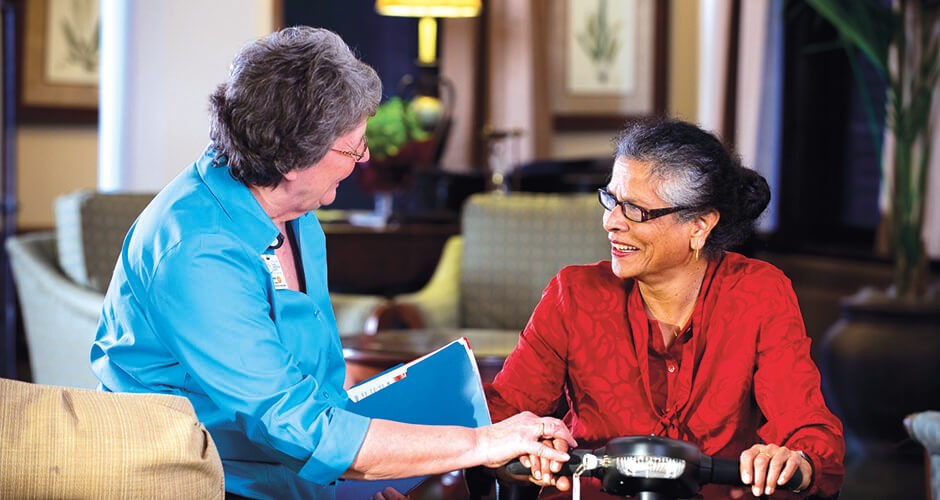 January 17, 2019Read story
January 17, 2019Read story‘It’s where my heart is’
Woman finds her calling serving hospice patients in Ottumwa, Iowa. -
![Rehabilitation therapy gets the cook back in her kitchen [video] Rehabilitation therapy gets the cook back in her kitchen [video]](/-/media/project/good-sam/stories/items/nancy_sarah940x500.jpg?h=500&iar=0&w=940&hash=2F32019BFFDC2930374B4FFF4CA8D769) January 09, 2019Read story
January 09, 2019Read storyRehabilitation therapy gets the cook back in her kitchen [video]
With some rehabilitation therapy from Good Samaritan Society, Nancy Eckert is back in her home. -
 December 27, 2018Read story
December 27, 2018Read storyCelebrating rock stars on our staff
You care. You grow. Join our dynamic team. -
 December 17, 2018Read story
December 17, 2018Read storyResidents knit love into every stitch
A knitting group turned into a support system for women at Good Samaritan Society – Hastings Village. -
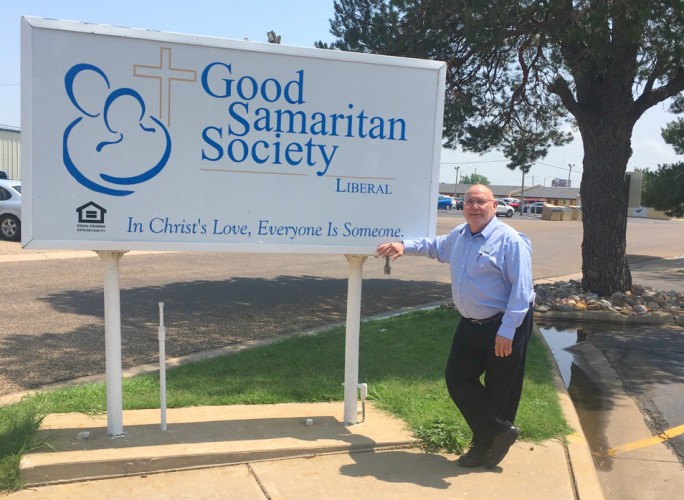 August 23, 2018Read story
August 23, 2018Read storyAt 64, he got his call to serve
It only took Richard Parra six decades to find his calling. At the time, he was 64 and had worked most of his life in retail. But he always felt a tug to do more. -
 August 17, 2018Read story
August 17, 2018Read storyActive retirement: Volunteering broadens horizons
For Dorothy Wagner, an active retirement means nurturing her mind, body and soul through volunteerism. -
 August 16, 2018Read story
August 16, 2018Read storyActive retirement: Living out God’s purpose
Audrey Davis continues to find purpose in her retirement. -
 Read story
Read story2019 Impact Report: God’s love shared because of you!
Donors contributed $4.5 million to the Good Samaritan Society through its Foundation in 2019. -
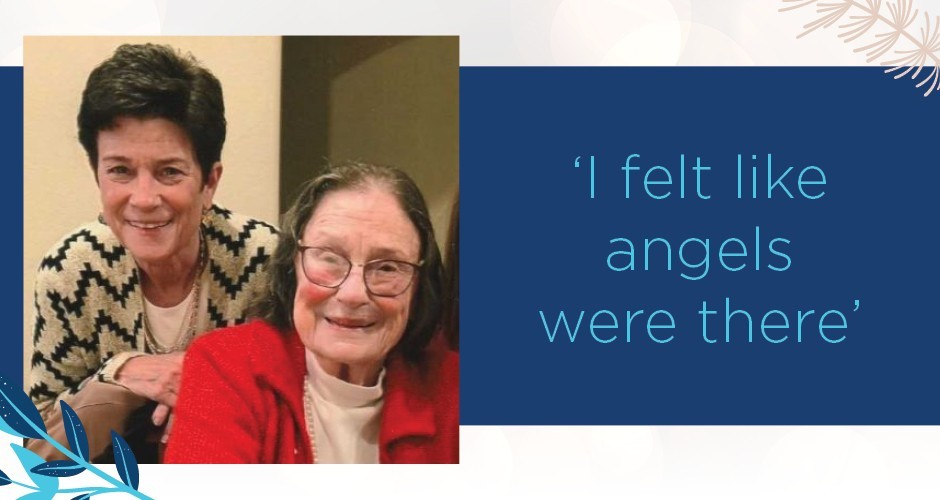 Read story
Read storyA daughter’s grateful heart
In the final weeks of her mother’s life, Cathy Dumler will never forget the love and compassion her family found at their local Good Samaritan in Fort Collins, Colo. Her gratitude inspired a beautiful gift. -
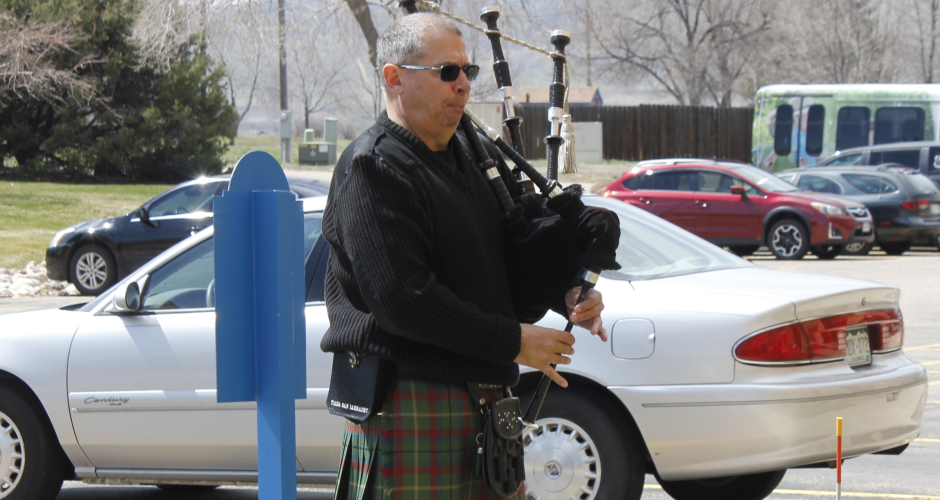 Read story
Read storyBagpiper lifts spirits, shows solidarity at Colorado location during COVID-19 pandemic
You didn’t have to have Celtic roots to appreciate a recent gift to the Good Samaritan location in Fort Collins, Colo. You just needed to listen. -
 Read story
Read storyBrainerd man honored for top fundraising effort
What does it take to be a top fundraiser for a bowling event in Brainerd, Minnesota? In Dan Pulak’s case, it takes a generous heart, a big smile and hard work. -
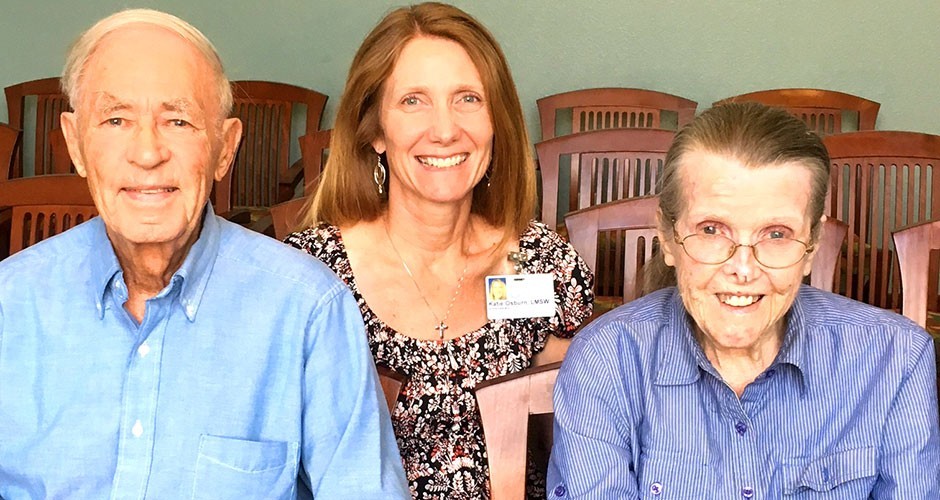 Read story
Read storyGiving where they live: Bakers support hospice care in Arizona
John and Marion Baker believe it's their duty to help others in need and in their community. "It’s important to give where you live," John says. -
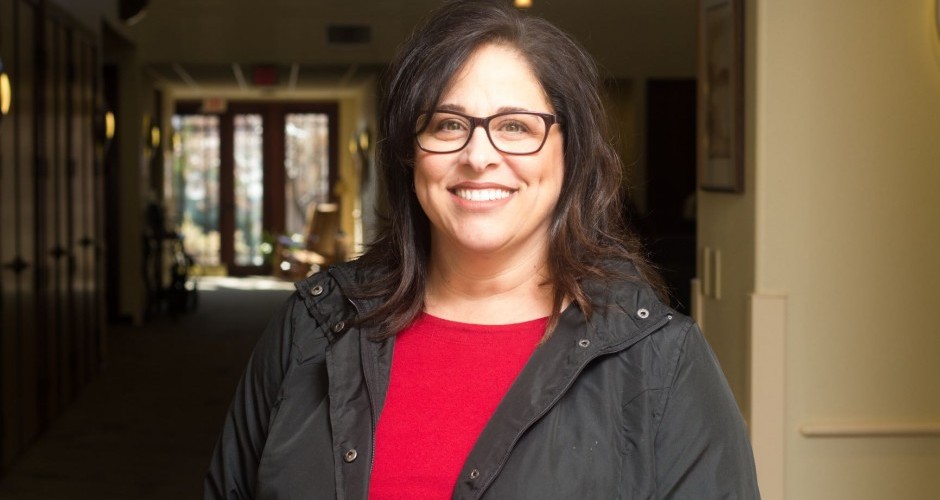 Read story
Read storyDelgado makes the case for hospice giving
“I would love for people to not be afraid of the word ‘hospice,’ says Cathy Delgado, nurse supervisor of the Good Samaritan – Marley House, an inpatient hospice house in Prescott, Ariz. “People hear the word and instantly think ‘death.’ It’s so much more.” -
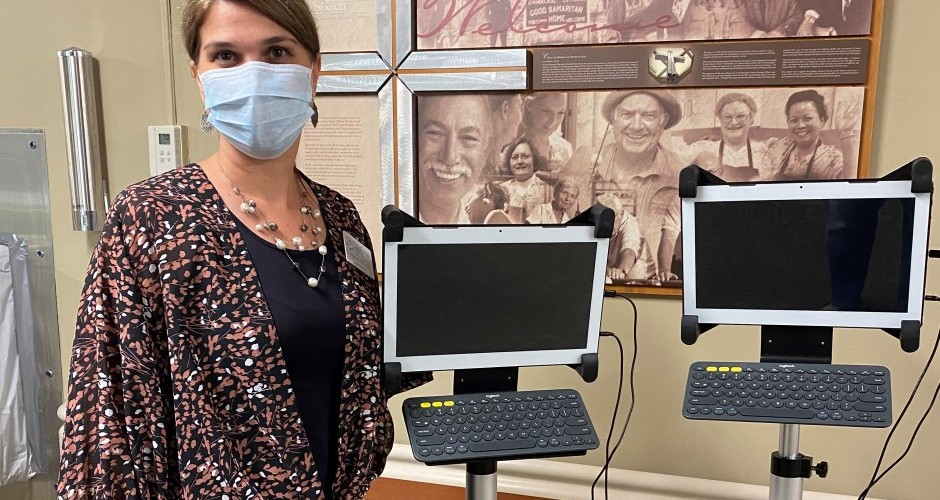 Read story
Read storyTechnology donation brings care closer
Good Samaritan - Sioux Falls Village received two RosieVisit carts for telemedicine visits. -
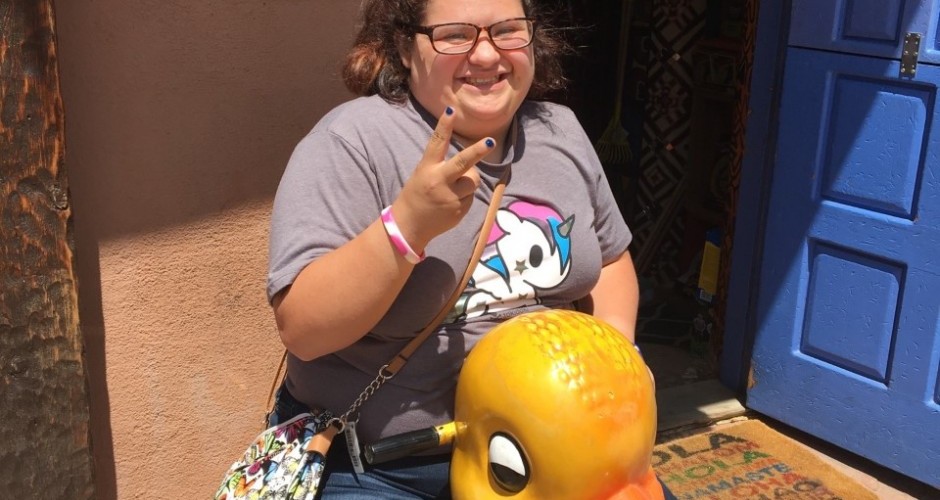 Read story
Read storyDonor hopes to inspire others during COVID-19 pandemic
"It's moments like this that remind us why we do what we do," says Loretta Dunivan, donor engagement director. -
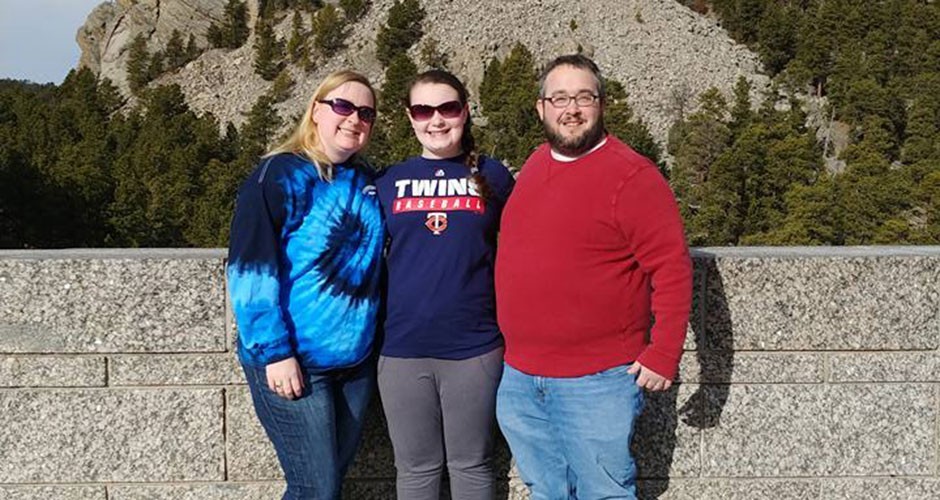 Read story
Read storyDonor profile: Brent Langston
Long-time Good Samaritan employee Brent Langston shares his reasons for giving to the Foundation. -
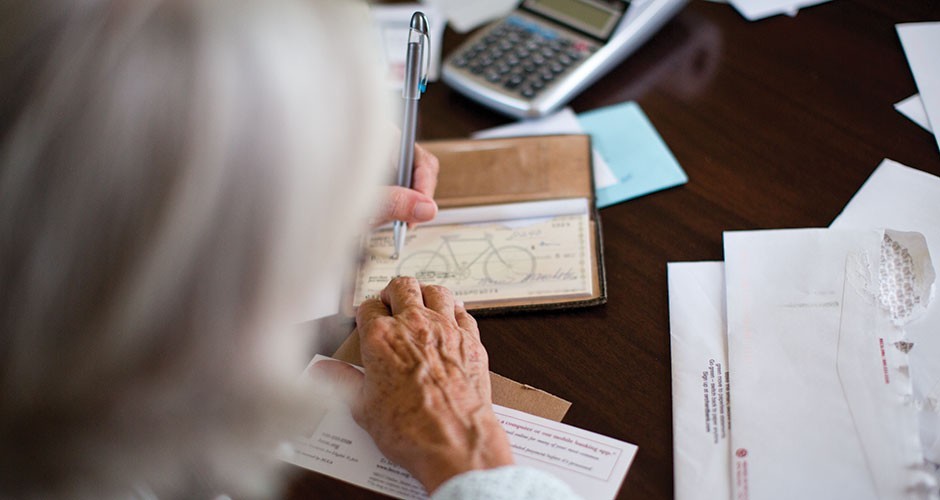 Read story
Read storyDonor profile: David and Susanne Copenhaver
One Iowa couple proves the value of giving — no matter the size of the gift. -
 Read story
Read storyDonor Profile: Linda Scroggins
Linda Scroggins recently retired from AT& T where she worked for 40 years. She lives in Allen, Texas. -
 Read story
Read storyDonor profile: Sonia Bury
Long-time Good Samaritan employee Sonia Bury gives to the Foundation because of the power her gifts have to make a difference in the lives of the people served by the Society. -
 Read story
Read storyDonors serve up funding for memory care unit kitchen
It is very meaningful to know that we are so supported and loved by the community,” said Stephanie Lasnoski, director of nursing. “It literally brings tears to the eyes of our employees when they discover that there has been a new donation, treat, gift card or flowers given to the facility. It makes them proud to work for a place that is so loved and supported." -
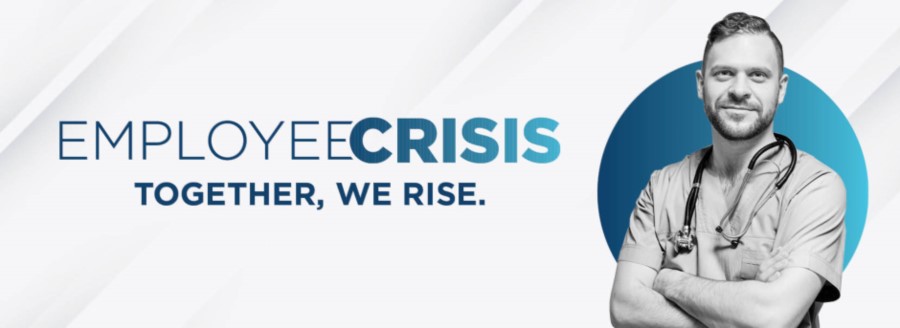 Read story
Read storyEmployees give more than $1M to provide COVID-19 relief
Over three weeks, Sanford Health and Good Samaritan employees donated more than $1 million for colleagues facing financial hardship related to COVID-19. -
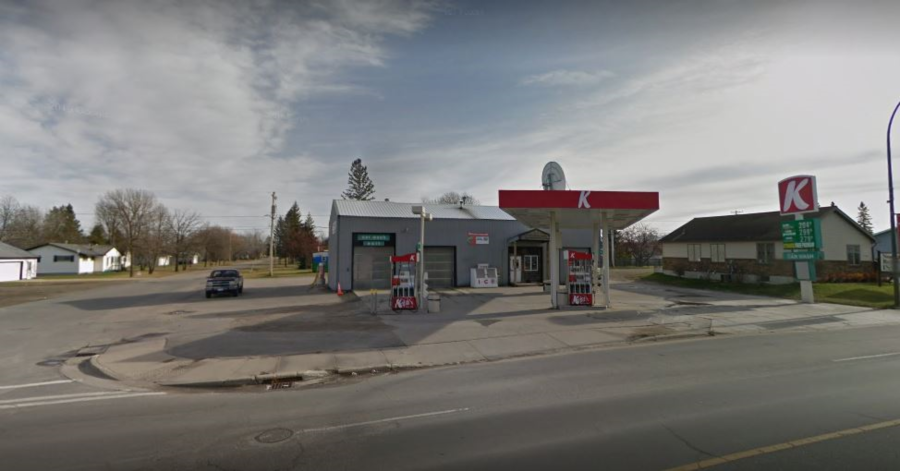 Read story
Read storyFuel donation keeps caregivers moving during a crisis
Good Samaritan caregivers in International Falls, Minn. received a gift in April from a local gas station to keep them moving through the COVID-19 pandemic. -
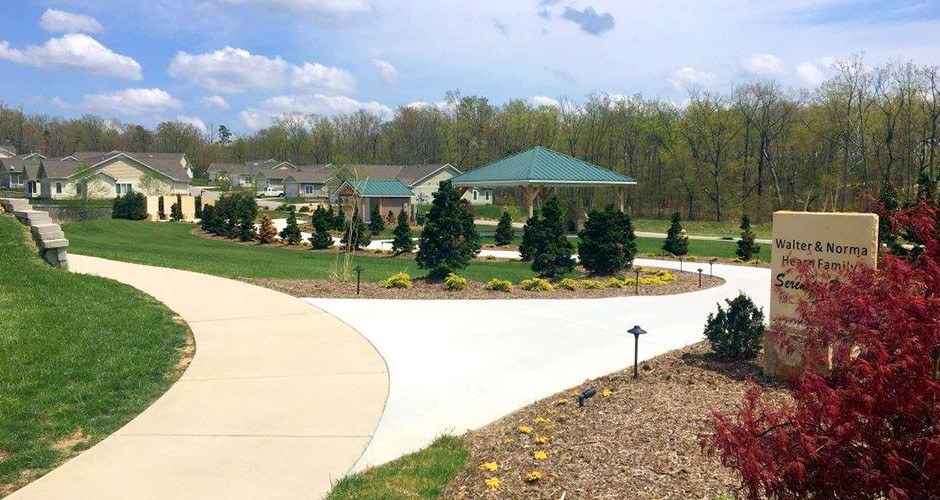 Read story
Read storyGenerosity turns eye sore into place of serenity
Good Samaritan – Fairfield Glade dedicates a new park thanks to the generous people of Crossville, Tennessee. -
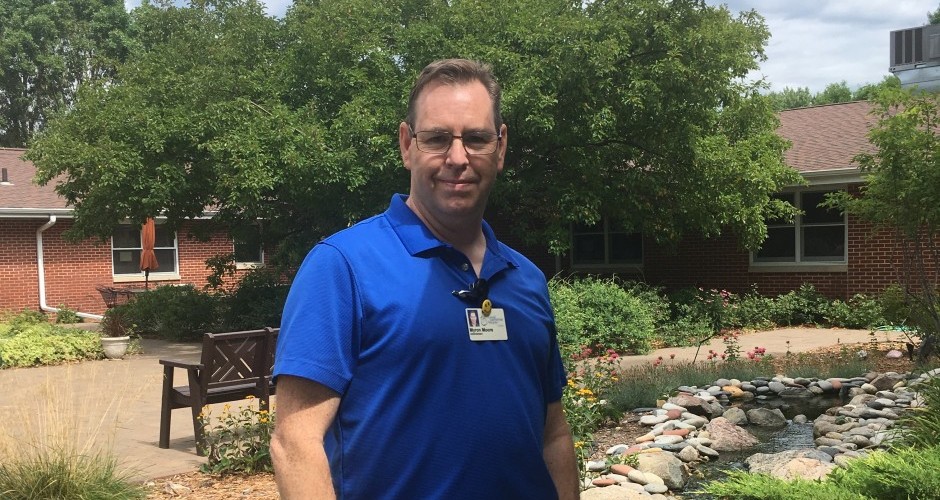 Read story
Read storyYour gifts bring hope to rural Good Samaritan Society location
“There is no way that I can express how grateful and thankful we are for the outpouring of support,” said Myron Moore, administrator of Good Samaritan - Canton in Canton, SD. -
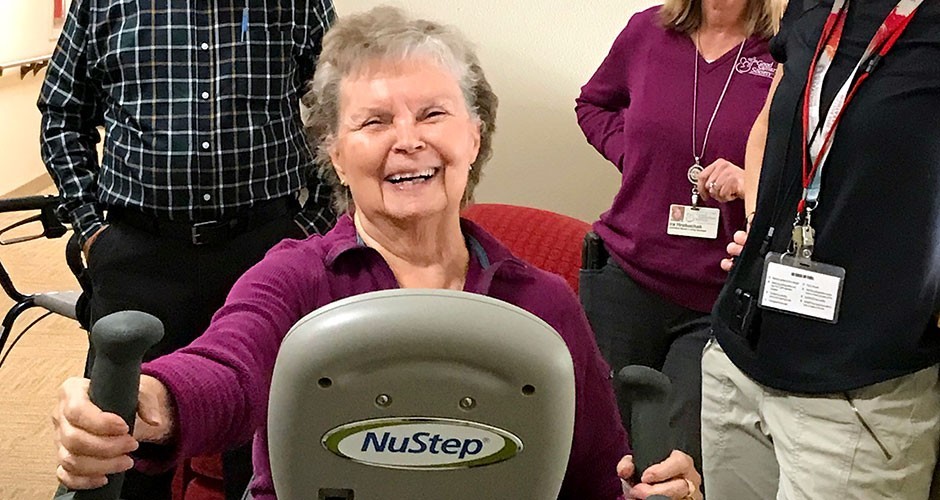 Read story
Read storyGifts power well-being for Arizona location
Good Samaritan – Prescott Village in Arizona recently hosted an unusual prayer service. Donors and residents gathered to pray over a piece of exercise equipment. -
 Read story
Read storyGrateful donors give nearly $1 million to Prescott locations
Two gifts from former residents of the Evangelical Good Samaritan locations in Prescott, Arizona will make a difference in that community forever. Together, these donors added $950,000 to the Society’s endowed funds. -
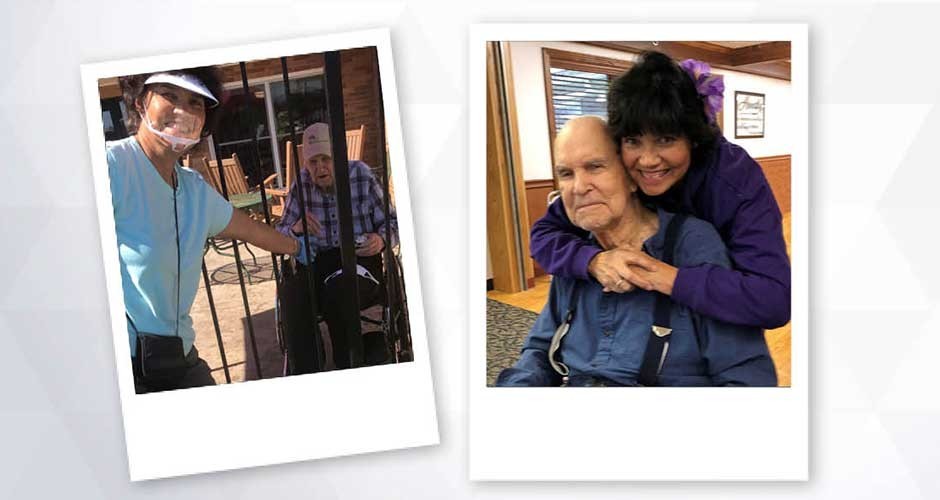 Read story
Read storyGratitude drives daughter’s gift
“I have felt these feelings of awareness and GRATITUDE for a long time,” Ford writes. “I felt the NEED to express GRATITUDE to each and every single one of you.” Paulette Ford -
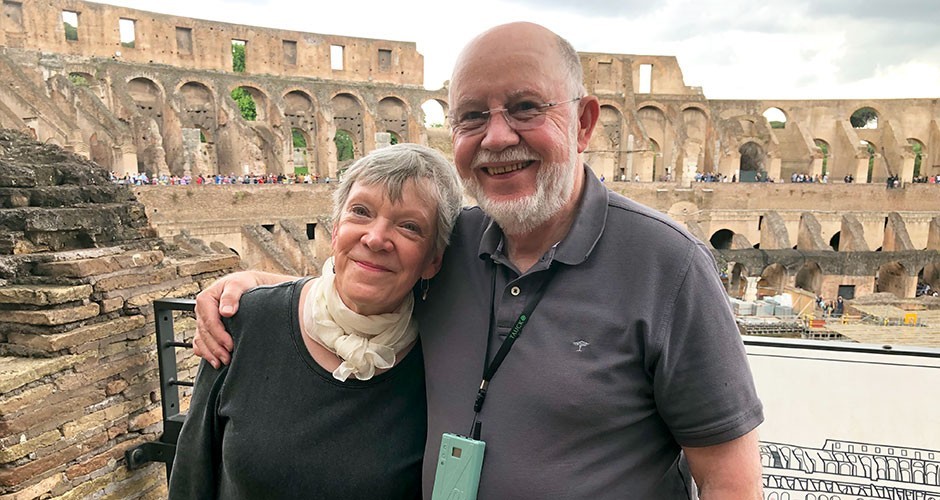 Read story
Read storyGratitude runs in the family
Lennis Carpentier and his wife, Linda Arlien, know a thing or two about gratitude. Because others have helped them along the way, they are among the generous donors who make a difference at our location in Forest City, Iowa. -
 Watch story
Watch story'Happy' the goat is a birthday wish fulfilled
"Happy" the goat is the birthday present Janie Staloch was hoping for. Happy is now one of four goats in Good Samaritan – Albert Lea's herd. -
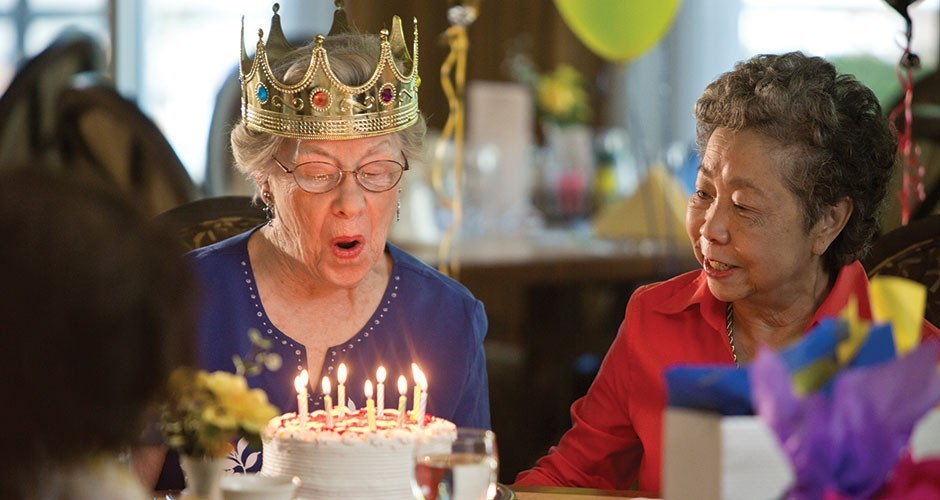 Read story
Read storyHow do you celebrate your birthday?
Social media provides a new way for you to mark the occasion and help your favorite charity at the same time. -
 Read story
Read story‘If this makes them happy, I am happy.’
Frank Percy's daily walk led to an amazing gift for one Good Samaritan location. You can join him in supporting senior well-being. -
 Read story
Read story‘It’s all about others.’ Colorado businessman makes a difference for seniors
Jim Payson has spent years making good things happen for residents and staff in northern Colorado. -
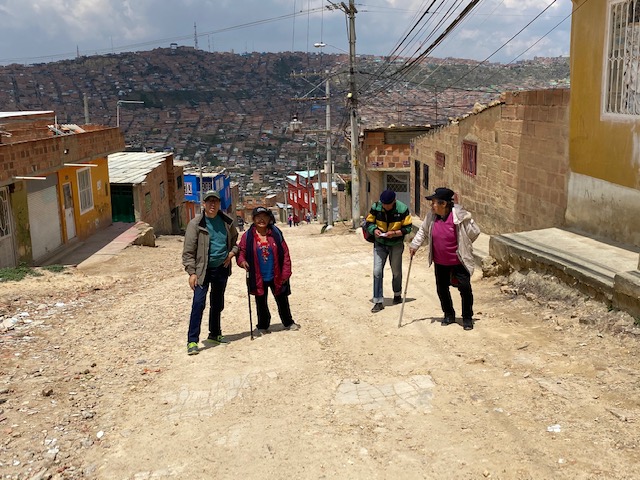 Read story
Read storyMaking a difference half a world away
“We become part of the elders’ lives,” says Rev. Greg Wilcox, vice president of mission integration and senior pastor at the Society’s National Campus. “We listen to their stories." -
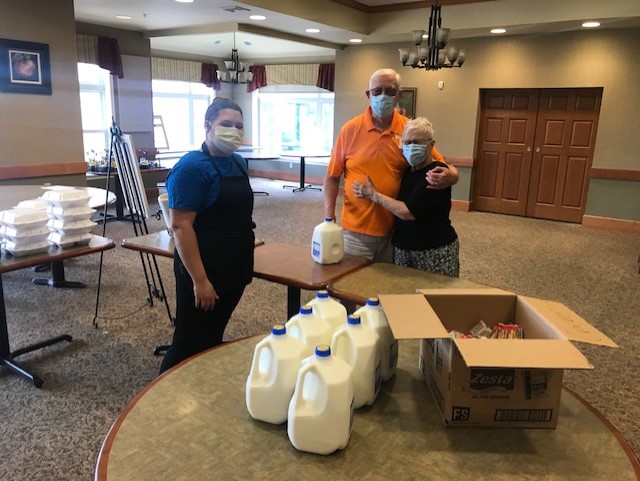 Read story
Read storyMilk donation strengthens body and spirit
The Good Samaritan – Fairfield Glade is one of several non-profit organizations in Crossville, Tenn. that began receiving weekly shipments of milk from Borden Dairy through a grant from the United States Department of Agriculture due to COVID - 19. -
 Read story
Read storyMinnesota Volunteer Makes a Difference During COVID-19 with Masks
Minnesota volunteer Georgia Helvick is sewing her way through the COVID-19 pandemic and making a difference for employees at a Good Samaritan nursing home in the process. -
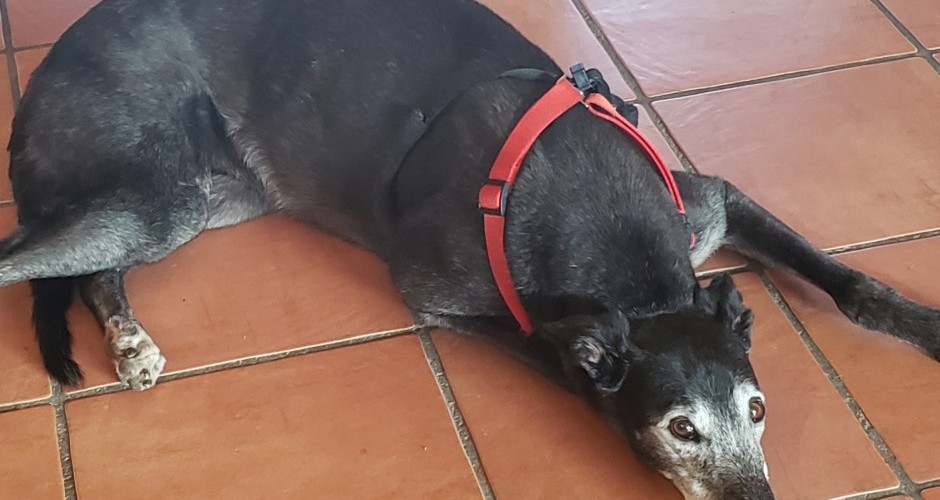 Read story
Read storyPet therapy: a prescription for well-being at the Marley House
“Would you like to go visit?” That’s all it takes to get a reaction out of Maggie, Melinda McGrath’s 12-year-old greyhound. Her eyes pop open, she tilts her head, and she’s off. -
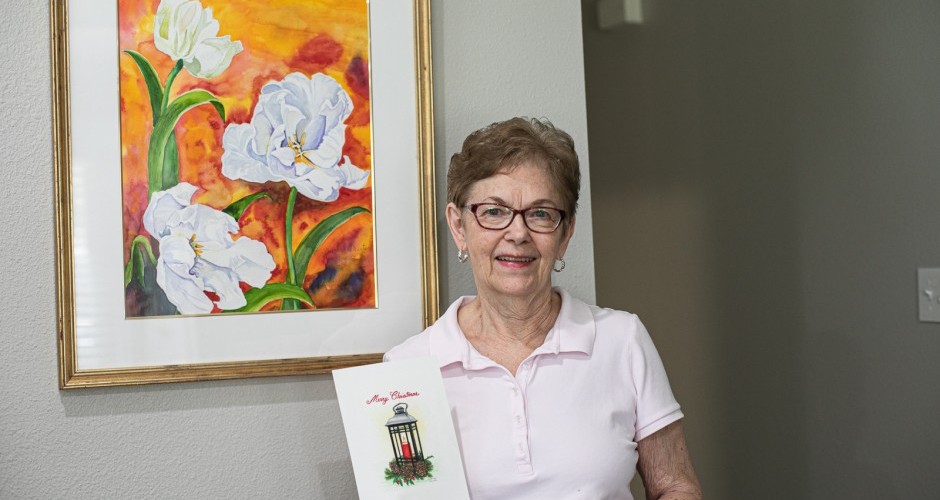 Read story
Read storyProgram teaches new skills, builds community
“Our goal is to raise more than $20,000 for programming,” said Wells. “Programs like this build community, which is an important part of well-being. Plus, it’s good for all of us to learn new skills as we age.” -
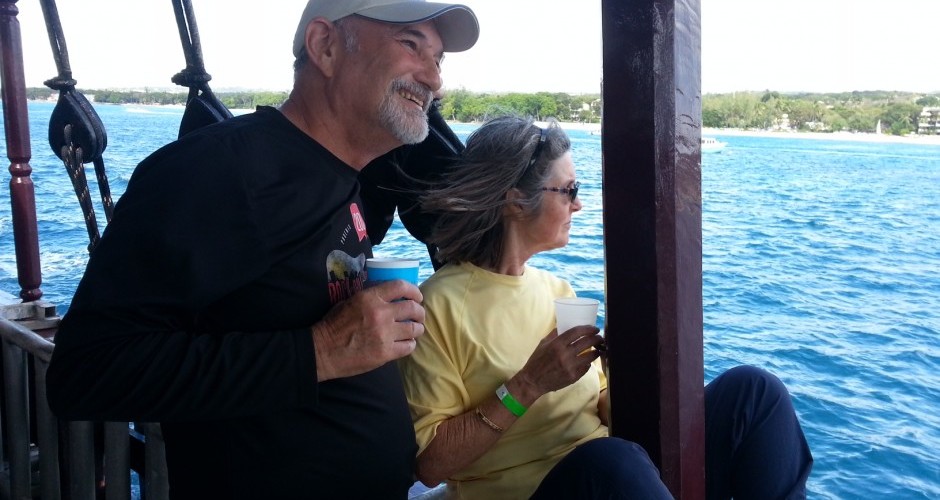 Read story
Read storyRetired pediatrician brings comfort to patients at end-of-life
“I’ve come full circle,” Dr. Marty Boxer says. “As a pediatrician, I did not have much experience with the elderly or the dying. Now, I do a little bit of everything.” -
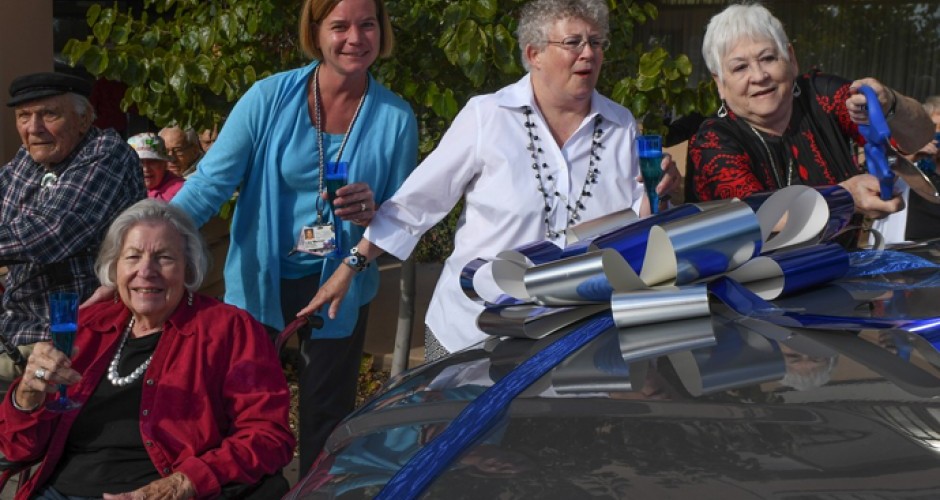 Read story
Read storyRetired teacher’s IRA rollover gift gets residents rolling again
Teaching music for 30 years created a good life for Anita Spain. Now, she's learning how to use her savings to make a difference in the world around her. -
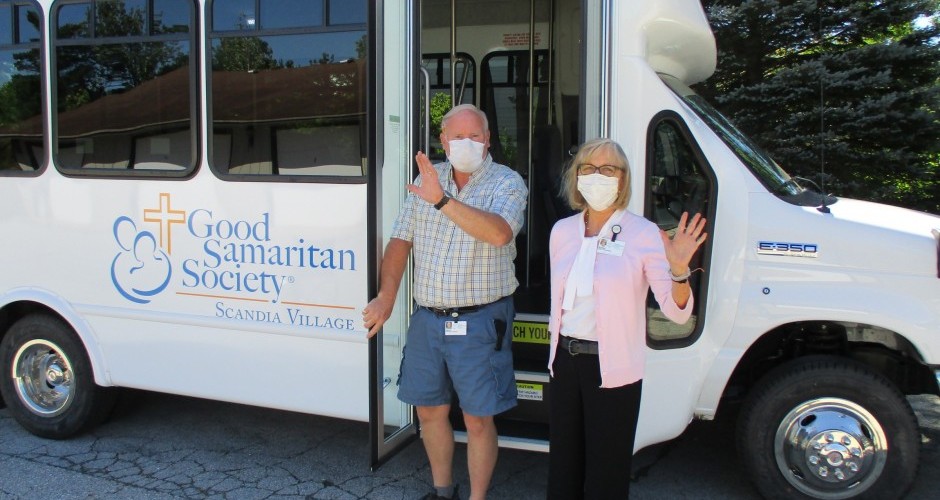 Read story
Read story‘Everyone wants to be the first to ride!’
Thanks to donors, a long-awaited bus arrives to the excitement of residents in Good Samaritan - Scandia Village in Sister Bay, Wisc. -
 Read story
Read storyFurry friends deliver hugs to residents
Friends and donors provided teddy bears and lots of smiles to residents of Good Samaritan - Fairfield Glade in Crossville, Tenn. for National Teddy Bear Day. -
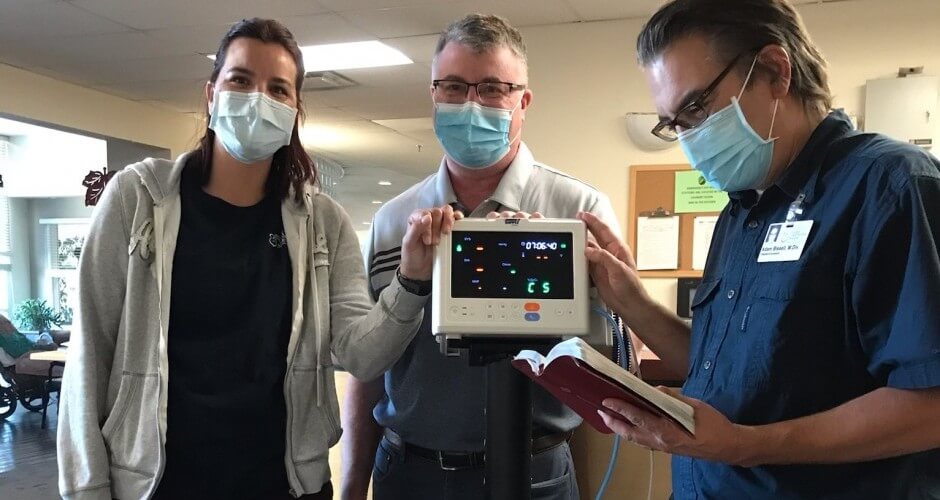 Read story
Read storyThe vital role of your gifts in caring for seniors
One phone call with a thankful daughter leads to a potentially life saving gift for a Society location in Arizona. -
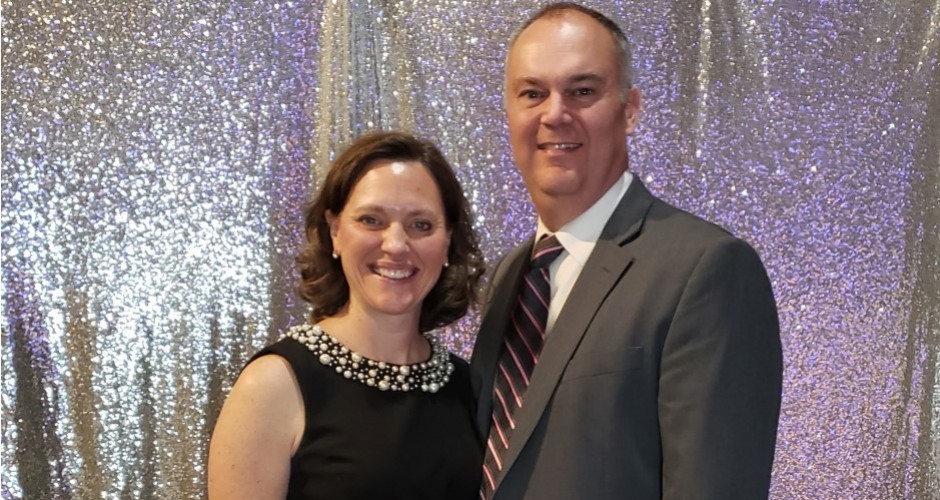 Read story
Read storyUsing loss to bring hope to others
“We just felt this was a good way to support others that are going through memory loss," said Rochelle Odenbrett. -
 Read story
Read storyVolunteers touch 1,000 hearts
The idea is to think big, act big and move quickly. That’s how the Good Samaritan shares God’s love - in times of crisis and every day. -
 Read story
Read storyWellness center testimonials
The Kissimmee Village wellness center offers about a dozen different weekly physical wellness classes. They include stretching, balance, tai chi and dance. -
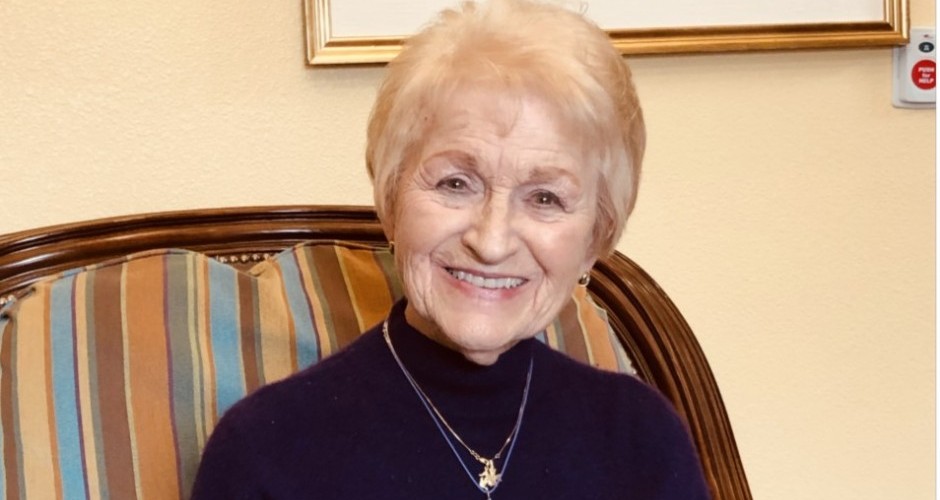 Read story
Read story‘We must pay it forward’
Peg Rhodes, a retired schoolteacher in Prescott, Ariz., talks about how the help she received from others inspires her support of the Good Samaritan - Marley House. -
 Read story
Read storyA reason to ‘smile’ while you holiday shop this year
The holidays are going to look different this year. If you are shopping online, there is something you need to know.
Find a Good Samaritan Society location
Connect with Us
